Gordon Gekko
description: the main antagonist of the 1987 film Wall Street and the antihero of its 2010 sequel Wall Street: Money Never Sleeps
151 results
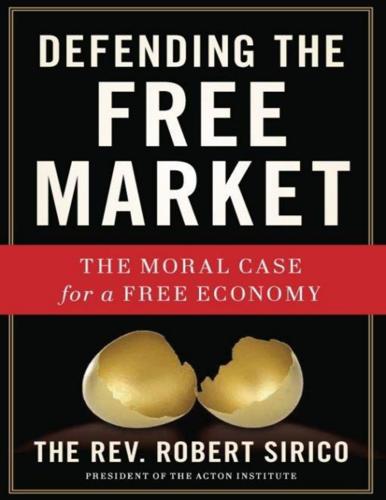
Defending the Free Market: The Moral Case for a Free Economy
by
Robert A. Sirico
Published 20 May 2012
He said that any time an industry fails in protecting its customers it injures trust in the whole industry—a negative outcome for everyone involved. This snapshot of Francois Michelin does not, of course, disprove the existence of unprincipled Gordon Gekkos in the world of high finance and enterprise. But there is nothing in business or the market economy that mandates a selfish dog-eat-dog ethic. The Apostle of Selfishness We began this chapter with Gordon Gekko announcing that greed is good. As he goes on to say to the shareholders of the fictional Teldar Paper Corporation, “Greed clarifies, cuts through, and captures the essence of the evolutionary spirit.
…
Start a Business Jobs: The Best Anti-Poverty Program The Fallacy of the Fixed Pie Foreign Aid That Doesn’t The Moral Appeal of Good Work A Theology of Enterprise Suggestions for Further Reading CHAPTER 4 - Why the “Creative Destruction” of Capitalism Is More Creative than Destructive Creative Destruction, Creative Flourishing Globalization, Christianity, and Culture Globalization and Coercive Destruction Globalization and Culture Suggestions for Further Reading CHAPTER 5 - Why Greed Is Not Good–and Why You Can Get More of It with Socialism ... What Is Greed? The Role of Profits Excess Profits? Moral Profits Beyond Gordon Gekko The Apostle of Selfishness The Socialist Mirage The Personable Person and the Market Suggestions for Further Reading CHAPTER 6 - The Idol of Equality The Value of the 1 Percent Mind the Floor, Not the Ceiling Do We Know Who We Are? Equal Respect, Not Equal Conditions Social Justice and the Common Good Suggestions for Further Reading CHAPTER 7 - Why Smart Charity Works–and Welfare Doesn’t Desiccated Compassion Government Isn’t the Only Institution Desiccated Christianity The Mayor of My Neighborhood The Fatal Welfare Conceit The Samaritan Suggestions for Further Reading CHAPTER 8 - The Health of Nations: Why State-Sponsored Health Care Is Not Compassionate Fighting a Fire with Gasoline Price, Profit, and Cost Let Them Compete Big Brother, Big Burden The Secret to Slashing Costs The Right to Health Care Understood Aright The Religious History of Health Care Suggestions for Further Reading CHAPTER 9 - Caring for the Environment Doesn’t Have to Mean Big Government Christianity Caricatured Environmentalism as an Extension of Marxism Humanophobia Beware the Zero-Sum Fallacy and Unintended Consequences Suggestions for Further Reading CHAPTER 10 - A Theology for Economic Man Vocation–Calling The Dead Suggestions for Further Reading Afterword Acknowledgments Notes Index Copyright Page PRAISE FOR DEFENDING THE FREE MARKET “I’ve been eagerly anticipating such a book from Father Sirico for a long time.
…
All he can do is become a thief or a cream-skimming government insider. Under capitalism, he has another option: he can excel in a socially useful business. In this way, capitalism provides the greedy person a socially beneficent alternative to exploitation. Remember villainous business executive Gordon Gekko in Oliver Stone’s 1987 film Wall Street? “Greed is good,” he claimed. Unfortunately, many real-life defenders of capitalism argue along the same lines. Greed, they claim, is the stimulant that drives the economy. And critics of the free market readily agree—they hate capitalism because they believe it fosters greed.
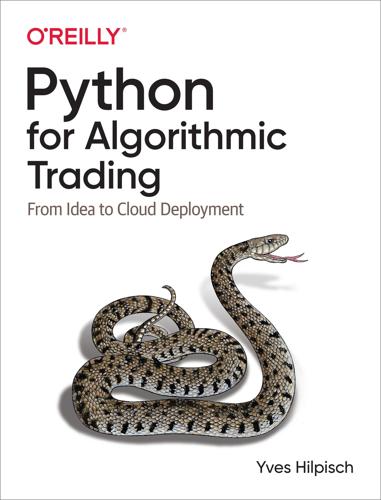
Python for Algorithmic Trading: From Idea to Cloud Deployment
by
Yves Hilpisch
Published 8 Dec 2020
String replacements are often used to parametrize text output: In [25]: repl = 'My name is %s, I am %d years old and %4.2f m tall.' In [26]: print(repl % ('Gordon Gekko', 43, 1.78)) My name is Gordon Gekko, I am 43 years old and 1.78 m tall. In [27]: repl = 'My name is {:s}, I am {:d} years old and {:4.2f} m tall.' In [28]: print(repl.format('Gordon Gekko', 43, 1.78)) My name is Gordon Gekko, I am 43 years old and 1.78 m tall. In [29]: name, age, height = 'Gordon Gekko', 43, 1.78 In [30]: print(f'My name is {name:s}, I am {age:d} years old and \ {height:4.2f}m tall.') My name is Gordon Gekko, I am 43 years old and 1.78m tall. Defines a string template the “old” way. Prints the template with the values replaced the “old” way.
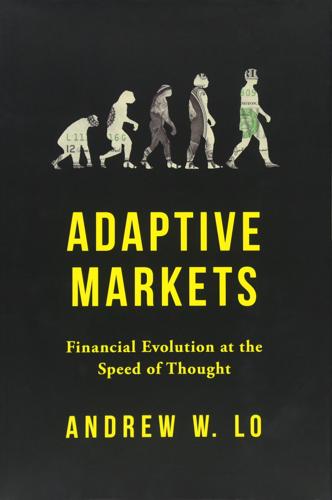
Adaptive Markets: Financial Evolution at the Speed of Thought
by
Andrew W. Lo
Published 3 Apr 2017
FINANCE AND THE GORDON GEKKO EFFECT Part of the challenge in thinking about fairness in finance is culture. We don’t usually ask whether a market transaction is fair or not—as long as two mutually consenting adults agree to an exchange, that seems fair enough. But the culture of Homo economicus can sometimes be taken to the extreme, as reflected by one of the most famous lines in movie history: “Greed is good.” In fact, this is a slight adaptation of Michael Douglas’s actual line in the 1987 movie Wall Street, in which Douglas plays the sleazy yet charismatic financier Gordon Gekko. “The point is, ladies and gentleman, that greed, for lack of a better word, is good.”
…
314 The Adaptive Markets Hypothesis Explains 318 (Ab)Normal Accidents 320 Liquidity Withdrawal Symptoms 324 Chapter 10. Finance Behaving Badly 330 Finance Rules 330 Out-Ponzi-ing Ponzi 332 The Ultimatum Game 335 A Neuroscience of Morality? 338 Is Finance Fair? 340 Finance and the Gordon Gekko Effect 345 Regulatory Culture 349 Environment Strikes Again 352 Moore’s Law versus Murphy’s Law 355 The Tyranny of Complexity 361 Chapter 11. Fixing Finance 365 An Ounce of Prevention 365 Ecosystem Management 366 Adaptive Regulation 368 Law Is Code 371 Mapping Financial Networks 375 The CSI of Crises 378 Privacy with Transparency 384 Anti-Gekko Therapies 387 Chapter 12.
…
From the perspective of the Adaptive Markets Hypothesis, this means that culture is also subject to evolution, to the same processes of variation, selection, and replication as a biological species or a mental narrative. In fact, we can think of culture as a very large bundle of interrelated narratives, transmitted through the generations, and changing with the human environment. The character of Gordon Gekko, despite being the villain of Oliver Stone’s morality play, possesses traits that our culture perceives as important. Gekko is wealthy, highly skilled, physically attractive, and powerful. Someone who aspires to these traits may try to mimic Gekko’s behaviors, as apparently many did in real life, as the Bud Fox character, the nominal hero of Wall Street, does in the movie.
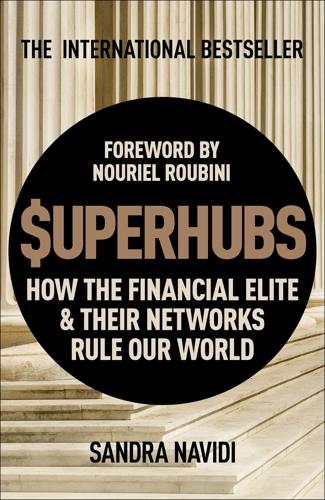
SUPERHUBS: How the Financial Elite and Their Networks Rule Our World
by
Sandra Navidi
Published 24 Jan 2017
Scaramucci is a talented schmoozer with a knack for self-promotion, yet his consistent energy makes it all seem authentic. He cleverly product-placed a large SkyBridge banner in Oliver Stone’s Wall Street II, and even landed a cameo. He further enhanced his profile with his well-received book, Goodbye Gordon Gekko, which was a timely self-critical reflection on Wall Street’s culture of greed. His rise has been extraordinary, and Davos has played no small part in it. While many of Scaramucci’s most valuable contacts stem from the WEF, he has since spread his wings far beyond the WEF and built his own wildly successful forum, the SkyBridge Alternatives Conference (SALT).
…
Milken was in his element, holding court and chatting with the guests. I had a fabulous time and could not help but think that this was exactly how I had imagined this parallel universe to be when reading about it so many years earlier, half the world away. The tale of junk bond king Mike Milken is one of triumph, tragedy, redemption, and comeback. In the Gordon Gekko-ish 1980s, this ingenious financier revolutionized the financial system by opening up capital markets to companies which had previously not been considered creditworthy. He created a market and channeled billions of dollars into companies by issuing high-yield bonds, also dubbed junk bonds. So great was the boom he created that at some point it exceeded the financing of investment-grade companies.
…
According to estimates, about 8 percent of global wealth, or $7.5 trillion, is squirreled away in tax havens, $6 trillion of which has not been taxed.16 This hidden wealth distorts the picture of inequality, which if factored in would likely be even greater.17 Approaching the Tipping Point The situation is so egregious that even members of the establishment have begun going rogue. “Class traitors” such as George Soros, Nick Hanauer, and Paul Tudor Jones have warned of the potentially dramatic consequences of inequality and suggested measures to reduce it. Even Asher Edelman, the real-life Gordon Gekko on whom the movie Wall Street’s ruthlessly greedy protagonist was partly modeled, has turned dissident, arguing for the self-proclaimed democratic socialist Bernie Sanders as the best option for the U.S. economy.18 The economic discontent has led to unprecedented political polarization, pitting the “have-nots” against the “haves,” the proletariat against the intellectual elite, and the young against the old.
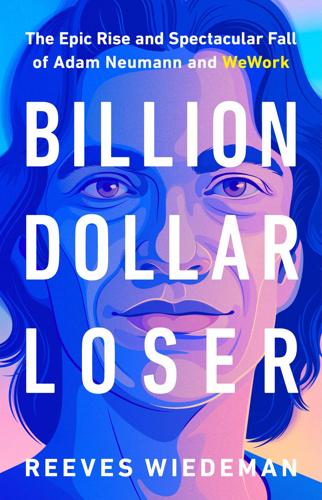
Billion Dollar Loser: The Epic Rise and Spectacular Fall of Adam Neumann and WeWork
by
Reeves Wiedeman
Published 19 Oct 2020
Across the street was an even more personally satisfying view: the building where Adam once begged Stella Templo to help him stay in the country. Adam was also tickled to find out that WeWork’s new space had been used as the set for the movie Wall Street. WeWork put up a poster of Michael Douglas in French cuffs and suspenders to mark the location of Gordon Gekko’s fictional office. The space was a more appropriate setting than WeWork’s previous offices for a visit from Jimmy Lee, a legendary banker at JPMorgan: Gekko’s character was said to have been based partly on Lee, who had worked with companies ranging from General Motors to Facebook. JPMorgan had been keeping its eye on WeWork.
…
Adam flew with friends and family to Turks and Caicos for a three-day thirty-fifth birthday party. Miguel had moved into a nice apartment in Manhattan with a great view, fulfilling his childhood dream of being able to see the New York City skyline from his home, but he felt bashful sharing the valuation with his friends and family. At a party in May to celebrate an expansion of WeWork’s Gordon Gekko headquarters, several of New York’s biggest landlords, including Steven Roth, the septuagenarian founder of Vornado, stood under a net of white and black balloons and toasted Neumann, the young man they had once looked at with skepticism. “Adam always says, ‘No schmucks and no assholes,’” Roth said.
…
When they reviewed security footage from the night before, preparing to identify and chastise whichever WeWork member had disrespected the community, they were surprised to see that it wasn’t a member at all. Adam and another WeWork executive had spent the night drinking beers and playing on a Time Crisis video game console. Their employees were left to pick up the mess. * * * A FEW WEEKS LATER, WeWork employees arrived at the company’s Gordon Gekko headquarters one morning to find that a large glass wall in Adam’s office was cracked. The night before, an employee had apparently broken it with a bottle of Don Julio 1942, Adam’s favorite tequila. Adam and a group of employees had been celebrating yet another funding round: $355 million, at a valuation of $5 billion.
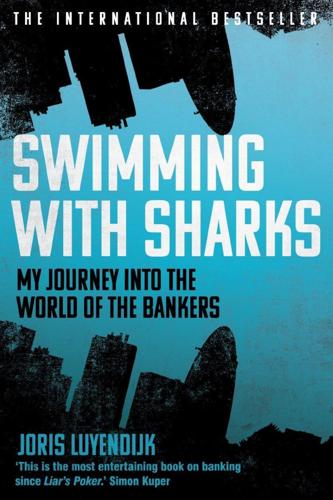
Swimming With Sharks: My Journey into the World of the Bankers
by
Joris Luyendijk
Published 14 Sep 2015
The general ignorance about the current threat posed by the financial system came across very clearly every time anyone asked me at parties, over dinner or at the school gates what had surprised me most about ‘those bankers’. The question often came with a cynical laugh as if nothing genuinely serious was at stake; they seemed to anticipate my answer would be ‘greed’, ‘cocaine’ or ‘arrogance’. Many referred to the Gordon Gekko character from the iconic 1987 film Wall Street and his famous quote: ‘Greed, for want of a better word, is good.’ I would resist pointing out that Gordon Gekko was not a banker but a ‘corporate raider’ or ‘activist shareholder’ taking over companies against their will, and instead I’d tell them how some of the things I’d learnt about bankers had ‘lightning-bolted me off my horse’, as the Flemish expression goes.
…
Many people in banking try to project an image of perfection, he had found. ‘Banks play to that, trying to make you look perfect and feel invulnerable. It’s very easy to get hooked into that life, to become addicted to work and the money. I am sure it would have happened to me, had I done this for too long.’ When doing research for the Gordon Gekko character in the famous film Wall Street, scriptwriter Stanley Weiser spoke to a great number of top financial workers. In an interview on the DVD Weiser echoes the idea of finance as an existential trap for those with addictive personalities: ‘The Gekkos of the world are people who have a complete inability to process the reality of … of death.
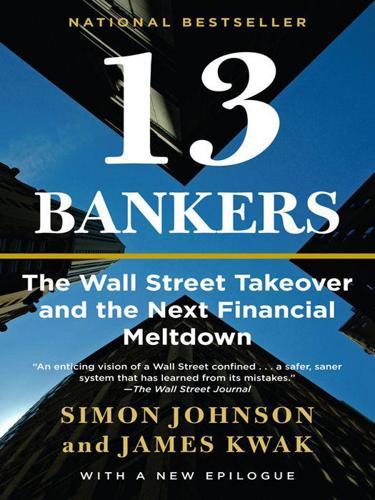
13 Bankers: The Wall Street Takeover and the Next Financial Meltdown
by
Simon Johnson
and
James Kwak
Published 29 Mar 2010
As Bianco put it, “What sets Salomon apart is the sheer scale on which it oper-ates in the markets, reflecting an appetite for risk unrivaled among financial middlemen.” Four years later, Liar’s Poker, Michael Lewis’s memoir of his years at Salomon, would cement its status as the paradigmatic bank of the 1980s, the same decade that produced the original Oliver Stone Wall Street movie, with Gordon Gekko’s famous “Greed is good” speech. Looking back, however, Salomon seems so … small. When the Business Week story was written, it had $68 billion in assets and $2.8 billion in shareholders’ equity. It expected to earn $1.1 billion in operating profits for all of 1985. The next year, Gutfreund earned $3.2 million.3 At the time, those numbers seemed extravagant.
…
In 1987, Tom Wolfe’s novel The Bonfire of the Vanities introduced the term “Master of the Universe” to American culture, in the form of multimillionaire investment banker Sherman McCoy, who lived in “the sort of apartment the mere thought of which ignites flames of greed and covetousness under people all over New York and, for that matter, all over the world.”72 Although the term was used sarcastically, and McCoy turns out badly in both the human and financial senses, the image of the swashbuckling, super-rich banker engaged in transactions too complex to be understood by ordinary mortals was born. Also in 1987, Oliver Stone’s movie Wall Street was released, with its memorable antihero, corporate raider Gordon Gekko (played by Michael Douglas). Although the movie’s story shows the corruption and ultimate downfall of Gekko, it is remembered for his “Greed is good” speech, which justified the pursuit of money above all else. As screenwriter Stanley Weiser wrote recently, many people would later tell him the movie made them want to work on Wall Street: “A typical example would be a business executive or a younger studio development person spouting something that goes like this: ‘The movie changed my life.
…
As screenwriter Stanley Weiser wrote recently, many people would later tell him the movie made them want to work on Wall Street: “A typical example would be a business executive or a younger studio development person spouting something that goes like this: ‘The movie changed my life. Once I saw it I knew that I wanted to get into such and such business. I wanted to be like Gordon Gekko.’ ”73 Liar’s Poker, Michael Lewis’s 1989 memoir, an ironic antibildungsroman in which the hero is fascinated but ultimately repelled by life at Salomon Brothers, popularized life on Wall Street for a generation of college students. As Lewis wrote much later, I hoped that some bright kid at, say, Ohio State University who really wanted to be an oceanographer would read my book, spurn the offer from Morgan Stanley, and set out to sea.
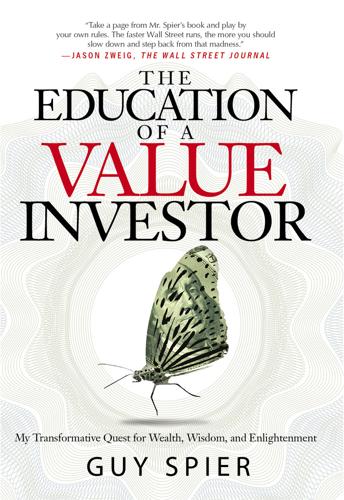
The Education of a Value Investor: My Transformative Quest for Wealth, Wisdom, and Enlightenment
by
Guy Spier
Published 8 Sep 2014
Because it’s a story about how things happen in the real world—and because the real world is messy—the topics are broad in scope. They range from the most insignificant of habits that I’ve developed, like what to read first, to the grandest: whom to choose as heroes and mentors and how their wisdom can change your life. This book traces the arc of a transformation. I started off as a Gordon Gekko wannabe—brash, shortsighted, and entirely out for myself. Then a series of transformations and self-realizations led me on a path from Benjamin Graham’s The Intelligent Investor to Ruane Cunniff to Poor Charlie’s Almanack to Robert Cialdini, then to meeting Mohnish Pabrai and lunch with Warren Buffett.
…
With Warren’s permission, we had also hired our wedding photographer to memorialize the event. I was so nervous that I was run down and had a cold. I knew that Buffett was a penetrating judge of character, and I was afraid of being exposed. What if he saw through me and detected any lingering remnants of the Gordon Gekko side of my nature? But I was also enormously excited. From my meals with Mohnish, I’d seen what a huge impact it can have simply to hang out with a person you revere. So I was thrilled at the prospect of seeing Warren up close, of observing what made him tick. This would be the ultimate capitalist master class.
…
Ask indirect questions to get people to reveal their weaknesses and intentions. There is no occasion that is not an opportunity for artful spying.” In some ways, this scheming Machiavellian, approach to life and business is quite seductive. In my youth, there was a part of me that certainly identified with it, fancying myself as a budding Gordon Gekko, with the intelligence and cunning to manipulate my way to the top. And as my experience at D. H. Blair taught me, there is plenty of opportunity on Wall Street for cynical operators to get rich by putting their own interests first. But as I later discovered, there is also a more enlightened path to success, even within the dog-eat-dog financial world—an approach that I have come to think of as “The Buffett-Pabrai Way.”
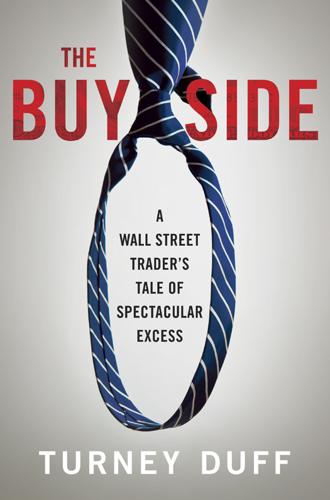
The Buy Side: A Wall Street Trader's Tale of Spectacular Excess
by
Turney Duff
Published 3 Jun 2013
Turney Duff yields to temptation at every turn, and the sheer volume of criminal behavior he saw, and even participated in, is astonishing.… If you want to see Wall Street’s seamy underbelly firsthand, read this book.” —Frank Partnoy, bestselling author of F.I.A.S.C.O. and Infectious Greed “If you took Gordon Gekko, Bud Fox, a copy of Bright Lights, Big City, and threw them in a blender with an ounce of cocaine, a bottle of Patrón Tequila, and your favorite teddy bear, you’d have yourself a Buy Side smoothie. Turney’s my kind of guy; a madman with heart. I couldn’t put the book down.” —Colin Broderick, author of Orangutan Copyright © 2013 by Turney Duff All rights reserved.
…
All I know is, he moved to San Francisco with his second wife. He still works in finance. He shaved his mustache and traded in the Corvette for a navy blue Mercedes 560 SL that he calls the Boesky Benz. He named the car after his biggest client, Ivan Boesky, who was at least partly the inspiration for Wall Street’s Gordon Gekko. Because of Uncle Tucker, the Wall Street world has always seemed magical to me. But the idea of working there has never even entered my mind. He must know successful, influential people, even in the world of journalism. I jot down his number and say goodbye. Tucker answers the phone on the first ring.
…
I feel like I’m in the movie Pretty Woman, but I’m unsure if I’m Julia Roberts or Richard Gere. I look in the mirror at myself draped in Dolce & Gabbana, Gucci, and Prada. With each suit I try on I feel more powerful. “Hi there, buddy,” I say to my reflection clad in the navy blue Prada. Peter is confused by my Gordon Gekko portrayal. “Sandbagged me on Bluestar, huh? I guess you think you taught the teacher a lesson that the tail can wag the dog, huh? Well, let me clue you in, pal. The ice is melting right underneath your feet.” Kevin, who has seen the movie, laughs at my performance. I end up buying five suits, two pairs of shoes, and a bunch of shirts.
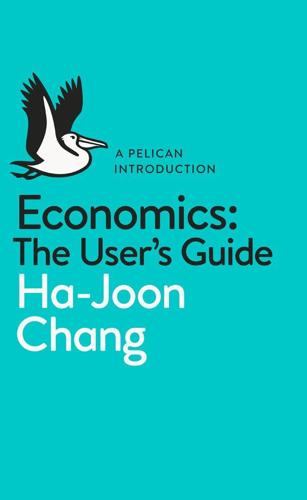
A Pelican Introduction Economics: A User's Guide
by
Ha-Joon Chang
Published 26 May 2014
This was the kind of practice Gordon Gekko (you’ve met him in Chapter 3) was attacking in Wall Street, when he pointed out the company that he was trying to take over had no less than thirty-three vice presidents, doing God knows what. Many pro-market economists, especially Michael Jensen and Eugene Fama, the 2013 Nobel Economics Prize winner, have suggested that this principal-agent problem can be reduced, if not eliminated, by aligning the interests of the managers more closely to those of the shareholders. They suggested two main approaches. One is making corporate takeover easier (so more Gordon Gekkos, please), so that managers who do not satisfy the shareholders can be easily replaced.
…
The change was particularly pronounced in the US and the UK, in which new finance has advanced the furthest and in which, unlike in Germany or Japan, stakeholders other than shareholders have had little influence on how companies are managed. The first important change has been a further shrinking time horizon in management. With the rise of hostile takeovers in the 1980s (recall Gordon Gekko from Chapter 3), companies had already been put under increasing pressure to deliver short-term profits, if necessary at the cost of long-term competitiveness. But with the proliferation of so many financial instruments that provide quick and high returns, shareholders have become even more impatient in the last couple of decades.
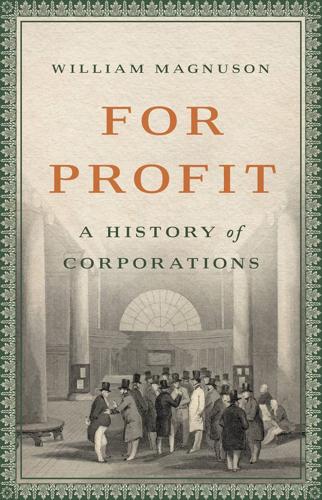
For Profit: A History of Corporations
by
William Magnuson
Published 8 Nov 2022
Their raids proved spectacularly successful, and soon an entire industry of copycats sprang up to mirror their tactics. The age of the corporate raider had begun. I LIKE TO tell my students that private equity is a tale of two Gordons. The first Gordon is Gordon Gekko. In this lens, private equity firms and their managers are real-life versions of Oliver Stone’s immoral banker from the movie Wall Street. They believe that “greed is good,” that all is fair in love and business, and that, in the free market, avarice is a competitive advantage. The Gordon Gekko view of private equity is a morality tale about those who create nothing and yet take everything. The second Gordon is Flash Gordon. Seen in this light, the realm of private equity is not the immoral world of Wall Street.
…
It is populated by all-American polo players who graduated from Yale and then transform into superheroes devoted to saving the world from destruction and waste. Private equity managers, in this tale, are real-life heroes, bringing new energy and vigor to our economies. These two schools of thought tell very different stories about what private equity is and how it works. The Gordon Gekko school understands it as being primarily about wealth extraction—charging high fees to pension funds, driving hard bargains with struggling companies, firing and mistreating workers, exploiting tax loopholes, and then selling companies to the gullible public at inflated prices. This is a bleak vision.
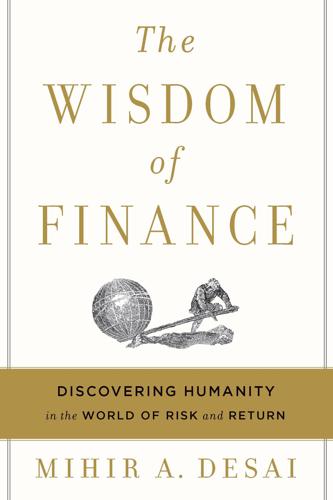
The Wisdom of Finance: Discovering Humanity in the World of Risk and Return
by
Mihir Desai
Published 22 May 2017
There you get mental action spurred by desire, ambition, vanity, without any of the moderating influences which we are prone to admire—sympathy, tenderness and fair play.” This characterization sounds very much like the way many view finance today. There is a fairly straight line from Cowperwood to the Gordon Gekko of Wall Street, the Patrick Bateman of Bret Easton Ellis’s American Psycho, and to the Eric Packer of Don DeLillo’s Cosmopolis. Cowperwood is actually a fully rounded character, whom it is easy to sympathize with. Gradually, the finance protagonists have become less sympathetic and realistic, and more ghoulish and robotic.
…
Given how pervasive the theme of insatiable desire is in modern-day depictions of finance, it begs the question: Does this theme of insatiable desire reflect an idea grounded in finance? It is tempting to conclude that in fact finance is all about the individual pursuit of more. After all, when Gordon Gekko of Wall Street says “greed is good,” isn’t he actually framing a key insight of economics—that the pursuit of self-interest in some settings can lead to good outcomes? In fact, the most fundamental idea of finance questions the pursuit of more. It is an idea so foundational that it is often not taught and just left unsaid—as I have done so far.
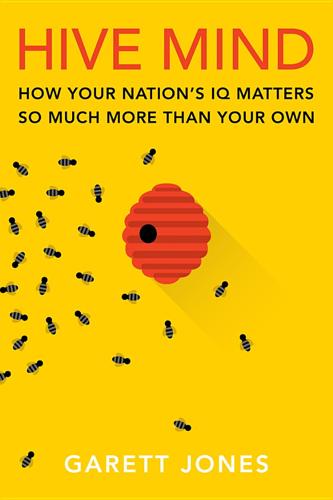
Hive Mind: How Your Nation’s IQ Matters So Much More Than Your Own
by
Garett Jones
Published 15 Feb 2015
This is one example of the famous “prisoner’s dilemma,” in which individual greed leads to an awful group outcome. Prisoner’s dilemmas are everywhere, and they’re the precise opposite of Adam Smith’s famous “invisible hand,” in which individual greed leads to a positive group outcome. Invisible hands and prisoner’s dilemmas are both at work in the world: sometimes, as Gordon Gekko said in the movie Wall Street, “Greed is good,” and sometimes greed creates misery. In this and the next chapter, we’ll see how greed can create misery, and we’ll see how higher-IQ groups are just a bit more likely to find a way to cooperate, a bit more likely to avoid the prisoner’s dilemma. The Real Prisoner’s Dilemma First off, let’s go back to the source—the classic economic example of when greed is bad.
…
Taiwan, 60 United States: average cognitive ability score in, 170; average IQ score in, 39, 47, 72, 170; as borrower from China, 82; da Vinci Effect in, 47; Democrats, 124, 126–27; downsizing of military, 69; economic policies, 123–24; education in, 122; GDP per person and cognitive ability in, 9; immigration to, 47–48, 159–60, 174n17; IQ and income in, 31, 32, 44; IQ and probability of voting in, 128; IQ and smoking in, 67–68; IQ scores in military, 29, 50; IQ scores of East Asians in, 45–46; lead exposure in, 63; presidential test scores, 119; Republicans, 124, 126–27; rising IQ scores in, 50; savings rate in, 72; taxation in, 122 Uruguay: average cognitive ability score in, 170; average IQ score in, 170 Vanhanen, Tatu: IQ and the Wealth of Nations, 38, 40–41 Veblen, Thorstein: on conspicuous consumption, 73–74; Veblen Effect, 73–74 verbal similarities tests, 51, 57 vocabulary tests, 20, 23, 33, 58, 125, 167 wages: minimum wage, 108; relationship to immigration, 47–48, 157–60; relationship to IQ scores, 4–5, 6–7, 14, 30–32, 35, 36, 43–44, 47–48, 49, 152, 153–54, 174n12; relationship to productivity, 30–31, 140–41, 144, 156 Wall Street: Gordon Gekko in, 86 Warner, John T., 69 Wechsler IQ test, 15, 20, 37, 39, 51, 125 Weede, Erich, 171n7 Weel, Jaap, 98–100 Wen Jiabao, 82 Wicherts, Jelte: on Lynn, 41–44, 56; on Sub-Saharan IQ score, 41, 42–43, 56 Wicherts, Jelte M., 173n1 Williams, Robert L., 175n18 win-stay/lose-shift strategy, 176n4 win-win outcomes, 2–3, 106–8, 109–10, 113, 151, 166 Wisconsin study of IQ and earnings, 31, 48 Wittman, Donald: on democracy and the Coase Theorem, 108; The Myth of Democratic Failure, 108 Wolfers, Justin, 134 Wolfinger, Raymond E., 128 Wonderlic IQ test, 176n10 Woodley, Michael A., 129 World Bank, 118 Yemen: average cognitive ability score in, 170; average IQ score in, 170 Zitzewitz, Eric, 134
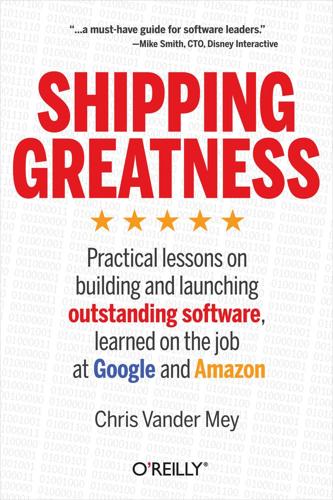
Shipping Greatness
by
Chris Vander Mey
Published 23 Aug 2012
Do yourself a favor and avoid warning-level offenses: don’t use these icky aphorisms. If you find someone using them, let such phrases be a reminder to you that he or she is in stage 1. Ask the individual to stop and move on to stage 2. Stage 2: Being Fair and Using Data Now that you’ve put away the “I have to get the lowest possible price because that’s what Gordon Gekko would do” attitude, you can go about negotiating reasonably. The most reasonable way to negotiate a number is by trading data. For example, you volunteer some data: “I can get bandwidth from AT&T for $1/Gb.” Then the other party will volunteer additional data: “Our costs are $0.95 per Gb.” Hopefully things end nicely at this point, settling at $0.98 or $0.97 per gigabit (depending on who’s more of an a-hole), and both parties win.
…
If this is you, proceed to stage 6 and light a candle at the chapel on the way home. Also, some money to the Salvation Army Santa might be in order. Most of us are not so lucky because fatigue makes everything worse (or so my new-mother friends tell me). It’s possible that stage 1 (in which you wanted to be Gordon Gekko, master of the universe) may rear its ugly head again. Posturing may ensue: “OK, we’re too far apart; I guess we’ll have to build it ourselves.” Threats may be made: “We’re going to put you out of business anyway…” Phones may be put on mute and warning-offense quality curses uttered. It’s at this point that a necessary cooling-off period is introduced organically.
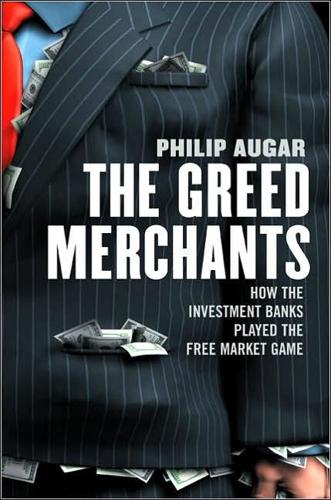
The Greed Merchants: How the Investment Banks Exploited the System
by
Philip Augar
Published 20 Apr 2005
But Wall Street’s newfound fame turned sour for a few years in the late 1980s and early 1990s. The huge rewards led to conspicuous consumption, flash spending and growing media interest in life on Wall Street. In the late 1980s Tom Wolfe’s bestseller Bonfire of the Vanities, Michael Douglas’s Oscar-winning portrayal of Gordon Gekko in the movie Wall Street and Michael Lewis’s tale of the Salomon Brothers jungle, Liar’s Poker, picked out some not very attractive characteristics of investment banking people.16 A crop of insider trading and market manipulation cases – notably the Boesky and Milken affairs in America and the Guinness scandal in the UK – revived old memories of greed and corruption in financial circles.17 Ivan Boesky was a prominent risk arbitrageur – someone who takes stock market positions in the hope of profiting from takeover bids – who received a prison sentence and a $100 million fine in 1986 after admitting to trading on insiders’ tips.18 Boesky was well known in financial circles but what shocked the public at large was where the trail led.
…
Clients pressed the banks to cut prices in some areas but not in others. No one seemed concerned about the high returns being made by the investment banks and their employees. Why? One reason is that the clients were committed to the market economy, trusted it to work and saw no need to intervene. Like Michael Douglas’s Gordon Gekko, they believed that ‘Greed, for want of a better word, is good. Greed is right. Greed works.’1 Another reason is that they were also in the markets for their own greed, and as long as this was fed they would not disturb the system. They were using other people’s money and were not too bothered about, to paraphrase J.
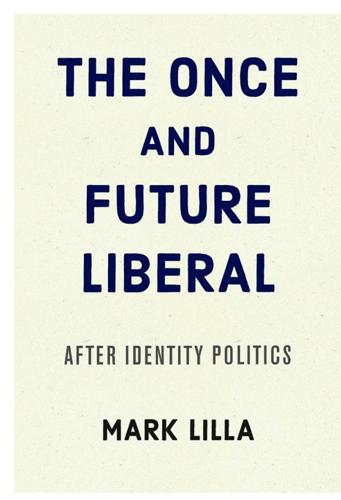
The Once and Future Liberal: After Identity Politics
by
Mark Lilla
Published 14 Aug 2017
Easy in another sense, too, in that it made no moral demands. Americans have always been entrepreneurial and have always believed that to get rich is glorious. But our long-abandoned Calvinism treated wealth as a sign of moral worth, the fruit of discipline and self-denial, not the fruit of looking out for number one. The Horatio Alger stories were not Gordon Gekko stories or Ivan Boesky stories or Bernie Madoff stories. The characters did wear suspenders, but they were not masters of any universe, did not smoke big cigars or drink $1,000 bottles of wine or take clients to strip clubs. For all his social conservatism, Ronald Reagan’s vision of the good life was remarkably amoral.
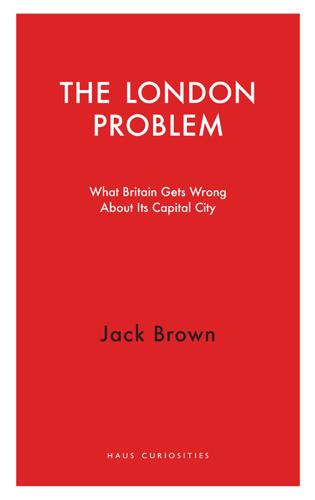
The London Problem: What Britain Gets Wrong About Its Capital City
by
Jack Brown
Published 14 Jul 2021
Welcoming contributions from a diverse pool of authors, the series aims to reinstate the concise and incisive booklet as a powerful strand of politico-literary life, amplifying the voices of those who have something urgent to say about a topical theme. Britain in a Perilous World: The Strategic Defence and Security Review We Need JONATHAN SHAW The UK’s In-Out Referendum: EU Foreign and Defence Policy Reform DAVID OWEN Establishment and Meritocracy PETER HENNESSY Greed: From Gordon Gekko to David Hume STEWART SUTHERLAND The Kingdom to Come: Thoughts on the Union Before and After the Scottish Referendum PETER HENNESSY Commons and Lords: A Short Anthropology of Parliament EMMA CREWE The European Identity: Historical and Cultural Realities We Cannot Deny STEPHEN GREEN Breaking Point: The UK Referendum on the EU and its Aftermath GARY GIBBON Brexit and the British: Who Are We Now?
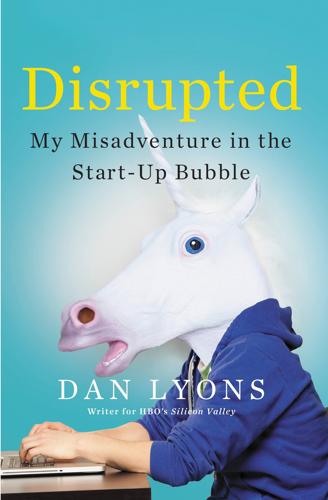
Disrupted: My Misadventure in the Start-Up Bubble
by
Dan Lyons
Published 4 Apr 2016
Start-ups seem to believe it is okay for them to bend rules. Some, like Uber and Airbnb, have built their businesses by defying regulations. Then again, if laws are stupid, why follow them? In the World According to Start-ups, when tech companies cut corners it is for the greater good. These start-up founders are not like Gordon Gekko or Bernie Madoff, driven by greed and avarice; they are Rosa Parks and Martin Luther King Jr., engaging in civil disobedience. There’s also a sense among start-ups that it’s okay for them to break the rules because they’re underdogs competing against huge opponents; they’re David, firing his slingshot at Goliath.
…
As with my first score, I don’t argue with Trotsky or try to haggle or negotiate. I just listen. The third category is VORP, the scoring system that Halligan borrowed from Major League Baseball. VORP stands for value over replacement player. VORP is a cruel, heartless metric, and it’s weird to set it right alongside HEART. It’s like putting a photo of Gordon Gekko next to a photo of the Dalai Lama. VORP is the opposite of HEART. It’s the anti-HEART. It’s HEART-less. In this category I figure I will get a one, or a zero, or even a negative number, if that’s possible. I’m being paid a lot of money to do a job that a summer intern could do, a job that originally was created as a part-time assignment for Cranium’s administrative assistant.
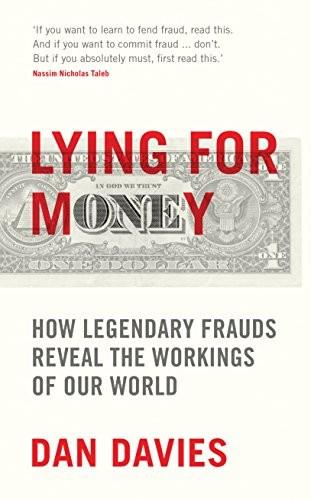
Lying for Money: How Fraud Makes the World Go Round
by
Daniel Davies
Published 14 Jul 2018
The founders of OPM were keen on acronyms – at the height of their success, the other partner tried to bid for the Madison Square Garden entertainment complex seemingly for no other reason than that its initials were the same as his – Myron S. Goodman. Weissman and Goodman were a hell of a team; part Marx Brothers, part Gordon Gekko. They were brothers-in-law, highly regarded in the Orthodox Jewish community as philanthropists and for their devoutly religious and scholarly manner. Goodman would begin meetings by quoting Bible verses, while Weissman took time out from the business in 1973 to fight in the war against Egypt.
…
When no fewer than twenty-three consecutive takeovers had significant buying from a single stockbroker’s office in Bowling Green, Kentucky, it raised some red flags. It turned out that one of the chatroom crowd had started passing on tips to friends and relatives in his home town. It didn’t help matters that some of Freeman’s syndicate had decided to name their trading account ‘Blue Horseshoe Investments’, after the code name used by Gordon Gekko in the film Wall Street. By 2000, the whole network had been rolled up. The interesting thing here is that this sort of insider dealing is a relatively modern crime. In the USA, it was banned in 1934, but it remained legal in the UK until 1980 and was only banned in New Zealand in 1998 (and even then, the Kiwis only got round to making it a criminal, rather than civil, offence in 2008).
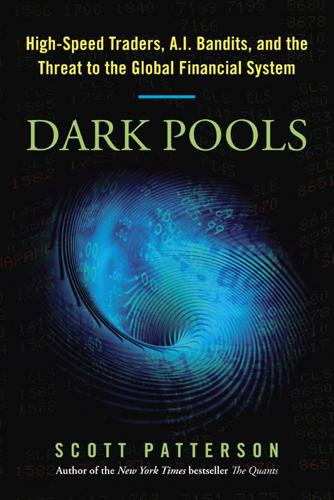
Dark Pools: The Rise of the Machine Traders and the Rigging of the U.S. Stock Market
by
Scott Patterson
Published 11 Jun 2012
The bull had come roaring back in the financial capital of the world after the punishing doldrums of the 1970s. Peter Lynch was in the midst of his historic run at the helm of Fidelity Investments’ Magellan Fund. Warren Buffett, the Oracle of Omaha, was becoming a household name. It was the Wall Street of Michael Lewis and Gordon Gekko, of hostile takeovers and the Reagan Revolution. Times were good and getting better. Denizens of the Street were more than ready to celebrate. Levine couldn’t have cared less about the bull market. The programmer had little interest in trading or making money. His mind was focused on a single subject: changing the world through computers.
…
Sans electricity, Levine sat in shadows—surrounded by brightly lit booths with flashy displays from deep-pocketed competitors like Instinet. Levine tried to hand out dollar bills or Susan B. Anthony coins impressed with an Island stamp, since it cost just a buck to execute a trade on Island. Most attendees—think Armani-clad traders with Rolex watches and greasy Gordon Gekko hairdos—didn’t want the free dollar. Levine decided to stick to programming. He’d find others to pitch Island. Better yet, Island would sell itself. FROM the beginning, Levine’s trading pool was humming like a Formula One race car. Using Island, Watcher users could blast trades into the market at speeds never before seen.

The Raging 2020s: Companies, Countries, People - and the Fight for Our Future
by
Alec Ross
Published 13 Sep 2021
These critics argued that government had kept a lid on business for too long: managers of big businesses had grown complacent and had stopped driving profits, and the whole economy was stagnating as a result. If companies were turbocharged to maximize profits, it would jolt the whole country and the whole world into growth. To get there, all you had to do was prioritize profit. A pithier version of Friedman’s big idea soon swept through the culture, expressed by Gordon Gekko in Oliver Stone’s Wall Street: “Greed is good.” The effect of shareholder primacy was to drive a stark line between a company’s shareholders and its stakeholders, defined as every other party affected by its business and including its employees, its community, its country, its customers, and the environment.
…
The Foreign Office and MI6 were chock-a-block with Cambridge and Oxford alumni. But the popularity of government jobs began to decline as society started deifying captains of industry. Oliver Stone’s movie Wall Street served more as an inspiration than as the harsh critique the filmmaker intended. The lifestyle of Gordon Gekko and his real-life equivalents drew more young men (and it was overwhelmingly men) to the world of business and finance. Beginning in the 1990s, it became rare for graduates of the most prestigious universities to view government service as an attractive career. More often than not, they chose an investment bank, an elite consultancy, or a technology company.
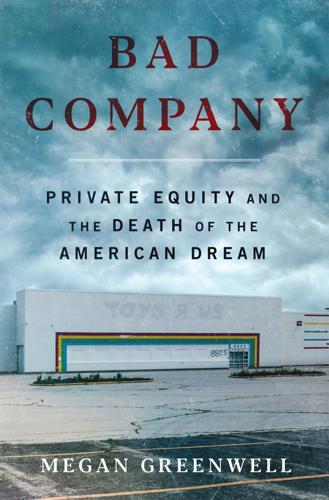
Bad Company
by
Megan Greenwell
Published 18 Apr 2025
When PBS NewsHour ran a mildly critical segment about private equity’s growing dominance in 2010, the CEO of the Private Equity Council reacted with outrage in a letter: “You don’t report that Toys R Us was saved from likely bankruptcy by PE owners, that it has more employees working for it than it did before it was acquired, and that it is on the verge of returning to the public equity market.” Private equity executives have always sold themselves as brash swashbucklers, eager to be the hero when no one else is brave enough to shoulder the risk. Think of Wall Street, the 1987 film that dramatized the forefathers of modern private equity. Michael Douglas’s character, Gordon Gekko—he of the famous “greed, for lack of a better word, is good” speech—is the villain, while Charlie Sheen’s Bud Fox is the good-hearted protagonist who winds up in prison because he fell under Gekko’s spell. But Fox is only marginally less craven, always pushing his boss to take risky bets that he’s sure will make them money while also saving the acquired company.
…
Yet the suits walked away with seven-figure bonuses, while she and her colleagues couldn’t even get the relatively paltry severance their contracts had promised. The enduring myth of the lone business genius creating a Fortune 500 company, or saving one from destruction, has benefited private equity immeasurably. Think of Gordon Gekko in Wall Street, the only person clear-eyed enough to come up with a future strategy for failing companies without allowing his emotions to get in the way. Think of how finance titans like Blackstone cofounder Stephen Schwarzman, former Apollo Global Management chairman Leon Black, KKR cocreator Henry Kravis, and former Bain Capital CEO Mitt Romney are rewarded with seats in the Senate and board positions at some of the country’s most august institutions.
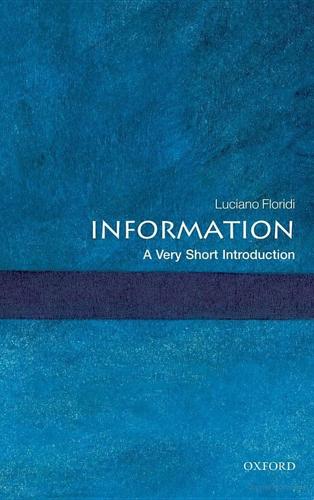
Information: A Very Short Introduction
by
Luciano Floridi
Published 25 Feb 2010
In humans, it involves the unique capacity to gather, store, and retrieve, exchange, integrate, and update, use and indeed misuse semantic information acquired by other people, including past generations. It is this social and economic sphere of information that will be explored in the next chapter. In Oliver Stone's film Wall Street (1987), the main character, Gordon Gekko (Michael Douglas), declares that `the most valuable commodity I know of is information'. He was probably right. Information has always had great value, and whoever has owned it has usually been keen on protecting it. This is why, for example, there are legal systems regulating intellectual property.
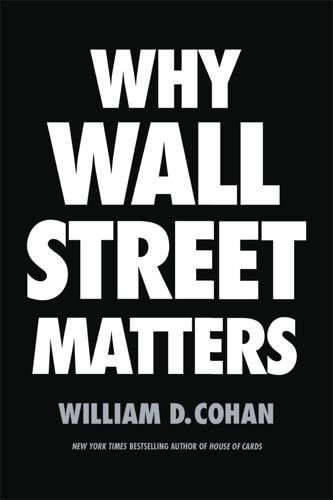
Why Wall Street Matters
by
William D. Cohan
Published 27 Feb 2017
“Greed, fraud, dishonesty and arrogance, these are the words that best describe the reality of Wall Street today,” he said in January 2016. And then he paid homage to one of the most recognizable cultural touchstones about modern Wall Street when he referred to the famous “Greed is good” scene in Wall Street, the 1987 Oliver Stone film, where Gordon Gekko, played with oleaginous glee by Michael Douglas, lectures Bud Fox, his young and aspiring apprentice (played by Charlie Sheen). “So, to those on Wall Street who may be listening today, let me be very clear,” Senator Sanders continued. “Greed is not good. In fact, the greed of Wall Street and corporate America is destroying the fabric of our nation…We will no longer tolerate an economy and a political system that has been rigged by Wall Street to benefit the wealthiest Americans in this country at the expense of everyone else.”
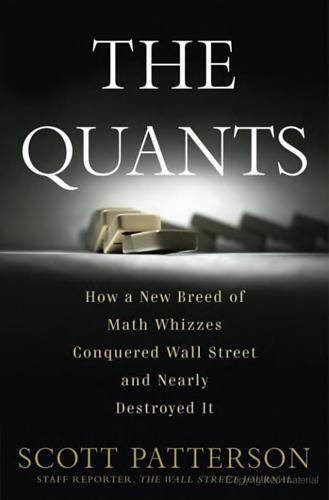
The Quants
by
Scott Patterson
Published 2 Feb 2010
But the damage had been done. The mood around the country turned decidedly anti–Wall Street as the junk bond scandals hit the front pages of newspapers. An October 1987 Newsweek cover queried, “Is the Party Over? A Jolt for Wall Street’s Whiz Kids.” In December 1987, audiences in movie theaters listened to Gordon Gekko, the slimy takeover artist played by Michael Douglas, proclaim the mantra for the decade in Oliver Stone’s Wall Street: “Greed is good.” A series of popular books reflecting the anti–Wall Street sentiment hit the presses: Bonfire of the Vanities by Tom Wolfe, Barbarians at the Gate by Wall Street Journal reporters Bryan Burrough and John Helyar, The Predators’ Ball by Connie Bruck, Liar’s Poker by Michael Lewis.
…
At the time, the quants were known as rocket scientists, since many came from research hotbeds such as Bell Labs, where cell phones were invented, or Los Alamos National Laboratory, birthplace of the atomic bomb. Wall Street’s gut traders eventually proved to be no match for such explosive brainpower. Michael Lewis’s Wall Street classic, Liar’s Poker, exemplified and exposed the old-school Big Swinging Dick trader of the 1980s, the age of Gordon Gekko’s “greed is good.” Lewis Ranieri, the mortgage-bond trader made famous in the book, made huge bets based on his burger-fueled gut. Michael Milken of Drexel Burhman for a time ruled the Street, financing ballsy leveraged buyouts with billions in junk bonds. Nothing could be more different from the cerebral, computerized universe of the quants.
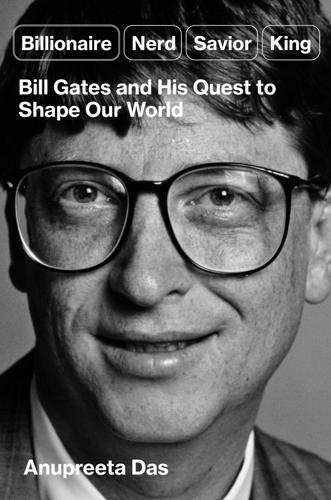
Billionaire, Nerd, Savior, King: Bill Gates and His Quest to Shape Our World
by
Anupreeta Das
Published 12 Aug 2024
In The Bonfire of the Vanities, a bombastic tale of race, class, and politics, Tom Wolfe portrayed New York as a city seething with ambition, greed, and ego—the Masters of the Universe! But nothing established Wall Street as a cesspit of amoral, selfish, and scheming individuals who will stop at nothing to make their payday more than the 1987 movie Wall Street, which made Gordon Gekko a fixture in the public imagination—in particular, the line that “greed is good.” Gekko, played by Michael Douglas, may have been making a more nuanced point about the nature of capitalism, but the line became a damning shorthand for Wall Street. At the same time, a crop of young technology entrepreneurs was swiftly climbing up the ladder of influence and wealth.
…
Gates foundation Gates Foundation Trust, 130 GatesNotes, 107, 131 Gates Ventures, 102–105, 118, 221–222, 233, 236 GAVI (Global Alliance for Vaccines and Immunization), 176–177, 277 Gawker, 49 Gayle, Helen D., 193 Geffen, David, 270 gender equality, 22 General Atlantic, 133 George Washington University, 123 Germany, 24 Gilbert, Dan, 273–274 Gilded Age, 20, 23 Gilded Age, The (TV show), 20 Gilovich, Thomas, 252 Giridharadas, Anand, 185 girls, in STEM fields, 53 Giuliani, Rudy, 100 “Giving in America: A History of Philanthropy” (Moniz), 22 Giving Pledge, 19, 25, 132–141, 196, 202, 227–228 Giving Tuesday, 24 Giving USA (report), 21, 25 Gleick, James, 63 Global Alliance for Vaccines and Immunization (GAVI), 176–177, 277 Global Findex Database, 183 Global Fund to Fight AIDS, Tuberculosis and Malaria, 177 Global Good, 223 Global Infrastructure Partners, 212 Global Philanthropy Group, 202–203 Global Polio Eradication Initiative (GPEI), 176, 277 global positioning system (GPS), 48 Goalkeepers, 168, 194, 200 Goldman Sachs, 160, 260 Good Morning America, 148 Google, 44, 83, 84, 86, 266 GoPro, 205 Gordon Gekko (fictional character), 40–41 Gospel of Luke, 167 Gospel of Wealth, The (Carnegie), 120–122, 134 Gould, Jay, 20 GPEI (Global Polio Eradication Initiative), 176, 277 GPS (global positioning system), 48 Graham, Katharine, 116, 154 Grand Challenges in Global Health, 182 Grandview Capital, 215–216 Great Gatsby, The (Fitzgerald), 158, 281 Great Recession (2008), 134 Green, Jeff T., 205 Greenfield, Meg, 116 Griffin, Anne Dias, 145 Griffin, Ken, 145, 201, 224, 270 Gross, Bill, 136, 145 Gross, Sue, 145 Grove, Andy, 69 Guardian, The, 237 Guggenheim, Davis, 103 Gulfstream G8 jet, 270 Guthrie, Savannah, 164 Haley, Nikki, 272 Halvorsen, Andreas, 54 Hamas attack on Israel (2023), 254, 279 Hamid, Sabah, 195 Happy Hollow Club, 118–119 Hard Drive (Wallace and Erickson), 159 Harvard Book Store, 273 Harvard Business Review, 204 Harvard University, 33, 229, 237, 266 Harvard University Press, 256 Harvey Mudd College, 242 Hastings, Reed, 44, 187 HBO, 20, 52 Hendricks, Richard, 52–53 Henry, John, 273 Hewlett-Packard, 47, 72 HIV/AIDS, 197, 199, 277 Hoffman, Reid, 54–56, 205 Holmes, Elizabeth, 50 Home Depot, 273 Homer, Winslow, 224 Homer Simpson (fictional character), 93 Hood Canal, 116, 224, 267 House Judiciary Committee, 82–83 How to Avoid a Climate Disaster (Gates), 279 Hyatt Hotels, 236 Hyderabad, India, 195 I Am a Bunny (Scarry), 109 IBM, 35, 70 Icahn School of Medicine, 158 Ice Bucket Challenge, 24 Icos, 118 Idaho Mountain Express, 14 Idea Man (Allen), 36 IMF (International Monetary Fund), 189 IMG, 237 Impatient Optimist (sculpture), 275 income inequality, 254–261 India, 194–201, 277 Indiana University, 21, 22, 37, 170, 202 Indian Wells, Calif., 224 Infoseek, 75 Infospace, 217 Infowars, 246 Ingraham, Laura, 247 Inside Bill’s Brain (Netflix series), 103, 156 Instagram, 81, 84 Institute for Health Metrics and Evaluation, 183 Institute for Policy Studies, 139, 261 Intel, 69 intellectual property, 222–223 Intellectual Ventures, 222–223 International Monetary Fund (IMF), 189 International Peace Institute, 105 International Women’s Day, 154 internet, 75–76 Internet Explorer, 64, 76–77 “Internet Strategy and Technical Goals” (Gates), 75 “Internet Tidal Wave, The” (Gates), 76 Intuit, 72, 73, 74 Investopedia, 16–17 iPhones, 44, 84, 86 Ipsos polls, 246 Isaacson, Walter, 36 Ito, Joichi, 231, 233 Jack, Jordynn, 53 Jackson, Mike, 221 Jagland, Thorbjørn, 105 James, E.
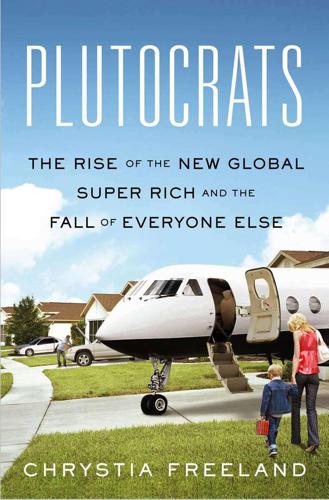
Plutocrats: The Rise of the New Global Super-Rich and the Fall of Everyone Else
by
Chrystia Freeland
Published 11 Oct 2012
“You had people in their thirties, through hedge funds and Goldman Sachs partner jobs, people who were making twenty, thirty, forty million a year. And there were a lot of them doing it. They started hanging out with each other. They became a pack. They started roaming the globe together as global high rollers and the differences between them and the rest of the world became exponential. It was no longer just Gordon Gekko. It developed into a totally different stratosphere.” — Ms. Peterson’s dinner party observations are borne out by the data. In America, the gap between the top 1 percent and everyone else has indeed developed into “a totally different stratosphere.” In the 1970s, the top 1 percent of earners captured about 10 percent of the national income.
…
But at a moment of hyperinflation and slightly lower state interest rates, banking offered an opportunity to make the first big post-Soviet windfall. Even more important, the fortunes earned using state credits provided the future oligarchs with the capital and the connections to muscle their way into the real windfall, the 1995 loans-for-shares giveaway of Russia’s natural resources. Because of Gordon Gekko, Bendukidze missed out. — Soros learned about revolutions the hard way. He compares 2008, with its cataclysmic events and his survival of them, with 1944, when as a Jewish fourteen-year-old in Nazi-occupied Budapest he and his family eluded the Holocaust. The Soroses and their circle of friends had lived comfortable, largely secular lives before the Germans arrived.
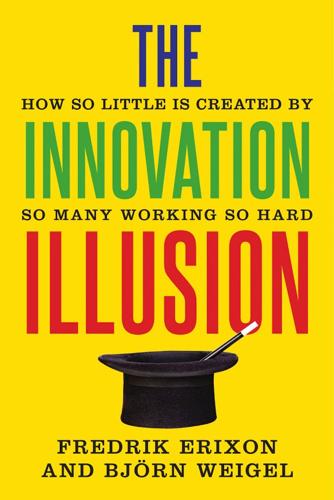
The Innovation Illusion: How So Little Is Created by So Many Working So Hard
by
Fredrik Erixon
and
Bjorn Weigel
Published 3 Oct 2016
This alone drew admirers, yet next to it sat an equally expensive LaFerrari, a $1-million McLaren, and a Maybach – a budget trolley in comparison, but still worth almost half a million US dollars. Together, the story reported, the cars helped to attract a crowd. This squad of horsepower and conspicuous luxury waiting on double yellow lines for its masters was not a sign of London bouncing back after the Great Recession. Nor was it the site of an annual meeting between Gordon Gekko, Sherman McCoy, Patrick Bateman, and their modern, real-life incarnations in the asset management industry. The owners were “wealthy individuals from the Middle East” who had airlifted their four-wheeled toys to London for a short stopover. It costs roughly $30,000 for a car’s return ticket with Qatar Airways, but considering that a customized paint job alone can exceed $40,000, probably no one complained.14 Stories like these get associated with capitalism.
…
Like a Greek tragedy in which every actor acts rationally, if not morally, yet still produces a bad outcome, the sources of gray capitalism have been taking Western economies for a ride toward a growth tragedy. The financial sector in the Western world started to expand in earnest around 1980, part of a larger trend of intermediaries investing, advising, managing, and facilitating companies. Few characters have symbolized that early era of latter-day financial capitalism as much as Gordon Gekko, the villain of the 1987 movie Wall Street played by Michael Douglas. Barring his criminal behavior, Gekko is in several ways representative of the financial ecology that has grown in the past decades. The financial sector has expanded rapidly, and rewards its stars with exorbitant salaries. Total remuneration increased sharply and the sector’s share of all American corporate profits went from well below 10 percent in 1980 to almost 30 percent in 2012.
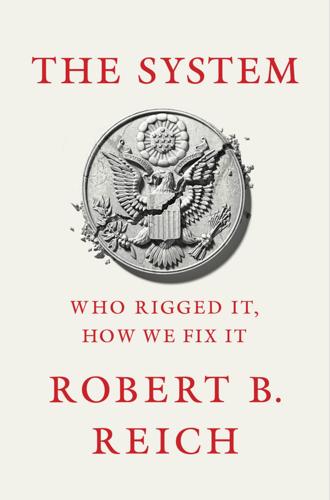
The System: Who Rigged It, How We Fix It
by
Robert B. Reich
Published 24 Mar 2020
Isaac Perlmutter, the CEO of Marvel Comics and a veteran of the Israeli Army, likened dealing with Icahn to negotiating with terrorists. Also like Trump, Icahn came to prominence in the roaring 1980s. As America’s preeminent corporate raider, he was part of the inspiration for the character Gordon Gekko in the 1987 film Wall Street. When Oliver Stone was researching the film, he visited Icahn and borrowed one of Icahn’s observations for the Gekko character: “If you need a friend, get a dog.” (Icahn borrowed the phrase from Harry Truman’s description of life in Washington. It’s unclear whether Icahn also supplied the most memorable line in the film: “Greed, for lack of a better word, is good.
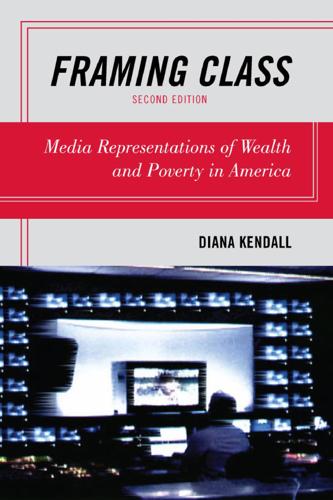
Framing Class: Media Representations of Wealth and Poverty in America
by
Diana Elizabeth Kendall
Published 27 Jul 2005
As that tag line suggests, the lifestyles of the rich and famous shown on Leach’s program were nothing more than “wishes” or “dreams” for the typical viewer. However, the series supported one of the key tenets of the gospel of materialism—namely, “Greed is good,” as stockbroker Gordon Gekko (played by Michael Douglas) declares in the 1980s film Wall Street. During the economic crisis of the 2000s, in Wall Street 2: Money Never Sleeps, Michael Douglas reprises his role as Gordon Gekko, who emerges twenty years later from prison and seeks to rebuild his career and repair his relationship with his daughter. She is engaged to a young, ambitious Wall Street trader with goals much like Gekko himself had when he became involved in chicanery resembling much of what has contributed to many of this country’s financial problems in the twenty-first century.94 Like the original Wall Street and other films such as the 1980s classic Bonfire of the Vanities, Wall Street 2 highlights price-tag framing: everything (and everybody) has a price, and the higher the price, the greater the zeal with which people will pursue wealth and power at any cost. 9781442202238.print.indb 48 2/10/11 10:46 AM Twenty-Four-Karat Gold Frames 49 Not only does price-tag framing tell media audiences how much the rich pay for their possessions, but it also may suggest that ordinary people can live like millionaires, even if on a reduced scale.
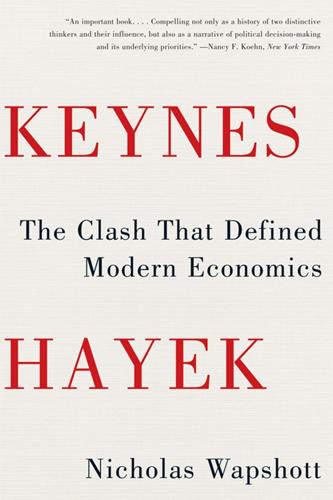
Keynes Hayek: The Clash That Defined Modern Economics
by
Nicholas Wapshott
Published 10 Oct 2011
Private enterprise replaced communal action as the preferred way to change society. The free-loving flower children of the 1960s’ “Love Generation” had given way to the self-centered “Me Generation” of the ’80s and ’90s. Bob Dylan’s call to action “The Times They Are a-Changin’” had been superceded by Gordon Gekko’s mantra “Greed Is Good.”21 The national battle for civil rights for minorities was replaced by a demand for smaller government, states’ rights, and more individual rights. By the early 1990s, Taylor’s rule, showing the trade-off between interest rates and the rate of inflation, named after the Stanford economist John Taylor,22 came to replace the Phillips curve, the trade-off between employment and inflation, as the equation of choice for those running the economy.
…
Bush’s Council of Economic Advisers (2005–6). 16 Ben Bernanke, remarks at “A Conference to Honor Milton Friedman,” University of Chicago, Chicago, November 8, 2002. 17 Michael Kinsley (1951– ), American political journalist. 18 Michael Kinsley, “Greenspan Shrugged,” The New York Times, October 14, 2007. 19 Greenspan, Age of Turbulence, p. 68. 20 George H. W. Bush (1924– ), ambassador to the UN, director of the CIA, and 41st president of the United States (1989–93). 21 The “Greed Is Good” speech by Gordon Gekko, the hero of Oliver Stone’s 1987 movie Wall Street, was based on a commencement address at the University of California, 1986, by the convicted inside-dealing stock trader Ivan Boesky, who said, “I think greed is healthy. You can be greedy and still feel good about yourself.” 22 John Brian Taylor (1946– ), American economist and Robert Raymond Professor of Economics at Stanford University. 23 George H.
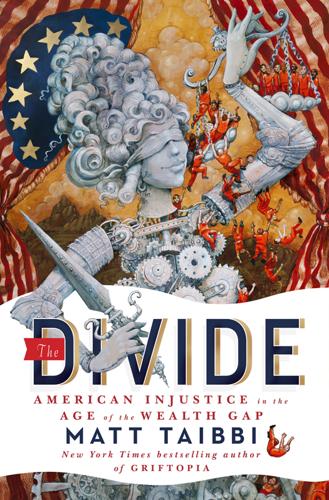
The Divide: American Injustice in the Age of the Wealth Gap
by
Matt Taibbi
Published 8 Apr 2014
A more definitive portrait of modern finance would probably be the movie Wall Street, which had a profound effect on the city’s business culture, although probably not the effect its heavy-handed lefty director Oliver Stone expected. While the rest of America understood Michael Douglas’s iconic Gordon Gekko character as a villain, and saw his famed “greed is good” speech as incisive satire, many aspiring Wall Street traders sincerely thought—and still think—that Gekko was the movie’s hero. In the early 1990s, Wall Street saw a massive influx of young Gekko wannabes who thought waiting any amount of time to get fabulously wealthy was for losers, or at the very least for people who had never read Sun Tzu.
…
For a while, it looked as if Cohen himself might get away. In March 2013 the SEC settled insider trading charges with Cohen for $616 million, and Cohen was so depressed by the paltry fine (which was only a fraction of his rumored $8 billion personal fortune) that he immediately went out and bought a $155 million Picasso (Le Rêve) and a $60 million, Gordon Gekko–style beach house in the Hamptons (right next to his existing $18 million house on the same beach). But later in the year, SAC itself was criminally indicted on insider trading charges, and Cohen was also charged civilly by the SEC for failure to supervise in the Martoma case. As of this writing, it appears that at the very least, SAC will be shut down.
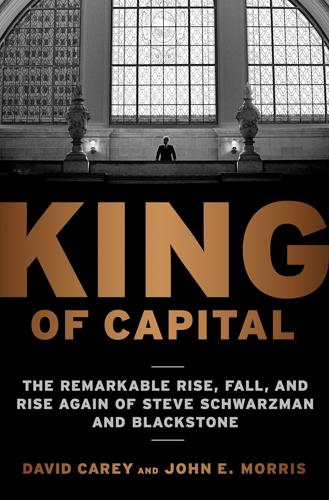
King of Capital: The Remarkable Rise, Fall, and Rise Again of Steve Schwarzman and Blackstone
by
David Carey
Published 7 Feb 2012
.… Financiers who celebrate fast fortunes made while workers face stagnant pay and declining job security risk becoming targets for a growing dissent.” When, on the eve of Blackstone’s IPO four months after the party, new tax proposals were announced, they were immediately dubbed the Blackstone Tax and the Journal blamed Schwarzman, saying his “garish 60th birthday party this year played into the hands of populists looking for a real-life Gordon Gekko to skewer.” Schwarzman’s exuberance had put the industry, and himself, on trial. It was easy to see the sources of the fears. Private equity embodies the capitalist ethos in its purest form, obsessed with making companies more valuable, whether that means growing, shrinking, folding one business and launching another, merging, or moving.
…
Hill had also been an architect of some of the most iconic friendly mergers of the age: Bendix Corp.’s $1.8 billion merger with Allied Corp. in 1983, American Stores’ $2.5 billion takeover of Lucky Stores in 1988, and Time Incorporated’s $14 billion merger with Warner Communications in 1989. He dressed the part to perfection, from his back-combed coif to his impeccably tailored Paul Stuart suits and tasseled loafers. Rumor had it that Gordon Gekko in the movie Wall Street was styled after Tom Hill. In 1993 Hill was ousted as Lehman’s co-CEO, and Blackstone soon tapped him to cohead M&A and assume Roger Altman’s mantle as a brand-name rainmaker. From the moment Altman left, Schwarzman and Peterson had searched doggedly for a worthy replacement, Schwarzman remarked when Blackstone hired Hill.
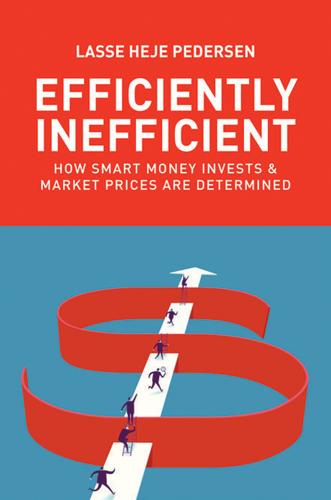
Efficiently Inefficient: How Smart Money Invests and Market Prices Are Determined
by
Lasse Heje Pedersen
Published 12 Apr 2015
More generally, such opportunistic traders try to put on a position before something is broadly known and unwind the position when the information gets incorporated into the price based on the motto: Buy on rumors, sell on news. If you know a rumor to be true, then you could be engaging in illegal insider trading (as Gordon Gekko, played by Michael Douglas, in the movie Wall Street). Whereas equity long–short managers often have more long positions than short, the reverse is true for dedicated short-bias managers. They use similar techniques as equity long–short managers, but they focus on finding companies to sell short.
…
Indeed, many serious discretionary traders often analyze the historical performance of a trading idea before implementing it in large size. For example, in my interview with Lee Ainslie, he told me how his Maverick Capital has built a quantitative system that informs their fundamental process and helps manage the risk. Macro Strategies If Gordon Gekko was an equity trader in the movie Wall Street, the Duke brothers and Eddie Murphy were macro traders in the movie Trading Places, using futures markets to bet on the direction of orange juice prices. I divide macro strategies into global macro and managed futures. Global macro traders bet on economy-wide phenomena around the world.
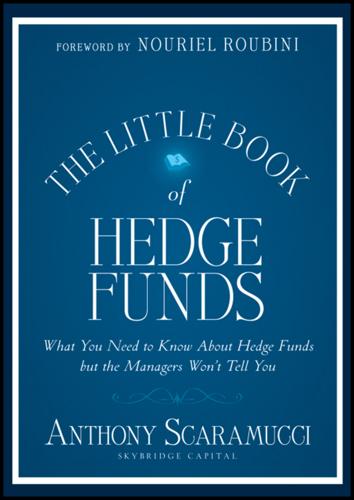
The Little Book of Hedge Funds
by
Anthony Scaramucci
Published 30 Apr 2012
Susan Krakower, Mark Hoffman, Nik Deogun, Melissa Lee, Scott Wapner, Mary Duffy, John Melloy, Patty Martell, Lydia Thew, Gary Kaminsky, Maria Bartiromo, David Faber, Guy Adami, Joe Terranova, Tim Seymour, Amanda Drury, Carl Quintanilla, Jim Cramer, Brian Steel, Brian Sullivan, Maneet Ahuja, Pete and Jon Najarian, Steve Grasso, Steve Cortes, Karen Finerman, Brian Sullivan, Samantha Wright, and a legion of others who always make my time on the network a great learning experience. I also want to acknowledge my brother David; my sister Susan; my mom and dad, Al and Marie Scaramucci; the mother of my children, Lisa; and if you read my first book Goodbye Gordon Gekko, my first business mentor Uncle Salvatore Defeo, Sonny, Bobby, and Augie Defeo. If I have left anyone out, I offer an apology. The oversight, while unintentional, is more of a function of a publishing deadline and a warning by my publisher not to make this too long.
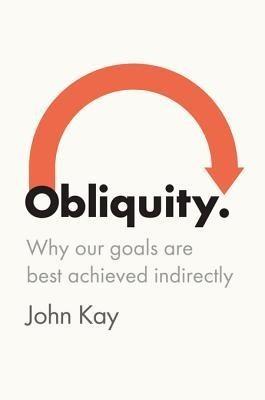
Obliquity: Why Our Goals Are Best Achieved Indirectly
by
John Kay
Published 30 Apr 2010
The corporation went bankrupt. Dunlap was spared possible civil and criminal suits only after he agreed to pay penalties and restitution of fifteen million dollars.10 The history of the last two decades is littered with fallen idols who, like Dunlap, stridently asserted the primacy of wealth. Gordon Gekko, the antihero of Oliver Stone’s 1987 film Wall Street, famously proclaimed: “Greed is good.” Gekko was partly based on Ivan Boesky, a notorious corporate raider of the 1980s, who was reported as telling a class at Columbia: “I want you to know that I think greed is healthy. You can be greedy and still feel good about yourself.”11 Soon after, Boesky went to prison, convicted of insider trading.
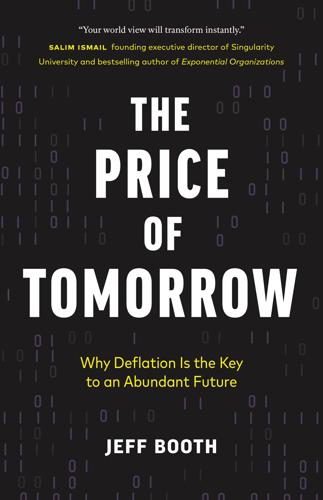
The Price of Tomorrow: Why Deflation Is the Key to an Abundant Future
by
Jeff Booth
Published 14 Jan 2020
Tit for tat—Cooperate in the beginning and then copy what the opponent did in their last move. Spiteful—Cooperate until an opponent betrays and then always betray. Mistrust—Betray first, then copy opponent’s moves. In each of these strategies, you can see some very human responses or personas. They’re celebrated or vilified in our popular culture as well. On one side, we’ve got Gordon Gekko, the archetypical corporate raider in the 1987 film Wall Street, who famously said, “The point is, ladies and gentlemen, that greed, for lack of a better word, is good. Greed is right, Greed works. Greed clarifies, cuts through and captures the evolutionary spirit.” On the other side, we’ve got George Bailey, from the 1946 movie It’s a Wonderful Life, who epitomizes selflessness throughout the movie and is rewarded through positive relationships and a life lived well.

Evil Geniuses: The Unmaking of America: A Recent History
by
Kurt Andersen
Published 14 Sep 2020
The main plot points of Oliver Stone’s Wall Street were spot on: a superstar financial speculator engages in illegal inside trading, a predatory takeover strips a profitable company of its assets, and unionized workers are bamboozled into going along with a deal that will leave them without their good jobs and pensions. The corporate raider Gordon Gekko, played by Michael Douglas, does get his comeuppance in the end because his stockbroker, the Charlie Sheen character who provided him with the tradable inside information about his mechanic father’s airline company, flips on him. But Gekko is the star of the show, the exciting sexy late-model 1980s antihero.
…
The changes were all of a piece and synergistic. Wall Street’s new hegemony was first enabled by Milton Friedman’s mainstreamed libertarianism and then reinforced it in turn—ditto with financialization and deregulation, the Law and Economics movement, the atrophying of antitrust, the lionization of guys like Jack Welch and Gordon Gekko, the digital revolution, increasingly short-term thinking, only the rich getting richer, and the explosion of corporate lobbying in Washington.*1 The Harvard Business School political scientist Gautam Mukunda has a lucid explaination for how extreme financialization happened. “Real power,” he wrote recently in the Harvard Business Review, comes not from forcing people to do what you want but from changing the way people think, so that they want to do what you want….The ability of a powerful group to reward those who agree with it and punish those who don’t distorts the marketplace of ideas….The result can be an entire society twisted to serve the interests of its most powerful group, further increasing that group’s power in a vicious cycle….In the United States…it’s…the financial sector—particularly Wall Street—that has disproportionate power….The financial system is the economy’s circulatory system.
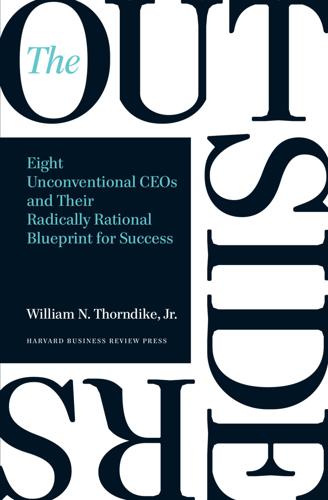
The Outsiders: Eight Unconventional CEOs and Their Radically Rational Blueprint for Success
by
William Thorndike
Published 14 Sep 2012
Buffett ran a small investment partnership out of a nondescript office building in Omaha and had no prior management experience. He was very different from the notorious LBO barons of the 1980s, however. First of all, he was not very hostile, having established a close relationship with the Chace family before making his move. Second, he didn’t use any debt—this was a long way from Gordon Gekko or Henry Kravis. Buffett had been attracted to Berkshire by its cheap price relative to book value. At the time, the company had only a weak market position in a brutally competitive commodity business (suit linings) and a mere $18 million in market capitalization. From this undistinguished start, unprecedented results followed; and measured by long-term stock performance, the formerly crew-cut Nebraskan is simply on another planet from all other CEOs.
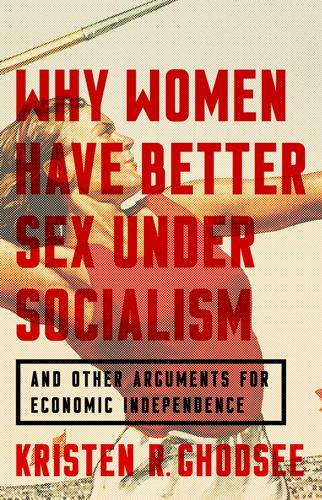
Why Women Have Better Sex Under Socialism: And Other Arguments for Economic Independence
by
Kristen R. Ghodsee
Published 20 Nov 2018
Back then, I was already a feminist with concerns about economic inequality, while Jake, true to the spirit of the 1980s, believed that whoever dies with the most toys wins. We spent hours debating the pros and cons of capitalism, and the ways that Thatcherism and Reaganomics sucked or didn’t suck. Jake embraced the Gordon Gekko zeitgeist of the age: “Greed is good.” I wasn’t buying it. But back in those days when domestic politics weren’t so polarized, we managed to maintain our friendship throughout our college years. In the 1990s, while I was off teaching English and reading Karl Polanyi in Japan, Jake was hustling his way up the corporate ladder at a tech start-up.
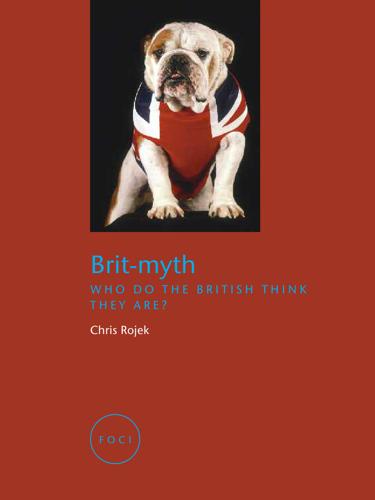
Brit-Myth: Who Do the British Think They Are?
by
Chris Rojek
Published 15 Feb 2008
Of course, the villainous traits that Hollywood associates with the British are not exclusively typical of the nation. Other non-British characters in the afi’s Top 50, such as Nurse Ratched (Louise Fletcher in One Flew Over 133 CELLULOID HEROES AND VILLAINS The Cuckoo’s Nest, 1975), Mr Potter (Lionel Barrymore in It’s A Wonderful Life, 1946), Gordon Gekko (Michael Douglas in Wall Street, 1987) and Kaiser Soza (Kevin Spacey in The Usual Suspects, 1995), have comparable characteristics. Indeed, it would be absurd to maintain that Hollywood regards the British as holding all the cards in the portrayal of villainy. All the same, it is striking that Hollywood repeatedly identifies the British, with their fancy accents, emotional reserve and public school demeanour as ‘naturals’ to play the part of the baddie.
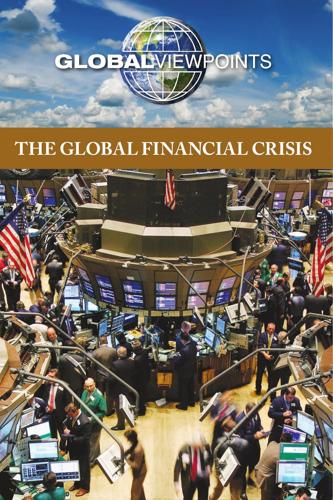
Global Financial Crisis
by
Noah Berlatsky
Published 19 Feb 2010
He argues that while regulations would help, a moral transformation and a renunciation of greed is what is really needed. As you read, consider the following questions: 1. According to Oskari Juurikkala, what are derivatives? 2. What act does Juurikkala explain was passed after Enron to create a new layer of regulations? 3. According to Juurikkala, what really destroyed Enron? “G reed is good,” insisted Gordon Gekko in the 1987 film Wall Street. Most of us disagree. Recent events in the mortgage lending industry prove us right. The “subprime loan crisis” has been making headlines since it began in August [2007]. It refers to the fact that a relatively high percentage of mortgages offered to people with significant probability of default have gone sour.
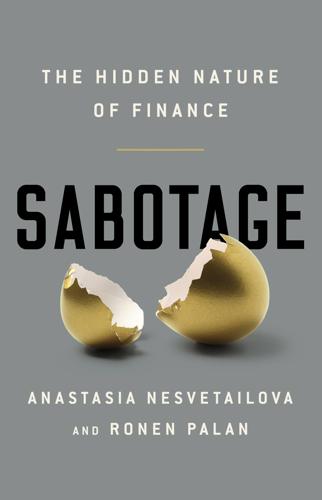
Sabotage: The Financial System's Nasty Business
by
Anastasia Nesvetailova
and
Ronen Palan
Published 28 Jan 2020
In the deal the acquiring company would use the target companies’ funds to repay the debt it incurred to fund the takeover in the first place – ideally to Milken’s bank. Junk bonds became the weapon of choice of hostile raiders churning up and destroying companies in the process. A junk-financed buyout of a company would bring on job losses and restructuring.6 Gordon Gekko, the charismatic and ruthless character played by Michael Douglas in the movie Wall Street, is ‘part Milken’, according to one of the film’s producers. Drexel’s ability to swiftly raise vast sums for LBOs was lucrative. By 1986 Drexel was Wall Street’s most profitable firm and Milken its highest-paid executive: in 1986 the bank paid Milken nearly $295m ($665m in today’s money), the next year he was paid $550m (or more than $1.2bn today).7 But Drexel was feared and even loathed on Wall Street.
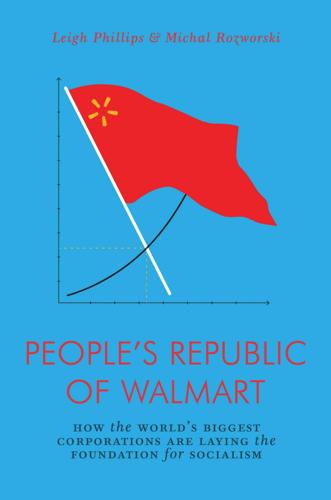
The People's Republic of Walmart: How the World's Biggest Corporations Are Laying the Foundation for Socialism
by
Leigh Phillips
and
Michal Rozworski
Published 5 Mar 2019
But the consensus among the business press and dozens of very bitter former executives is that the overriding cause of Sears’s malaise is the disastrous decision by the company’s chairman and CEO, Edward Lampert, to disaggregate the company’s different divisions into competing units: to create an internal market. From a capitalist perspective, the move appears to make sense. As business leaders never tire of telling us, the free market is the fount of all wealth in modern society. Competition between private companies is the primary driver of innovation, productivity and growth. Greed is good, per Gordon Gekko’s oft-quoted imperative from Wall Street. So one can be excused for wondering why it is, if the market is indeed as powerfully efficient and productive as they say, that all companies did not long ago adopt the market as an internal model. Lampert, libertarian and fan of the laissez-faire egotism of Russian American novelist Ayn Rand, had made his way from working in warehouses as a teenager, via a spell with Goldman Sachs, to managing a $15 billion hedge fund by the age of 41.
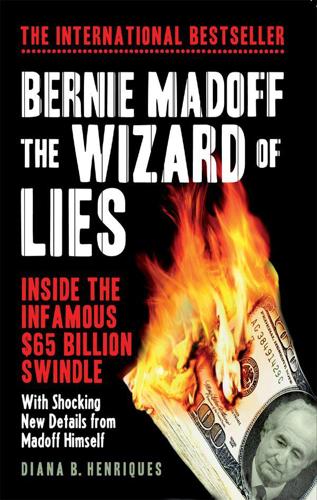
Bernie Madoff, the Wizard of Lies: Inside the Infamous $65 Billion Swindle
by
Diana B. Henriques
Published 1 Aug 2011
With Madoff’s steady rates of return, Picower’s account balances ultimately ran up into the billions of dollars. As early as 1986 he was wealthy enough to invest $28 million in an arbitrage fund run by Ivan Boesky, the notorious trader who boosted his fund’s profits illegally by buying tips from Wall Street insiders and who was the model for the Gordon Gekko character in Oliver Stone’s 1987 film Wall Street. By the late 1990s, Picower’s trading account at Goldman Sachs—almost certainly just one of his many Wall Street brokerage accounts—was reportedly worth $10 billion. At one point, he arranged a $5 billion margin loan in that account, which indicates he was so rich that Goldman knew that he could easily cover the loan if the market turned against him.
…
Lynch, Charles Colfer, and Tomas Kukla, “Flash: Rogerscasey’s Buy-Rated Hedge Fund Managers Have No Exposure to Madoff Investment Securities LLC,” Rogerscasey Inc. internal publication, December 2008. 132 Rogerscasey’s rating for the Madoff-related Tremont funds was “sell”: The warnings surfaced in the course of lawsuits filed in Colorado by Madoff victims against units of Fiserv that provided IRA custodial services to more than eight hundred retirement savings accounts invested with Madoff. 132 “The Madoff exposure is a potential disaster”: Lynch, Colfer, and Kukla, “Flash,” p. 2. 133 he invested about $620 million: Diana B. Henriques, “Deal Recovers $7.2 Billion for Madoff Fraud Victims,” New York Times, Dec. 17, 2010. 133 the model for the Gordon Gekko character in Oliver Stone’s 1987 film Wall Street: James B. Stewart, Den of Thieves (New York: Simon & Schuster, 1991), pp. 202–3. Stewart noted that a Boesky aide, Reid Nagle, “had no idea where Picower’s money came from; he occupied an unmarked office suite in an anonymous Manhattan tower.” 133 Picower’s trading account at Goldman Sachs: Henriques, “Deal Recovers $7.2 Billion,” and reporting notes made available to the author by her colleague Peter Lattman. 133 Available records show that Picower and his wife withdrew $390 million: Jake Bernstein, “Madoff Client Jeffry Picower Netted $5 Billion—Likely More Than Madoff Himself,” ProPublica.org, June 23, 2009 (subsequently updated), and the accompanying graphic, Dan Nguyen and Jake Bernstein, “Chart: The Picower-Madoff Transfers, from 1995–2008.” 135 a posthumous memoir called Leukemia for Chickens: Roger Madoff, Leukemia for Chickens: One Wimp’s Tale About Living Through Cancer (New York: privately published, 2007). 135 One hospital staff member would poignantly recall Peter gently rubbing ointment: Ibid., pp. 273–74.
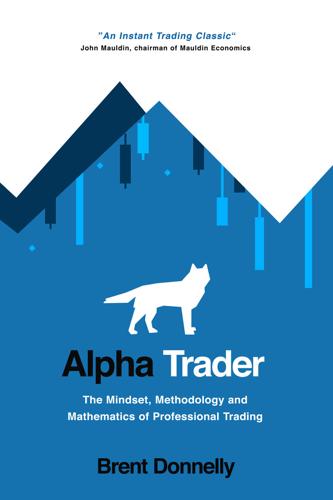
Alpha Trader
by
Brent Donnelly
Published 11 May 2021
Self-awareness Part of the intent of this book is to make you more self-aware and more honest about your strengths and weaknesses as a trader. There is no shame in having low scores on some dimensions. Nobody possesses all positive characteristics in abundance. Better to admit that you are risk averse and trade accordingly than pretend your name is Gordon Gekko or Dollar Bill. The number one way to build and cultivate self-awareness is to maintain a trading journal. This is such a cliché of trading advice. That’s because it’s true. You can journal individual trades or individual days or just sporadic thoughts. Keep a document or spreadsheet open in the background and note what you are doing.
…
A full-sized basketball hoop with fiberglass backboard, right on your driveway? I want that! That goal (getting out of suburban Ottawa and into something exciting and new) had a huge influence on my perception of money as a giver of freedom and novelty, and kept the fire in my belly through late high school and university. My high school years were the days of Gordon Gekko and Wall Street (the movie) and after I read Liar’s Poker cover to cover at age 15, I knew what I wanted to do. My one and only goal was to become a trader on Wall Street136. I had a crystal-clear and laser-focused motivation: money. That singular focus was good. However, as I matured and built a decent life for myself and my family, money became less important.
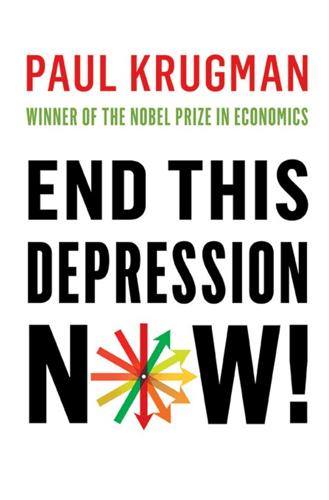
End This Depression Now!
by
Paul Krugman
Published 30 Apr 2012
In the 2000s bankers did it again, amassing vast fortunes by making bad real estate loans and either selling them to unwitting investors or receiving a government bailout when crisis struck. But it’s also true of a lot of private equity, the business of buying companies, restructuring them, then selling them off again. (Gordon Gekko, in the movie Wall Street, was a private-equity player; Mitt Romney was one in real life.) To be fair, some private-equity firms have done valuable work by financing start-ups, in high-tech and elsewhere. In many other cases, however, profits have come from what Larry Summers—yes, that Larry Summers—called, in an influential paper of the same name, “breach of trust”: basically, breaking contracts and agreements.
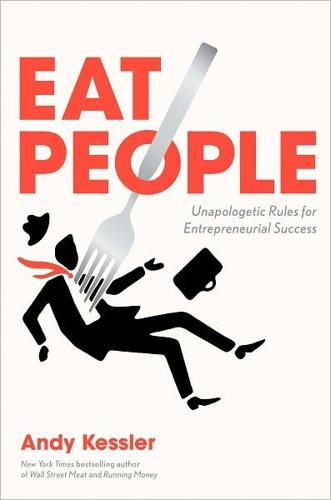
Eat People: And Other Unapologetic Rules for Game-Changing Entrepreneurs
by
Andy Kessler
Published 1 Feb 2011
The stock market allocates precious capital to companies it thinks can maximize profits and starves those that can’t. In other words, the stock market is democracy’s half-evil henchman, whose tool is the size of the carrot, not the use of the stick. The tenets of capitalism’s great economists, from Adam Smith’s Invisible Hand to Joseph Schumpeter’s Creative Destruction and Gordon Gekko’s Greed Is Good, are all powerful concepts, but it’s profits and the stock market that carry out the dirty work. No Five-Year Plans. All men are created equal, but a few of you need to be canned and retrained so progress can happen again. New industries get funded and start hiring again. But which ones?
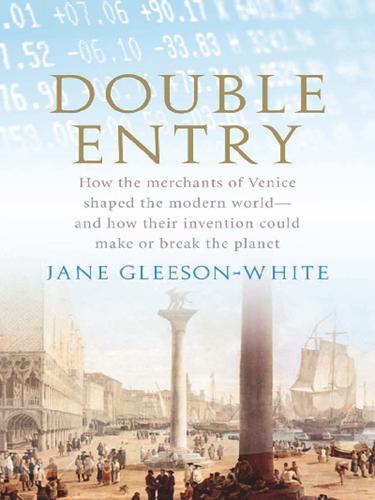
Double Entry: How the Merchants of Venice Shaped the Modern World - and How Their Invention Could Make or Break the Planet
by
Jane Gleeson-White
Published 14 May 2011
However, not only has no such fall ensued but it turns out that these accounting scandals are a regular feature in the landscape of accounting. They are as old as the profession itself, dating back to the earliest days of the formalised use of collective capital: the corporation. Corporations and accounting scandals go together like Gordon Gekko and greed. The nineteenth and early twentieth centuries are rife with corporate collapses of the magnitude of Enron’s and comparable in their elements. And they all stem from significant accounting misstatements orchestrated by influential senior managers. Equally, the responses of lawmakers and watchdogs have been the same over the past one hundred years: tinker around the edges of the law, found new watchdogs, proclaim a new era of greater scrutiny and let accountants and auditors out to play with the managers of vast sums of other people’s money.
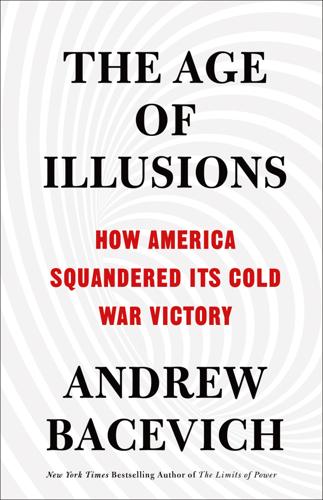
The Age of Illusions: How America Squandered Its Cold War Victory
by
Andrew J. Bacevich
Published 7 Jan 2020
Inverting the title of William Wyler’s Oscar-winning film of 1946, the journalist Barbara Ehrenreich surveyed the period and called it The Worst Years of Our Lives.5 If Wyler’s Best Years had seemed to capture the essence of the immediate postwar period, its 1980s counterpart was Oliver Stone’s Wall Street, released in 1987. Stone’s film centered on a cutthroat business executive, Gordon Gekko, who operated on the principle that “greed is good.” In comparison with Trump’s real-life brashness and extravagance, the celluloid Gekko looked like a piker. Like Gekko, however, Trump embodied values that seemed, at least for a moment, to express something essential about the United States. In October 1989, People magazine took a stab at explaining Trump’s standing in contemporary culture while hinting at its potential political implications.
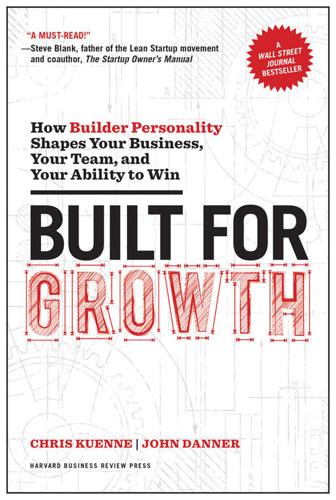
Built for Growth: How Builder Personality Shapes Your Business, Your Team, and Your Ability to Win
by
Chris Kuenne
and
John Danner
Published 5 Jun 2017
Commissioning the Crusader: Finding Your Queen Isabella If you are a Crusader, your ideal financial sponsor is someone whose horizon matches your own vision, with the temperament and patient capital to boot. You need investors whose role is more like the one Queen Isabella played for Christopher Columbus than the rapacious one Gordon Gekko displayed with his portfolio companies in the movie Wall Street. In other words, you want a sponsor more interested in long-term development than in short-term profit. To some extent, there is always tension between an early-stage venture capitalist’s desire for a timely exit and a founder’s quest to build a long-term, successful enterprise that grows well after the early supporters have cashed out.
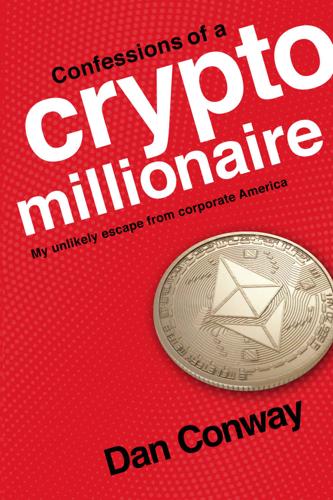
Confessions of a Crypto Millionaire: My Unlikely Escape From Corporate America
by
Dan Conway
Published 8 Sep 2019
Our total investment was more than $300,000. In crypto, everyone talks about whales, the ones with the massive number of coins. They are a mythical force, making loads of money by knowing what’s going to happen next. They move their huge stacks for maximum advantage while everyone else is in the dark. I always pictured them as Gordon Gekko or Mr. Robot. A mix of tech billionaires and cold-blooded traders, with maybe a few Russian oligarchs thrown in. I don’t think anyone thought it was a guy like me, sitting in his upstairs bedroom, buying more ETH than most people thought was prudent, then going downstairs and trying like hell to change the water filter in the refrigerator.
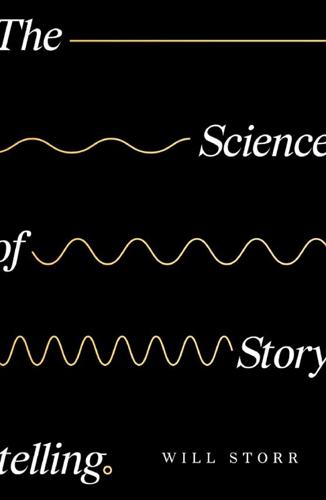
The Science of Storytelling: Why Stories Make Us Human, and How to Tell Them Better
by
Will Storr
Published 3 Apr 2019
THE ARGUMENT Increasingly, writers come to the course who are angry about something that’s happening in the world. They want to write a story that highlights some perceived societal problem. Say you’re angry about the US healthcare system, so you decide to write a kind of healthcare version of Oliver Stone’s Wall Street. It centres on a Gordon Gekko type who ramps up the price of an essential medication. Fine. The risk is that, if you don’t do the necessary character work, ‘a healthcare version of Oliver Stone’s Wall Street’ is exactly what you’re going to end up with. No matter where your inspiration came from or what kind of story you want to write, I believe no harm can ever come from rewinding to character.
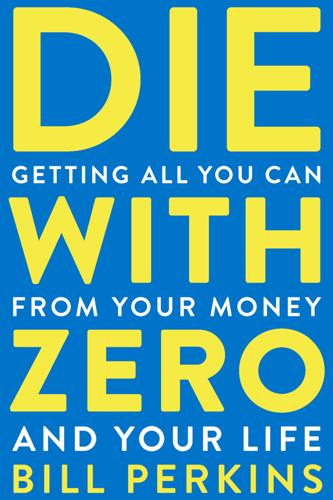
Die With Zero: Getting All You Can From Your Money and Your Life
by
Bill Perkins
Published 27 Jul 2020
The rigid schedule—and with only a couple of weeks of vacation each year—would get in the way of all the other things I wanted to do. To be sure, I was young and had delusions of grandeur. But I was certain there was something much better out there for me. The movie Wall Street had come out when I was in college. Today most people kind of laugh at that movie: We deride the slick-haired Michael Douglas character, Gordon Gekko, who told us that “greed, for want of a better word, is good.” We all know where that kind of unbridled capitalism got our country. But at the time, the rich and freewheeling lifestyle that the movie portrayed really appealed to me. I sensed that the financial industry would give me the kind of freedom I wanted.
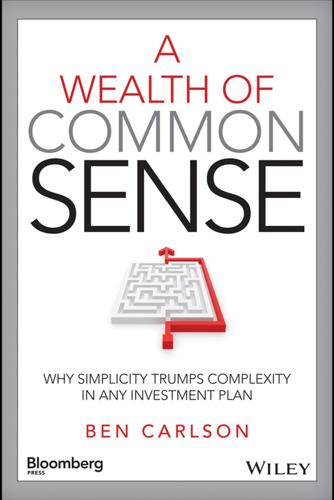
A Wealth of Common Sense: Why Simplicity Trumps Complexity in Any Investment Plan
by
Ben Carlson
Published 14 May 2015
Instead they were fighting the last war and investing through the rearview mirror instead of sticking to their investment policy guidelines. Risk management was secondary to chasing returns.9 Why does this type of behavior exist, from professionals down to the individual? In the classic movie Wall Street, Michael Douglas's character Gordon Gekko famously said, “Greed, for a lack of a better word, is good.”10 And while greed is said to be a driving factor in most financial decisions, envy can actually dissuade us from reaching our goals as well. In one study, Harvard researchers asked subjects if they would rather live in a place where they had income of $50,000, but the average person had an income of $25,000 or one where they have an income of $100,000 in a place where the average income was $200,000—assuming prices were constant in both examples.

On the Slow Train Again
by
Michael Williams
Published 7 Apr 2011
In the hubristically misnamed Bank Street just by Heron Quays station is the one-time headquarters of Lehman Brothers, the biggest casualty of the 2007 banking crash, whose contents were auctioned off for souvenirs in 2010. Anyone for an entrance hall name sign at £30,000? Were the masters of the universe humbled? Not a bit of it. There are few places in the world where it is possible to rub shoulders with so many Gordon Gekko lookalikes, since access to Canary Wharf is notoriously slow by road and no amount of money can buy a speedier journey to the City than the DLR can offer. Bankers in a hurry also throng Norman Foster’s Jubilee Line station, whose entrance can be seen below the viaduct to the left. Margaret Thatcher was notoriously phobic about trains, but she personally ensured the bankrolling of the Jubilee Line extension to Canary Wharf, of which Foster’s station is the greatest monument.
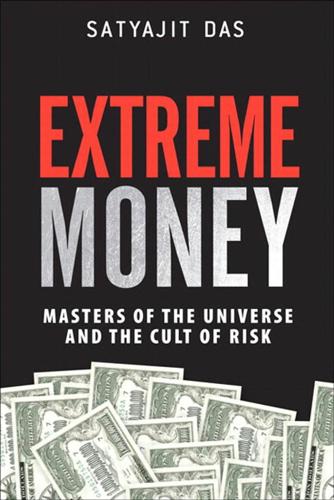
Extreme Money: Masters of the Universe and the Cult of Risk
by
Satyajit Das
Published 14 Oct 2011
Drexel found itself tangled in a web of allegations and investigations into insider trading. In 1986, Dennis Levine, a Drexel investment banker, was charged with insider trading. Drexel traders joked: “Anybody who had to do 54 trades to make $12 million couldn’t be any good.”44 Levine implicated Ivan Boesky, the model for Gordon Gekko in the 1987 movie Wall Street. In 1986, Boesky had declared: “Greed is all right...greed is healthy. You can be greedy and still feel good about yourself.”45 Boesky saved himself by cooperating with the Securities and Exchange Commission (SEC) and informing on Milken. The SEC and Rudy Giuliani, the U.S. attorney for the Southern District of New York, launched wide-ranging investigations into Drexel’s operations.
…
Rupert Murdoch’s third wife, Wendy Deng, told a woman’s magazine that her husband, worth more than $8 billion, wore $9 shirts bought at U.S. discount store Wal-Mart. But Buffett and Murdoch also owned top-of-the-line business jets to ease the rigors of frequent business travel. The Physical Impossibility of Spending the Amount Earned by Someone Living Life imitated fiction as wealthy bankers mirrored Wall Street’s fictitious, art collecting villain—Gordon Gekko. Art was an alibi for networking, providing natural opportunities to meet members of the financial elite and identify deals. Hedge fund manager Steve Cohen was typical of new buyers who increasingly drove the market for high-end art. His $700 million art collection included Damien Hirst’s The Physical Impossibility of Death in the Mind of Someone Living.
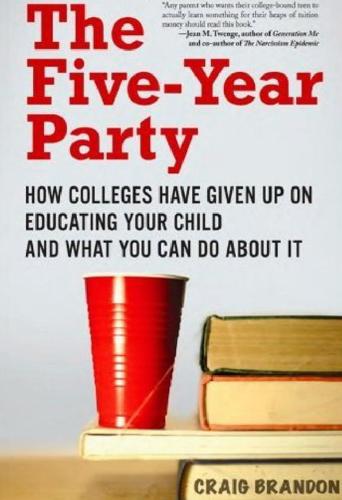
The Five-Year Party: How Colleges Have Given Up on Educating Your Child and What You Can Do About It
by
Craig Brandon
Published 17 Aug 2010
This tended to break down along age lines, with the older professors defending academic standards and the younger ones advocating dumbing down the college. It was at this crucial point that a new kind of administrator began taking over the reins of power at American colleges. These new administrators had more in common with Gordon Gekko than they did with Aristotle. They were armed with degrees in business administration rather than in education and had backgrounds or at least training in subjects like marketing, public relations, and management. These new administrators saw that the real problem with colleges was that they were not being run like what they really were—businesses.
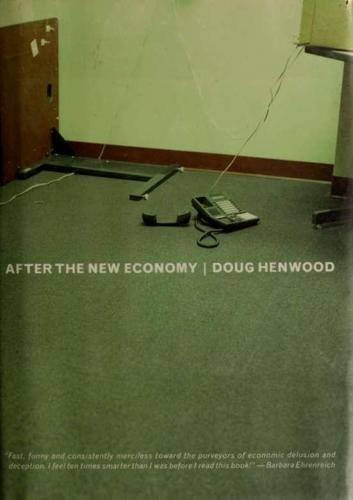
After the New Economy: The Binge . . . And the Hangover That Won't Go Away
by
Doug Henwood
Published 9 May 2005
Underperforming companies—those generating insufficient profits to satisfy shareholders—^were taken over, either by allegedly more competent rivals or by corporate raiders (or, as Alan Greenspan dubbed them at the time, "unaffiliated corporate restructurers"), or they were taken private by a management team in partnership with outside investors using lots of borrowed money. Regardless of the financial maneuver, the operational strategy was similar: shut or sell weak divisions, lay off workers, cut wages, break unions (where they existed), speed up the Hne, get the profit rate up. The moral philosophy of this period was nicely summed up by Oliver Stone's Gordon Gekko, channeUng the most famous inside trader of all time, Ivan Boesky: "Greed is good." Unfortunately, these maneuvers usually involved lots of debt, and the debt load proved crippHng by decade's end. So there was a shift of strategy toward shareholder activism. Led by large pension funds, particularly the CaHfornia PubHc Employees Retirement System (Calpers), institutional investors drew up hit lists of saggy companies, and pressed management to shape up or ship out.
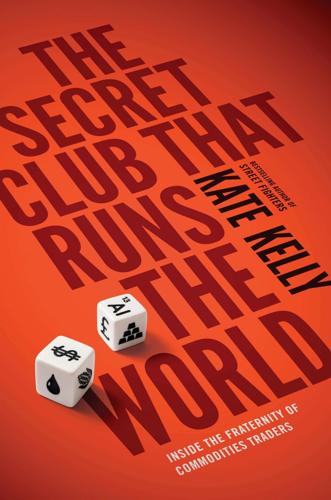
The Secret Club That Runs the World: Inside the Fraternity of Commodity Traders
by
Kate Kelly
Published 2 Jun 2014
The indoctrination was worse for Ruggles, though: his father was a professor of finance in Ohio and had actually researched the system as part of his living. In 1987, his father took him to see the movie Wall Street, the portrait of corporate greed starring Charlie Sheen as an ambitious young stock trader and Michael Douglas as Gordon Gekko, his sleazy, amoral business mentor. “We left the movie and we had very, very different views,” Ruggles remembers. “I had a hard time understanding that Gekko was the bad guy. I’m thinking, ‘This is what I want to do when I grow up.’” After graduating from what he joked was “the 200th best high school in Ohio” in the depressed steel town of Youngstown, Ruggles attended the University of Michigan, where he remembers maintaining a 4.0 for a while.
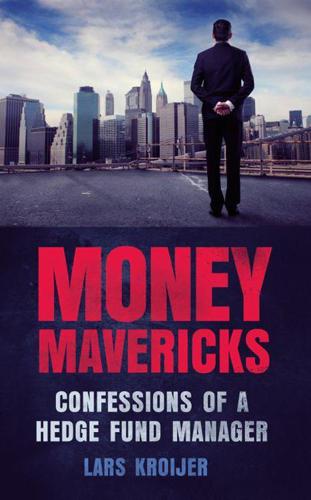
Money Mavericks: Confessions of a Hedge Fund Manager
by
Lars Kroijer
Published 26 Jul 2010
He was one of those people we minions knew to fear. He had since left Lazard and set up his own wealth-management firm next door. Entering Mr Totti’s lavish office, I thought I was in the movie Wall Street. Although I had heard of him terrorising associates, I had not imagined the mirror image of Gordon Gekko. At Lazard, he did not even deal with us analysts, who were one step too low for consideration, but left it to the associates, and I had therefore never met him. I felt as if he ought to launch into a tirade of abuse, calling me a useless piece of shit and how his two-year-old grandchild could do better financial models than me.
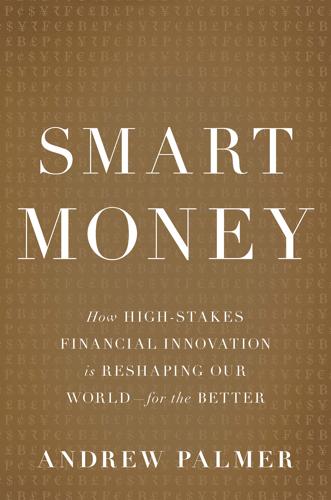
Smart Money: How High-Stakes Financial Innovation Is Reshaping Our WorldÑFor the Better
by
Andrew Palmer
Published 13 Apr 2015
Many critics of banks look wistfully back to a golden age of finance, when the bank manager was the gateway to credit, when judgment prevailed over equation-filled models. This was a world of conservatism and integrity, where taxpayers slept easy in their beds and bankers were more Jimmy Stewart than Gordon Gekko. Since then, modern finance has evolved toward replacing decentralized judgment by mechanical process and substituting relationship lending with arms-length transactions. You can apply for loans online in minutes without speaking to anyone. Thanks to securitization, your mortgage may no longer be owned by the bank you got it from.
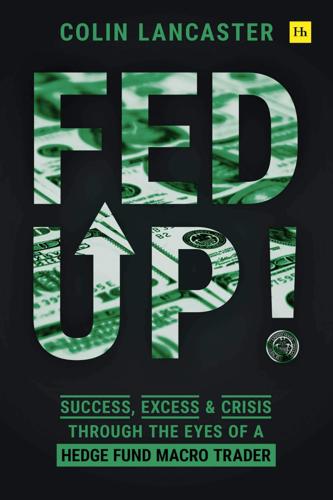
Fed Up!: Success, Excess and Crisis Through the Eyes of a Hedge Fund Macro Trader
by
Colin Lancaster
Published 3 May 2021
At the time, it looked innocent enough. Greenspan gave us low interest rates. They dubbed it “lower for longer.” But this was really just lighter fluid on a fire. It told people to get greedy. I’m not talking about everyday risk taking and speculation, normal human greed. I’m not even talking about Gordon Gekko in the ‘80s. This is much more than “greed is good.” I’m talking about steal as much as you can, and if you’re wrong, we’ll bail you out. I’m talking about too big to fail and moral hazard. I’m talking about Rihanna playing to a bunch of hustlers at a mortgage convention boondoggle. “Does that mean that Greenspan caused it?”
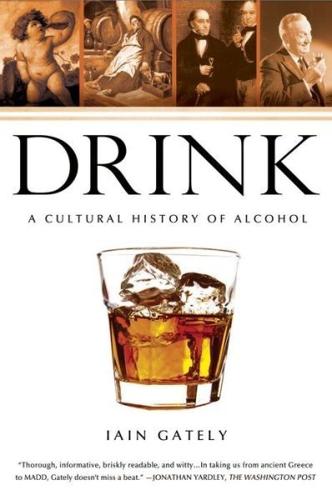
Drink: A Cultural History of Alcohol
by
Iain Gately
Published 30 Jun 2008
The three-martini business lunch was consigned to history, as were many corporate cocktail cabinets. The new ethos was apparent in the 1985 movie Wall Street, a Faustian tale about Bud, a young stockbroker eager to share in the immense fortunes being made in the markets at that time. Bud solicits the attention of Gordon Gekko, a corporate raider, who epitomizes the new model capitalist. “Lunch is for wimps,” he declares at their first encounter, and Bud pointedly calls for Evian when he meets Gekko in a restaurant at night. The old order is represented by Bud’s father, a union leader at Bluestar Airlines, who does his business with the men he represents over a few beers in the local bar.
…
The old order is represented by Bud’s father, a union leader at Bluestar Airlines, who does his business with the men he represents over a few beers in the local bar. Gekko aims to take over Bluestar in order to break it into pieces and rob its pension fund, and Bud is forced to choose between old-fashioned beer-drinking, metal-bashing America and the greed-is-good philosophy of Gordon Gekko. After a bottle of whiskey he decides to do the right thing—intoxication leads to an epiphany that restores his moral perspective. There were genuine monetary benefits to be gained from alcohol-free workplaces. Companies that introduced such policies found their workers had fewer accidents, thus reducing insurance premiums and compensation payments, and that they had to sack fewer workers for drunkenness, enabling savings in termination costs and the expenses of recruiting replacements.
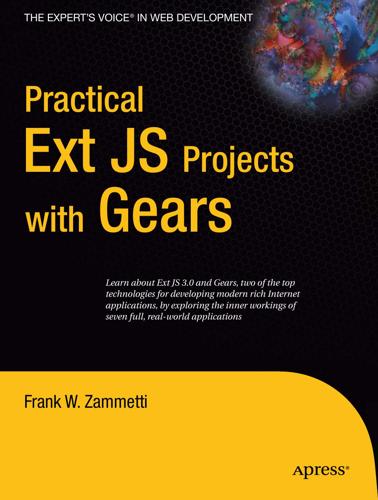
Practical Ext JS Projects With Gears
by
Frank Zammetti
Published 7 Jul 2009
In the next chapter, the final chapter of this book, we’ve put together an application for tracking our finances that will allow us to see a few new capabilities that we haven’t seen before, including the charting capabilities Ext JS provides. Stick around—the final adventure is about to begin! 495 CHAP TER 9 Managing Your Finances: Finance Master t o quote the immortal words of Gordon Gekko:1 “Greed, for lack of a better word, is good.” Greed probably most frequently comes in the form of money, so therefore money is good. A big part of making money is simply being able to track your assets and liabilities and understand where your money is and how it’s working for you in terms of return on investments.
…
There are some top-notch financial tracking/planning software products out there. Quicken is probably the most well-known name. That product is developed by a team of dedicated engineers and has been developed over a very long period of time to be the polished, powerful solution it is today. At the end of the day, however, it all comes down to the relatively simple 1 Gordon Gekko is the main antagonist in the classic movie Wall Street. Gordon, a corporate raider played by Michael Douglas, embodies all that was wrong with those involved in the stock market in the 80s (and now too it seems!). 497 498 Ch apt er 9 n Ma Na G ING YOU r FINa NC eS : F I N a N C e M a S t e r concept of a diary2 for your money!
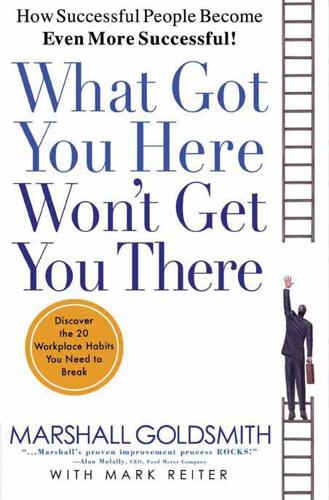
What Got You Here Won't Get You There: How Successful People Become Even More Successful
by
Marshall Goldsmith
and
Mark Reiter
Published 9 Jan 2007
As I say, I don’t want to twist every comment we hear and make into knots. But self-deprecation, pseudo or otherwise, can be one of those honest feedback moments that makes a signal sound in our brain. “Pay attention,” it tells us. “This might be something worth observing.” 5. Look homeward. Remember the movie Wall Street and the character Gordon Gekko? Michael Douglas won an Academy Award for Best Actor for his portrayal of this rude, larcenous wheeler-dealer. Well, I worked with a real-life investment banker who could have inspired the Gekko character. The man I coached—let’s call him Mike—wasn’t amoral and unethical like Gekko, but he had some competitive fires burning within his soul that made him treat people like gravel in a driveway.
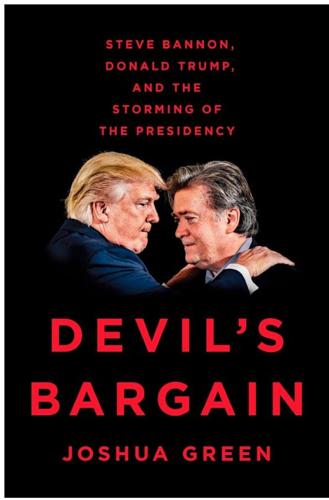
Devil's Bargain: Steve Bannon, Donald Trump, and the Storming of the Presidency
by
Joshua Green
Published 17 Jul 2017
“He says, ‘We’re a very hard-working place. There are no stretch limos outside. We’re very middle class. We work very hard. It’s all about the firm. It’s about partnership. It’s about teamwork. What we’re going to do is have an open bar, and we’d like all of you to come and have a drink with us.’ It sounded perfect to me. It wasn’t Gordon Gekko. I thought to myself, I gotta do this.” The next day, Bannon put on his best suit and headed over to the Goldman recruiting party, hoping to somehow inveigle his way into getting an interview. “I get there, and there’s like seven hundred people jammed into this tent,” he said. “I said, ‘Fuck it.
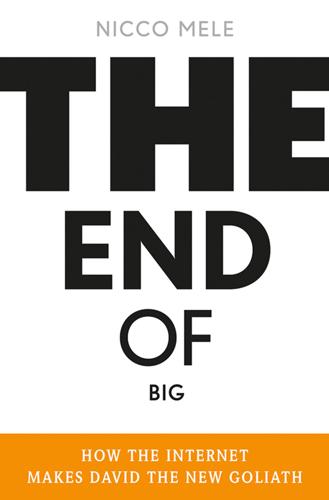
The End of Big: How the Internet Makes David the New Goliath
by
Nicco Mele
Published 14 Apr 2013
The 1967 film Guess Who’s Coming to Dinner offered a compelling view of interracial marriage, which at the time was intensely controversial (the year of the film’s release, interracial marriage was illegal in seventeen U.S. states). Oliver Stone’s 1987 movie Wall Street opened up a public discussion about corporate greed, so much so that the lead character, Gordon Gekko, is frequently mentioned in the context of the current financial crisis. Films and books (like Harper Lee’s To Kill a Mockingbird) and songs (like Creedence Clearwater Revival’s “Fortunate Son”) that offer a meaningful critique of our culture help us progress and push the ball forward. Radical connectivity allows creative criticism of our culture to “go viral,” but such criticism doesn’t have the staying power of a big, blockbuster film or novel that changes the way a generation thinks about a subject or a topic.
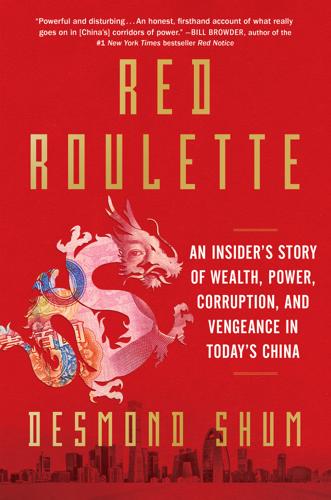
Red Roulette: An Insider's Story of Wealth, Power, Corruption, and Vengeance in Today's China
by
Desmond Shum
Published 6 Sep 2021
At the Goldman interview, I got into an argument about racism and raised my voice. Neither called me back. I settled on a position as a stockbroker with the brokerage firm Citibank Vickers. I thought the job would be the most exciting in the world. All of us in that generation had watched Michael Douglas as Gordon Gekko in the blockbuster Wall Street memorably declare, “Greed is good.” But I soon discovered that being a broker wasn’t all that it was cracked up to be. In Hong Kong, at least, it was about who, not what, you knew. If you had well-heeled contacts, you could make it. But as a junior broker with a limited social circle, I was always waiting for my boss to toss me trades that were too small or too tedious for him to execute.
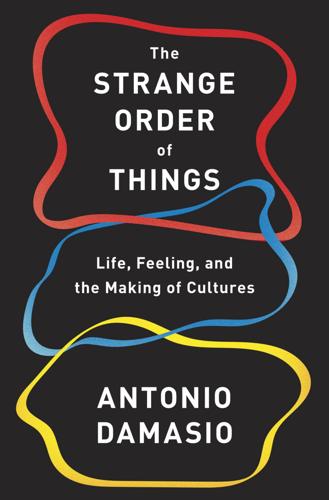
The Strange Order of Things: The Biological Roots of Culture
by
Antonio Damasio
Published 6 Feb 2018
But the fact that profit is natural and generally beneficial does not make it necessarily good, culturally speaking. Cultures can decide when natural things are good—and determine the degree of goodness—and when they are not. Greed is just as natural as profit but is not culturally good, contrary to what Gordon Gekko famously affirmed.2 — The most strangely ordered emergences of high faculties are probably feeling and consciousness. It is not unreasonable—just incorrect—to imagine that the mental refinement we know as feelings would have arisen from the most advanced creatures in evolution, if not from humans alone.
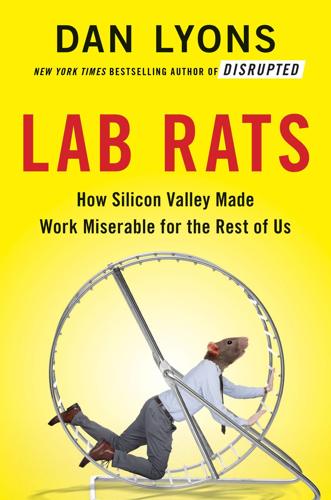
Lab Rats: How Silicon Valley Made Work Miserable for the Rest of Us
by
Dan Lyons
Published 22 Oct 2018
The movement represents a counterweight to the shareholder-centric ideas that Milton Friedman proposed in his essay in the New York Times Magazine back in 1970 and aims to undo a half century of corporate capitalism that has produced so many toxic, dysfunctional outcomes. Oddly enough, the social enterprise movement originated in business schools—the same places that were preaching the bible of Milton Friedman and producing miniature Gordon Gekkos for investment banks and management consulting firms. Terms like social enterprise and social entrepreneurship started kicking around in the 1970s, which was just as the Friedman doctrine began to be taught in business schools. That is probably not a coincidence. Nor is the fact that interest in social enterprise has suddenly soared in the past ten years, a period when the problems created by shareholder capitalism have become acute.
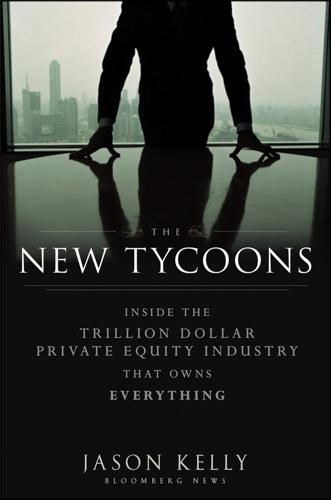
The New Tycoons: Inside the Trillion Dollar Private Equity Industry That Owns Everything
by
Jason Kelly
Published 10 Sep 2012
After three, Hill realized it could be a big business and told his boss so. Schwarzman asked Hill if he wanted to just run it himself. Hill, with his Harvard credentials and Lehman pedigree, looks the part of an investment banker. There’s long been a rumor on Wall Street that at least the physical elements of the Gordon Gekko character in the seminal movie Wall Street were based on Hill, who is an impeccable dresser and slicks his hair back to this day. He has built a similarly pedigreed group—seeing them in a room is like walking into a living Brooks Brothers calendar—that is charged with taking big slugs of money for clients and picking hedge funds based on their appetite for risk.
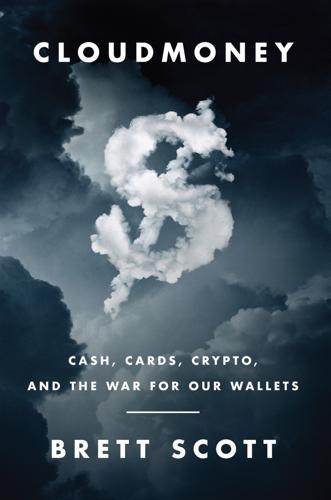
Cloudmoney: Cash, Cards, Crypto, and the War for Our Wallets
by
Brett Scott
Published 4 Jul 2022
The upper echelons of both the financial and digital technology sectors are staffed by people who believe that their actions lead the world, but who come from contrasting cultures. While the image of the financial world is one of ruthless self-interest, as exemplified by the character of the corporate raider Gordon Gekko in Wall Street (1987), the image of tech has long been one of idealistic and geeky coders. Apple’s iconic 1984 Superbowl advert represented this spirit – featuring a colourfully dressed athlete smashing a grey and oppressive status quo with a sledgehammer, it promised freedom from traditional power structures.
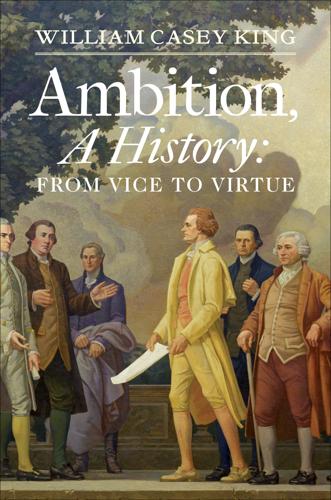
Ambition, a History
by
William Casey King
Published 14 Sep 2013
I wanted it because it was what everyone else seemed to want and could not have. I wanted to prove myself better against those who were imagined to be the very best and was willing to torture myself for just that. When Oliver Stone rendered that time in his movie Wall Street, he portrayed his villain, Gordon Gekko, as a man driven by greed. But it was not greed that drove me, nor the others with whom I worked. Tom Wolfe, who spent some time at the government bond desk at Salomon Brothers while researching Bonfire of the Vanities, got closer to capturing the ambition that drove me, drove us, when he coined the term that described our motivation—we aspired to be no less than “masters of the universe.”
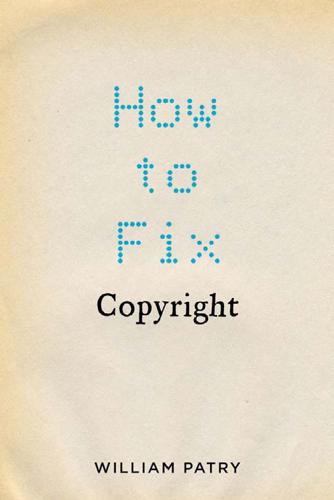
How to Fix Copyright
by
William Patry
Published 3 Jan 2012
Copyright Office observed, “licensors have rarely turned down the opportunity in the digital age to seek royalties, even when the basis for their requests is weak at best. Online music companies rightly complain that they need certainty over what rights are implicated and what royalties are payable so that they can operate without fear of being sued for copyright infringement.”15 Greed is not good, as Michael Douglas’s character Gordon Gekko once argued in the movie Wall Street. Obstructionists in the music industry would do well to follow the advice of another movie character: actor Alec Baldwin’s character’s Blake in David Mamet’s 1992 film Glengarry Glen Ross. Sent in by corporate headquarters to motivate real estate salesmen, he harangues them about going after prospective buyers: “They’re sitting out there waiting to give you their money.
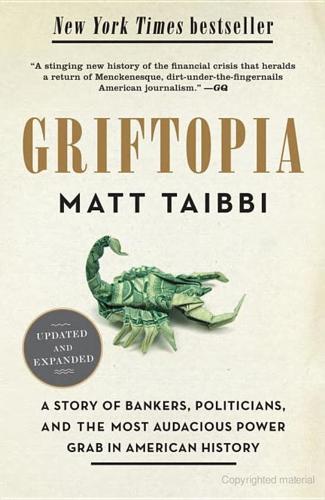
Griftopia: Bubble Machines, Vampire Squids, and the Long Con That Is Breaking America
by
Matt Taibbi
Published 15 Feb 2010
Such a being is a metaphysical monstrosity, struggling to oppose, negate and contradict the fact of his own existence, running blindly amuck on a trail of destruction, capable of nothing but pain. This is pure social Darwinism: self-interest is moral, interference (particularly governmental interference) with self-interest is evil, a fancy version of the Gordon Gekko pabulum that “greed is good.” When you dig deeper into Rand’s philosophy, you keep coming up with more of the same. Rand’s belief system is typically broken down into four parts: metaphysics (objective reality), epistemology (reason), ethics (self-interest), and politics (capitalism). The first two parts are basically pure bullshit and fluff.
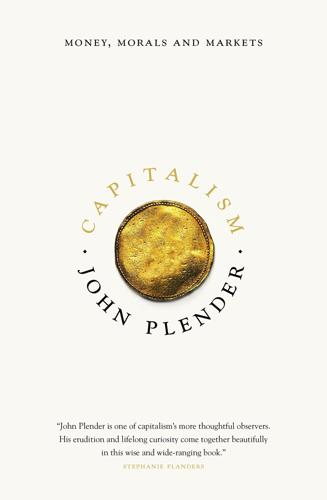
Capitalism: Money, Morals and Markets
by
John Plender
Published 27 Jul 2015
It suffered from the flaw that in a society marked by an uneven distribution of income favouring a numerically small elite, the rich had plenty of spending power to satisfy their desires, but not enough buying power to dynamise the economy to its full potential to raise real incomes.8 The German sociologist and economist Werner Sombart nonetheless argued two centuries later that luxury played an important part in the development of capitalism. 9 And Mandeville’s point has trickled down through history. To name just one example, Gordon Gekko’s ‘greed is good’ speech in the film Wall Street clearly descends in a direct line from the author of the fable. The Fable of the Bees was not universally admired by other Enlightenment thinkers. Adam Smith could not bring himself to accept the extremity of Mandeville’s paradox, in which vice was a necessary condition of prosperity.
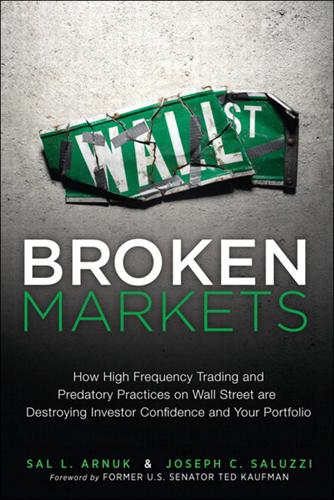
Broken Markets: How High Frequency Trading and Predatory Practices on Wall Street Are Destroying Investor Confidence and Your Portfolio
by
Sal Arnuk
and
Joseph Saluzzi
Published 21 May 2012
Considering that exchanges are based around the world, a recent MIT study found that the ultimate site may be in the middle of the Atlantic Ocean.14 Some exchanges make sure that each colocated customer receives equal amounts of connecting cable so that a server at the northeast corner of a facility has the same latency as one at the southwest.15 It appears that “fairness” and the equalization of market data speed among colocated firms is a critical “must” for the exchanges, but not so when it comes to institutional and retail investors. Private Data Feeds In the 1987 movie Wall Street, insider trader Gordon Gekko tells aspiring broker Bud Fox that “the most valuable commodity I know of is information.”16 This is still true today, particularly for the stock exchanges. Private data feeds consolidate an enormous amount of information and transmit it at speeds faster than the consolidated quote system. Exchanges say they make these feeds available to everyone.
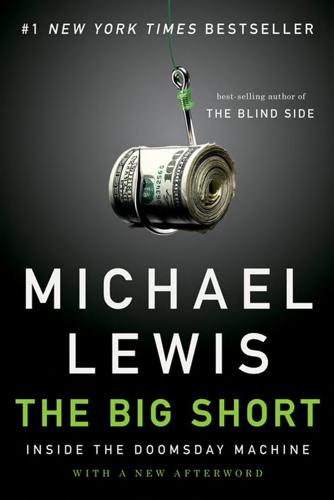
The Big Short: Inside the Doomsday Machine
by
Michael Lewis
Published 1 Nov 2009
He traded bonds for Deutsche Bank, but, like most people who traded bonds for Deutsche Bank--or for Credit Suisse or UBS or one of the other big foreign banks that had purchased a toehold in the U.S. financial markets--he was an American. Thin and tightly wound, he spoke too quickly for anyone to follow exactly what he was saying. He wore his hair slicked back, in the manner of Gordon Gekko, and the sideburns long, in the fashion of an 1820s Romantic composer or a 1970s porn star. He wore loud ties, and said outrageous things without the slightest apparent awareness of how they might sound if repeated unsympathetically. He peppered his conversation with cryptic references to how much money he made, for instance.
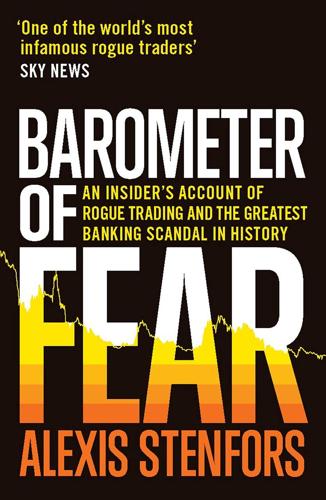
Barometer of Fear: An Insider's Account of Rogue Trading and the Greatest Banking Scandal in History
by
Alexis Stenfors
Published 14 May 2017
‘Many people, not only traders, can relate to the drama and characters in these stories, otherwise they would not be such universally popular films. They deal with power, guilt, humanity and morality, as in much of literature – in Dostoyevsky, Kafka … or in Heinrich Böll’s books, to mention one of my favourite German writers.’ To me, asking traders or rogue traders whether they identified themselves with Bud Fox or Gordon Gekko was like asking a policewoman whether she identified herself with Sarah Lund in The Killing or a policeman with Kurt Wallander in one of Henning Mankell’s crime novels. The interview never made it to print. I could have elaborated much more in my answer to the question, which was cleverly phrased to prompt me into explaining what really goes on in the mind of a rogue trader.
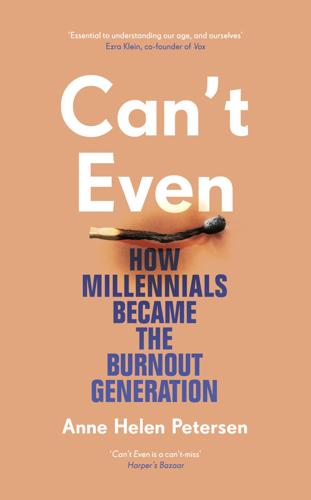
Can't Even: How Millennials Became the Burnout Generation
by
Anne Helen Petersen
Published 14 Jan 2021
As an iconic Newsweek cover story put it, the yuppies had “marched through the ’60s, then dispersed into a million solitary joggers, riding the crests of their own alpha waves, and now there they go again, barely looking up from the massed gray columns of the Wall Street Journal, they speed toward the airport, advancing on the 1980s in the back seat of a limousine.” They weren’t necessarily Gordon Gekko in Wall Street, a movie released in 1987, but Gekko was a distillation of their worst traits. Unlike earlier boomers, “they did not waste time ‘finding themselves’ or joining radical movements,” Ehrenreich writes. “They plunged directly into the economic mainstream, earning and spending with equal zest.”
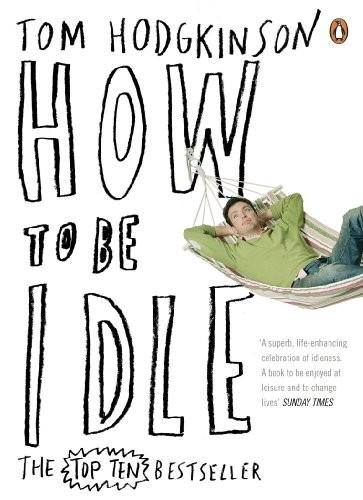
How to Be Idle
by
Tom Hodgkinson
Published 1 Jan 2004
As well as considerations of a humanitarian nature, he should recognize that the function of food is to give the worker' s body an injection of energy which will allow him to replenish that consumed by physical and mental effort, and to achieve and maintain as high a point as possible in the production curve, which as we know descends quickly when the worker has exhausted his reserves of energy. The sacrifice of food to work reaches its apotheosis in the 1 980s. In Oliver Stone ' s movie Wall Street, thrusting broker Gordon Gekko utters the immortal line: ' Lunch? You gotta be kidding. Lunch is for wimps. ' Lunch meant wasting an hour which could be better spent working. Sociability and pleasure were off the menu. Lunch had been sacrificed to the great gods of work, progress and ' beating the other guy ' . No one has the time to eat at leisure, it seems.
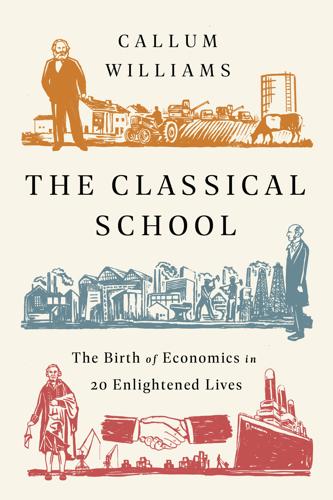
The Classical School
by
Callum Williams
Published 19 May 2020
“In the mercantile regulations… the interest of our manufacturers has been most peculiarly attended to; and the interest, not so much of the consumers, as that of some other sets of producers, has been sacrificed to it.” It is clear from such statements that Smith most certainly does not think that greed will always lead to a good outcome. Fortunately, however, he does not believe that humans are entirely selfish by nature: he has a more complex account of human behaviour than the Gordon Gekko stereotype would allow. To be sure, he believed that people often do look out for themselves, but he maintained that this does not or should not come at the cost of disregarding others’ interests completely. This point is explored in the Lectures on Jurisprudence, the raw material for the Wealth of Nations.
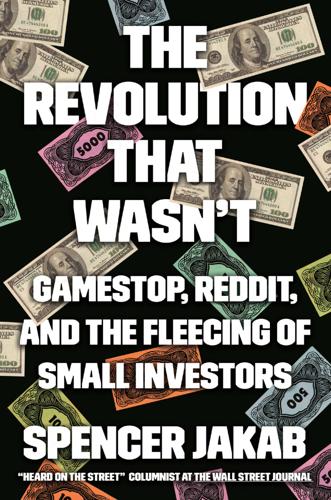
The Revolution That Wasn't: GameStop, Reddit, and the Fleecing of Small Investors
by
Spencer Jakab
Published 1 Feb 2022
When pros smell blood and expect some other fund to be a forced buyer or seller, they don’t hesitate to pile on and make a quick profit at the bleeding funds’ expense. Unlike the members of WallStreetBets, the people who make the big bucks on actual Wall Street care only about their own net worth. As the fictional Gordon Gekko put it: “If you need a friend, get a dog.” Plotkin at least had the good sense to play his cards close to his vest. When funds that have borrowed stock try to wriggle out of a trade that is going badly, their buying can send a signal to the market and pour gasoline on the fire. Then a short seller appeared on the scene who had made his career by being as loud as possible.
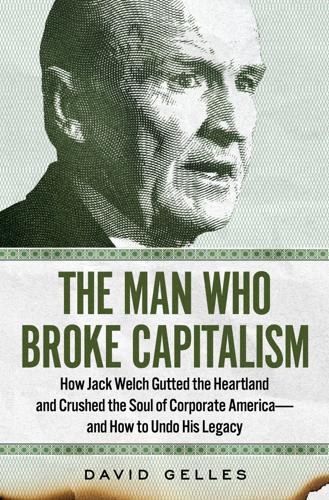
The Man Who Broke Capitalism: How Jack Welch Gutted the Heartland and Crushed the Soul of Corporate America—and How to Undo His Legacy
by
David Gelles
Published 30 May 2022
When companies wouldn’t listen to their profit-hungry investors, the raiders would mount campaigns to replace directors, installing themselves or their cronies on the board, and then forcing the company’s hand. Their exploits were glamorized in films like Wall Street, in which Michael Douglas, playing the sneering Gordon Gekko, proclaims that “greed, for lack of a better word, is good.” Private equity was booming, too. Buyout firms were acquiring companies with borrowed money, loading them up with debt, then slashing costs and wringing out every penny they could. Kohlberg Kravis Roberts took over RJR Nabisco and Ronald Perelman went after Revlon.
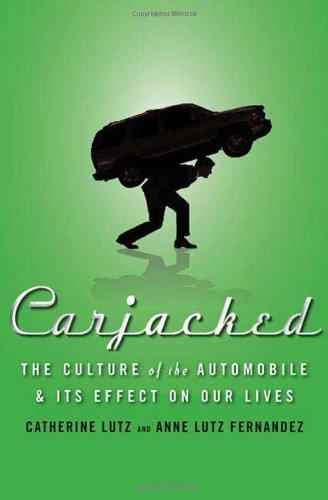
Carjacked: The Culture of the Automobile and Its Effect on Our Lives
by
Catherine Lutz
and
Anne Lutz Fernandez
Published 5 Jan 2010
Meanwhile, Cerberus Capital, the private equity firm that bought Chrysler in 2007, escapes,49 while the American public is likely on the hook for ten billion or more.50 And the much larger and far more costly General Motors restructuring resulted in the U.S. taxpayers’ owning a majority of the company’s stock, a $50 billion investment so risky no one else would take it. HEDGE FUND HANDS IN OUR POCKETS In the auto sector, as elsewhere in American business, manufacturing is no longer seen as the royal road to riches. Eerily echoing the reviled Gordon Gekko of Oliver Stone’s morality tale Wall Street, Ray Diallo, founder of hedge fund Bridgewater Associates, noted, “The money that’s made from manufacturing stuff is a pittance in comparison to the amount of money made from shuffling money around.” 2007 was the year many first learned 124 Carjacked the terms “predatory lending” and “hedge fund,” both of which have come to hit American car owners, not just home owners, with a vengeance.
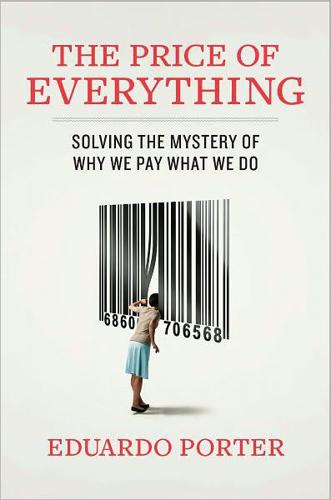
The Price of Everything: And the Hidden Logic of Value
by
Eduardo Porter
Published 4 Jan 2011
That amounts to very few elephant seals eating all the fish. FARMERS AND FINANCIERS The biggest seals work for banks. Banks pay enormous bonuses to draw the brightest MBAs or quantum physicists. These bright financiers, in turn, invent the fancy new products that make banking one of the most profitable endeavors in the world. Remember the eighties? Gordon Gekko sashayed across the silver screen. Ivan Boesky was jailed for insider trading. Michael Milken peddled junk bonds. In 1987 financial firms amassed a little less than a fifth of the profits of all American corporations. Wall Street bonuses totaled $2.6 billion—about $15,600 for each man and woman working there.
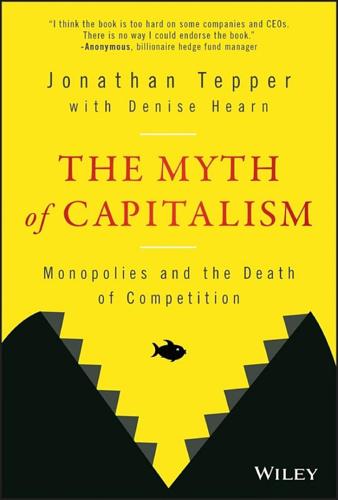
The Myth of Capitalism: Monopolies and the Death of Competition
by
Jonathan Tepper
Published 20 Nov 2018
Diana Vreeland, the stylish editor of Harpers Bazaar and friend of Nancy Reagan, said of the times, “Everything is power and money and how to use them both … We mustn't be afraid of snobbism and luxury.”60 Right around the time of the Crash, the film Wall Street captured the feeling of the era. In a memorable scene, Gordon Gekko wants to buy a company and rises to speak to the shareholders: The point is, ladies and gentleman, that greed – for lack of a better word – is good. Greed is right. Greed works. Greed clarifies, cuts through, and captures the essence of the evolutionary spirit. Greed, in all of its forms – greed for life, for money, for love, knowledge – has marked the upward surge of mankind.
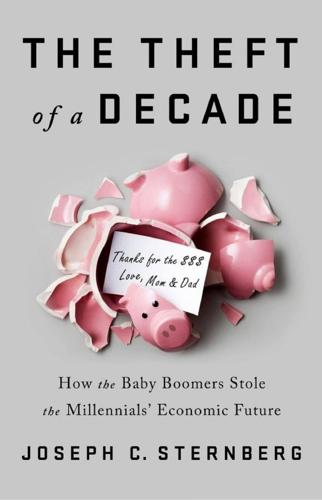
The Theft of a Decade: How the Baby Boomers Stole the Millennials' Economic Future
by
Joseph C. Sternberg
Published 13 May 2019
Output per hour worked grew a relatively sluggish 1.9 percent per year during this span.18 Instead, falling borrowing costs, as America emerged from the stagflationary 1970s and the high interest rates of the early 1980s, and low taxation on capital created a new boom in financial engineering: leveraged buy-outs, mergers and acquisitions, and other Gordon Gekko–like techniques. The basic principle was that companies would use cheap credit to borrow heavily against their assets and expected future revenue and then use the money either to buy other companies or to buy back the company’s own stock. Interest payments on the debt would then become tax-deductible, reducing the company’s effective tax burden under America’s relatively high corporate tax rates.
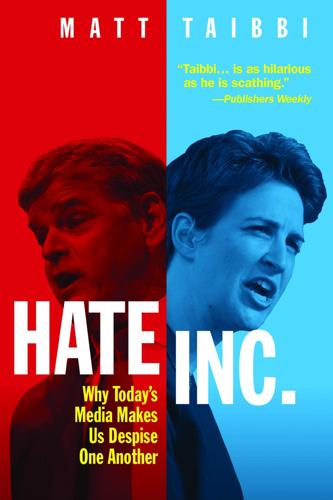
Hate Inc.: Why Today’s Media Makes Us Despise One Another
by
Matt Taibbi
Published 7 Oct 2019
Another high priest of conventional wisdom, CNN’s self-described “centrist” David Gergen, declared, “We’ve got a horse race.” We didn’t, of course. Obama won with relative ease. But even if Romney had somehow found an advantage and won, the Gergens of the world wouldn’t have shed a tear: having a tax-slashing, leveraged buyout artist in the White House—a Mormon Gordon Gekko—would have been okay with most of these clowns. It was the ultimate demonstration of the Manufacturing Consent principle of a concocted, artificially narrowed public debate. We were meant to understand that the distance between Romney and Obama was vast, that much was at stake, and that the outcome was in doubt.
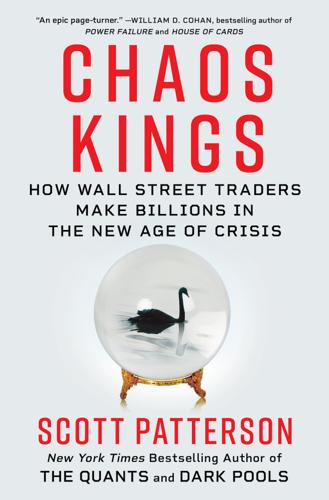
Chaos Kings: How Wall Street Traders Make Billions in the New Age of Crisis
by
Scott Patterson
Published 5 Jun 2023
Fat Tony is the Brooklyn-born trader who, as his name suggests, operates from the gut. He uses intuition and a hard-won bullshit detector to repeatedly defeat the business-school elites with their Wharton degrees and gaudy mansions. Characteristically, he tilts toward the gritty, seedy side of Wall Street, part Gordon Gekko, part Al Capone. Nero Tulip—a thinly disguised Nassim Taleb—is the buttoned-down intellectual who designs a trading system that can never blow up. Like Taleb, Tulip is a mathematician with a specialty in statistics. Like Taleb, he becomes a floor trader on the Merc. Like Taleb, he moves to a New York investment firm.
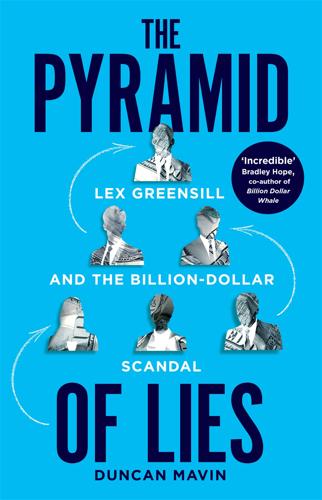
The Pyramid of Lies: Lex Greensill and the Billion-Dollar Scandal
by
Duncan Mavin
Published 20 Jul 2022
A video, posted to the Greensill Farming Facebook page, opens with a shot of Lex, Peter, their brother Andrew and their parents, standing in front of a farm building under a sign for ‘Greensill Sweet Potatoes’. Everyone is in the bright yellow and blue overalls that all Greensill farm workers wear – except for Lex, who is in smart black shoes, grey slacks and a blue banker’s shirt with a white collar and white cuffs, like an Australian Gordon Gekko. On its website, Greensill Farming said it had grown from the original 66 acres managed by Lex’s grandfather to more than 8,000 acres. It grew more than 5 per cent of all the watermelons in Australia. Not everyone was happy with their progress. Some local farmers were upset that Greensill Farming used money from the finance business to expand aggressively, paying over the odds for vast tracts of land, then driving down the price for sweet potatoes, piling pressure on other farms in the area.
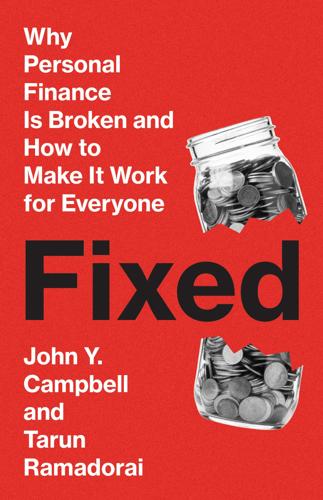
Fixed: Why Personal Finance is Broken and How to Make it Work for Everyone
by
John Y. Campbell
and
Tarun Ramadorai
Published 25 Jul 2025
In the rational framework used by economists, losses have no special impact until they become large enough to force cutbacks in spending on necessities: a small loss and a small gain are treated almost symmetrically, as in the example of the ant surveying its immediate surroundings on the hill. Contrary to this, some people are deeply attached to the status quo and feel intense regret when even a small loss occurs (this is trenchantly put in the movie Wall Street by shady financier Gordon Gekko: “I don’t like losses, sport. Nothing ruins my day more than losses”).7 Such preferences can lead to problems particularly if an investor frequently checks the balance of their brokerage account, because over short periods of time losses occur almost as frequently as gains. It takes time for the positive average return on stocks to dominate the short-run fluctuations, but a person who is pained by every daily loss may find it too hard to wait patiently for investments to pay off and may give up equity ownership or simply avoid it in the first place.8 Ironically, some people who don’t own stocks do gamble at casinos “for fun.”
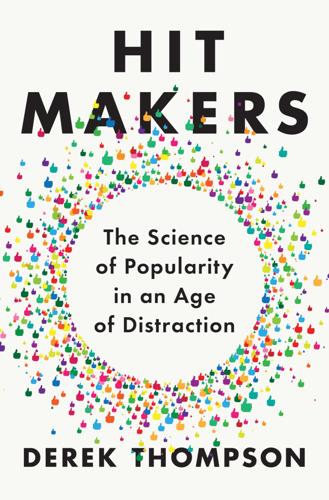
Hit Makers: The Science of Popularity in an Age of Distraction
by
Derek Thompson
Published 7 Feb 2017
So the screenwriter is encouraged to include several scenes where the female executive’s steely exoskeleton cracks and audiences can glimpse the vulnerable softness underneath. Miranda Priestly, the Machiavellian editor in chief played by Meryl Streep in The Devil Wears Prada, has a visible breakdown over her marriage before ultimately triumphing in the film. Compare that with another ethically dubious boss, Gordon Gekko, the oily financier played by Michael Douglas in Wall Street, who enjoys cult worship despite being a relentless and unrepentant crook. Alec Baldwin’s “Always Be Closing” speech from Glengarry Glen Ross is one of the most glorious asshole moments in film history. But according to Bruzzese’s research, audiences would be less inclined to embrace a foulmouthed woman from downtown.
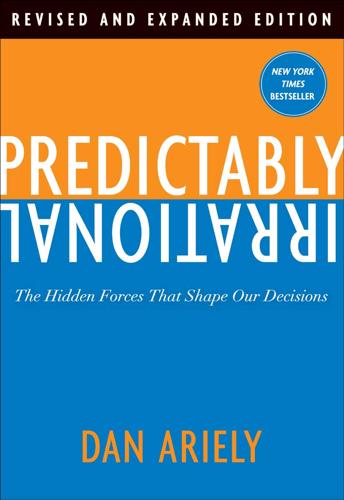
Predictably Irrational, Revised and Expanded Edition: The Hidden Forces That Shape Our Decisions
by
Dan Ariely
Published 19 Feb 2007
The scary thought is that if we did the experiments with nonmonetary currencies that were not as immediately convertible into money as tokens, or with individuals who cared less about their honesty, or with behavior that was not so publicly observable, we would most likely have found even higher levels of dishonesty. In other words, the level of deception we observed here is probably an underestimation of the level of deception we would find across a variety of circumstances and individuals. Now suppose that you have a company or a division of a company led by a Gordon Gekko character who declares that “greed is good.” And suppose he used nonmonetary means of encouraging dishonesty. Can you see how such a swashbuckler could change the mind-set of people who in principle want to be honest and want to see themselves as honest, but also want to hold on to their jobs and get ahead in the world?
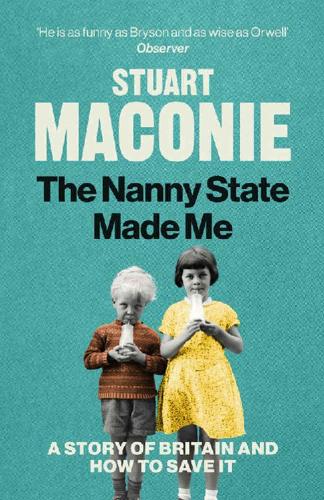
The Nanny State Made Me: A Story of Britain and How to Save It
by
Stuart Maconie
Published 5 Mar 2020
CHAPTER 10 I LOOK FORWARD ‘SELLING ENGLAND BY THE POUND’ ‘It is difficult, if not impossible, to combine the citizens’ rights and interests and the private enterprise’s interests, because the private enterprise aims at its natural and justified objective, the biggest possible profit.’ Joseph Chamberlain ‘Greed is good.’ Gordon Gekko The Upper Derwent Valley, Derbyshire. A fine, calm, April evening, the air warm and still, the kiss of breeze very welcome. The journey up here out of Manchester through the city’s weekday rush hour is never something you’d call pleasant; smothered in the damp armpit or bulky backpack of a fellow traveller on a stifling privatised train, or tail to tail in the fuming cars that crawl through the winding bottlenecks of the A57 to Glossop and Sheffield.
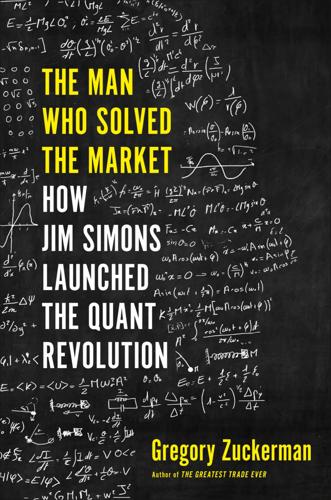
The Man Who Solved the Market: How Jim Simons Launched the Quant Revolution
by
Gregory Zuckerman
Published 5 Nov 2019
Junk-bond king Michael Milken pocketed over one billion dollars in compensation between 1983 and 1987 before securities violations related to an insider trading investigation landed him in jail. Others joined him, including investment banker Martin Siegel and trader Ivan Boesky, who exchanged both takeover information and briefcases packed with hundreds of thousands of dollars in neat stacks of $100 bills.1 By 1989, Gordon Gekko, the protagonist in the movie Wall Street, had come to define the business’s aggressive, cocksure professionals, who regularly pushed for an unfair edge. Berlekamp was an anomaly in this testosterone-drenched period, an academic with little use for juicy rumors or hot tips. He barely knew how various companies earned their profits and had zero interest in learning.
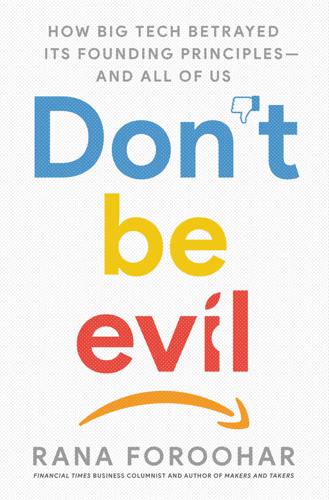
Don't Be Evil: How Big Tech Betrayed Its Founding Principles--And All of US
by
Rana Foroohar
Published 5 Nov 2019
It was the age of Clinton and Blair, who continued much of the market deregulation that had started under Reagan and Thatcher. It was a period when the last vestiges of the labor movement and the old-fashioned notion of retiring comfortably with a gold watch and a pension began to slip away, replaced by the glamorization of Gordon Gekko and soccer moms reading Money magazine and hoping to become stock-picking millionaires overnight. Wall Street guys were raking in money, but not nearly as much as the Silicon Valley geeks who had the trappings of money, and yet also somehow a greater sense of having earned it, by creating real value in the form of their companies.
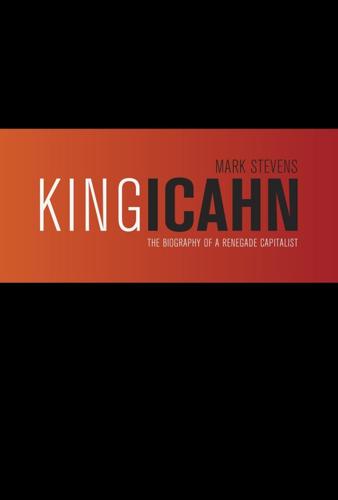
King Icahn: The Biography of a Renegade Capitalist
by
Mark Stevens
Published 31 May 1993
Stathakis Without limiting the rights under copyright reserved above, no part of this publication may be reproduced, stored in or introduced into a retrieval system, or transmitted, in any form, or by any means (electronic, mechanical, photocopying, recording or otherwise), without the prior written permission of both the copyright owner and the above publisher of this book. “I create nothing, I own.” - Gordon Gekko in the film “Wall Street,” 1987 Table of Contents FORWARD: THE BATTLE TO WRITE THIS BOOK THE BILLION DOLLAR EPIPHANY FROM BAYSWATER TO PRINCETON MY SON, THE OPTIONS BROKER FIRST STRIKES: CONTROLLING THE DESTINY OF COMPANIES TALK LIKE A POPULIST, ACT LIKE A RAIDER “FEAR OF GOD” GAMBIT MEETS THE “STIFF-ARM DEFENSE” GETTING RICH IN THE EIGHTIES: LIKE “TAKING CANDY FROM A BABY” PHILLIPS PETROLEUM MEETS THE “BARBARIANS FROM HELL” ICAHN VS.
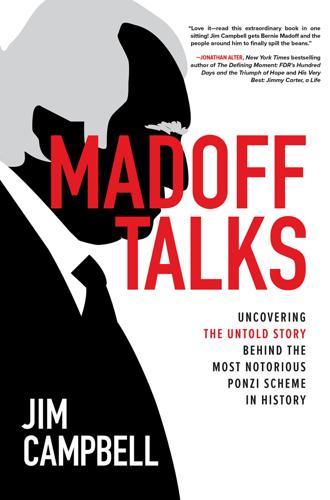
Madoff Talks: Uncovering the Untold Story Behind the Most Notorious Ponzi Scheme in History
by
Jim Campbell
Published 26 Apr 2021
I remember we met Bernie. We met his son who later committed suicide. The son was a little bit of a ‘toolbox,’ but I guess he was nice enough. It was spic and span; you could’ve eaten off the floor. Bernie seemed very down to earth and a nice guy. He could’ve been anyone’s Jewish grandpa. He definitely wasn’t a Gordon Gekko. I think Bernie was content to live in the shadows. I would never expect that he would have had all these millionaire friends trusting him with their life savings. Not that I would have trusted him or not trusted him. I don’t trust anybody, but that’s because of my job.”42 Now a chief compliance officer at a Wall Street firm, my source described the investigative structure of FINRA.
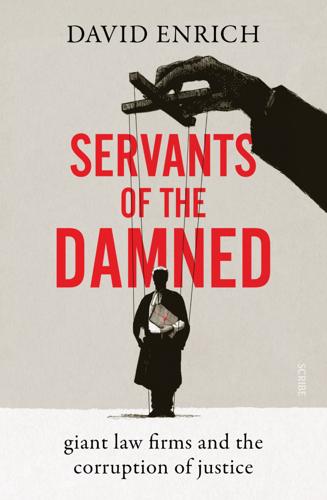
Servants of the Damned: Giant Law Firms and the Corruption of Justice
by
David Enrich
Published 5 Oct 2022
For all his take-no-prisoners gusto, for all his ambition to shake up this stodgy, cosseted industry, Brill seemed to hanker deep down for acceptance in it. He wanted the power and the status—or at least that’s how his reporters saw it. Perhaps as a result, Brill favored pinstriped suits and two-toned shirts. He wore his hair slicked back like Gordon Gekko, and an unlit cigar often jutted from the corner of his mouth. The reporters vacillated between worshipping and fearing Brill. He was a bully. When he marked up reporters’ drafts, he’d scrawl insults in a red, felt-tipped pen: “What are you, a moron?” “Is English your second language?” “You should be fired for this crock of shit.”
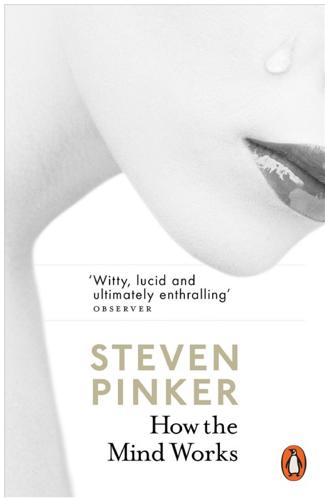
How the Mind Works
by
Steven Pinker
Published 1 Jan 1997
The other is, Protecting the environment is nature’s way; we humans had better shape up. The opposing theory of the selfish gene has been bitterly attacked out of the fear that it vindicates the philosophy of Gordon Gekko in Wall Street: greed is good, greed works. Then there are those who believe in selfish genes but urge us to face up to the sad truth: at heart, Mother Teresa is really selfish. I think moralistic science is bad for morals and bad for science. Surely paving Yosemite is unwise, Gordon Gekko is bad, and Mother Teresa is good regardless of what came out in the latest biology journals. But I suppose it is only human to feel a frisson when learning about what made us what we are.
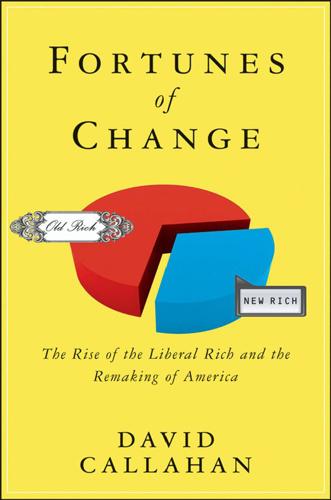
Fortunes of Change: The Rise of the Liberal Rich and the Remaking of America
by
David Callahan
Published 9 Aug 2010
More than three hundred people showed up, each contributing $2,300. The event included a private reception with Obama for another dozen people who had raised more than $25,000 each for his campaign. That Paul Tudor Jones would be shaking the Greenwich money tree for Obama is not as odd as it looks. Jones isn’t a Gordon Gekko c02.indd 34 5/11/10 8:51:53 AM what’s the matter with connecticut? 35 kind of Wall Streeter. He has long been involved in social causes and in more than a passing way. He was a cofounder of the Robin Hood Foundation, one of the largest antipoverty groups in New York City. He personally underwrote many of Robin Hood’s administrative expenses, so that the group could claim that 100 percent of the contributions would go directly to help New Yorkers in need.
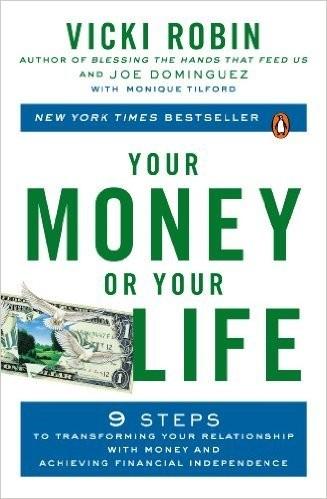
Your Money or Your Life: 9 Steps to Transforming Your Relationship With Money and Achieving Financial Independence: Revised and Updated for the 21st Century
by
Vicki Robin
,
Joe Dominguez
and
Monique Tilford
Published 31 Aug 1992
Perhaps some moments of pleasure came from purchasing each white sweater, a happiness that probably dissipated soon after the sweater had disappeared into the white-sweater drawers. As one wise person said, you can never get enough of what you don’t really want. Greed is another component of our irrational and addictive relationship with money. “Greed,” said Gordon Gekko, the wheeler-dealer in the movie Wall Street, “is good.” It is, indeed, a socially acceptable and even encouraged motivation. Along with its dark cousin, fear, it runs the casino called Wall Street and gets reported on in the most respectable journals and newspapers in the world. Greed is also what possesses so many of us as we shoot right past the peak of the Fulfillment Curve and accumulate clutter (hoarding).
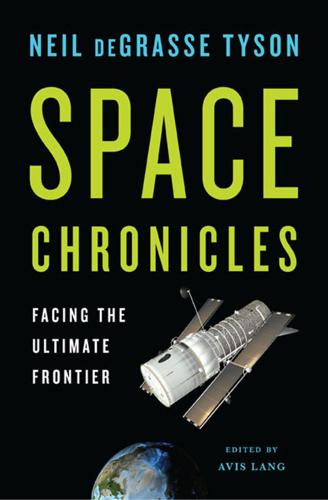
Space Chronicles: Facing the Ultimate Frontier
by
Neil Degrasse Tyson
and
Avis Lang
Published 27 Feb 2012
Most, if not all, of those dreams spring from the premise that our discoveries will transform how we live. Recently I had a depressing revelation. It was about firsts. The first cell phone looked like a large brick. You see it and you think, Did people actually hold this up to their ear? Remember the 1987 movie Wall Street, with Gordon Gekko, the rich guy, at his beach house in the Hamptons, talking on one of those phones? I remember thinking, Wow, that’s cool! He can walk on the beach and speak to somebody on a portable phone! But now when I look back, all I can think is, How could anybody have ever used such a thing? This is the evidence that we’ve moved on: you look at the first thing—the brick-size cell phone, the car with the little crank, the airplane that looks like a cloth-wrapped insect—and you say, “Put it in a museum.
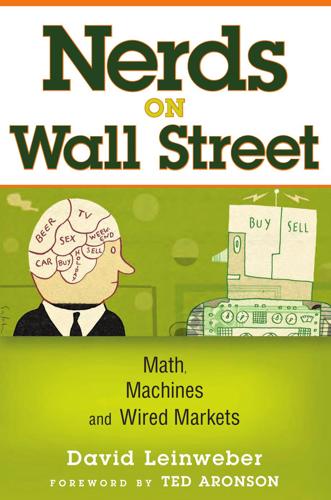
Nerds on Wall Street: Math, Machines and Wired Markets
by
David J. Leinweber
Published 31 Dec 2008
This might have been one of the first times anyone actually tied the consolidated feed to an expert system. Lew Roth joined me in trying to get this collection of buggy stuff to do something useful. Our modest efforts at a prototype were immodestly called the ART Quotron Universal Investment Reasoning Engine—AQUIRE, which had a nice Gordon Gekko feel to it (even though the actual Gordon was a year away, in 1987). As it turned out, the “Universal Investment Reasoning” demonstrated in AQUIRE consisted of variations on xxx Introduction crossover rules—comparisons of moving averages. These seemed to be a favorite of the New York visitors, and were easy to program.
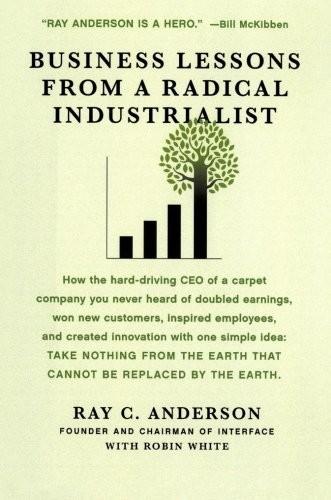
Business Lessons From a Radical Industrialist
by
Ray C. Anderson
Published 28 Mar 2011
I suggest—and I know this is heresy—that Milton Friedman was at the heart, along with a generation of economists and bankers who have blindly followed his mantra: “Business exists to make a profit.” Really? This credo is at the heart of the world view that I’ve already written about—the fundamentally flawed paradigm, the mind-set that underlies the industrial system—and I suggest that that same mind-set also underlies the global financial system. I further suggest that Gordon Gekko’s fictional proclamation in the film Wall Street, “Greed is good,” is as widely accepted as Friedman’s credo, one hand-in-glove with the other, throughout the high-flying financial world. That’s a real double whammy! So, with trillions of dollars seeking instant gratification in short-term profits, with the financial industry coming up with ever-more esoteric and risky ways of satisfying that demand, with a ratings industry turning a blind eye to risk and stamping triple-A on too many pieces of paper (because if one agency didn’t, another would), something had to give, and it did.
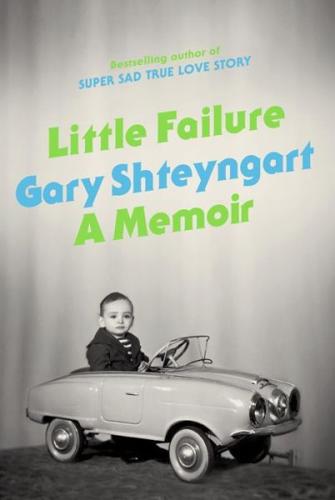
Little Failure: A Memoir
by
Gary Shteyngart
Published 7 Jan 2014
All those morally strong boys and girls, all those international flags hanging amid the Gothic architecture. I curl up in my old Soviet comforter as Mama and Papa launch new fusillades downstairs. What kind of a person would I be if I went to a place like Grinnell? What if I jettisoned all of it, foreigner, Gnu, Gordon Gekko wannabe? What if I started from nothing? Am I crying because of the razvod downstairs? Am I crying because I can’t wait to be loved for the little nub inside me, whatever it may contain? Or am I crying because, in a sense, I know I’m about to commit an act of suicide, an act that will take me fully through my twenties and thirties, fully through a decade of psychoanalysis, to complete?
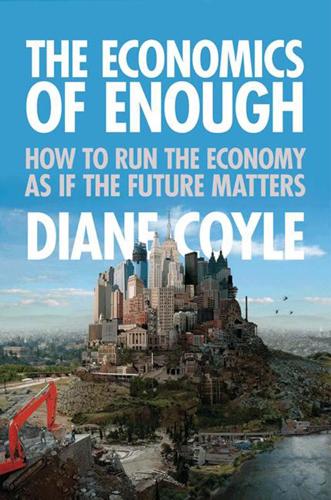
The Economics of Enough: How to Run the Economy as if the Future Matters
by
Diane Coyle
Published 21 Feb 2011
Few people, even among the most ardent fans of market solutions, will disagree with the proposition that the financial markets have, from time to time, brought scandalous demonstrations of greed. While most traders earning multimillion bonuses no doubt think of themselves as upstanding citizens, the rest of us find it hard to find many shining examples of virtuous behavior on Wall Street or in the City of London. In the notorious words of cinema villain Gordon Gekko (Michael Douglas in Wall Street), “Greed is good” is the motto of the markets, but not of Main Street. Likewise, the cartoon “rational economic man” is a selfish being, whereas real people make choices motivated by the moral sentiments of Adam Smith and illuminated by modern evolutionary biology.
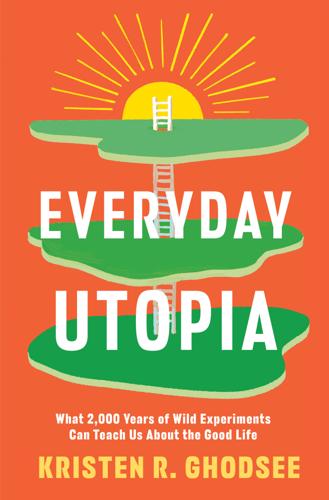
Everyday Utopia: What 2,000 Years of Wild Experiments Can Teach Us About the Good Life
by
Kristen R. Ghodsee
Published 16 May 2023
Played by the actor Peter Mark Richman, Offenhouse demands to see his lawyer so he can access his wealth. Picard impatiently tells Offenhouse: “A lot has changed in the last three hundred years. People are no longer obsessed with the accumulation of things. We’ve eliminated hunger, want, the need for possessions. We’ve grown out of our infancy.” Coming only one year after Gordon Gekko’s era-defining “greed is good” speech in the 1987 movie Wall Street, “The Neutral Zone” thumbed its nose at the materialism and selfishness characterized by then popular television shows like Dallas, Dynasty, Falcon Crest, and Lifestyles of the Rich and Famous. In an era saturated with extreme-wealth porn, Star Trek projected one of these so-called “masters of the universe” into a dollar-free future.
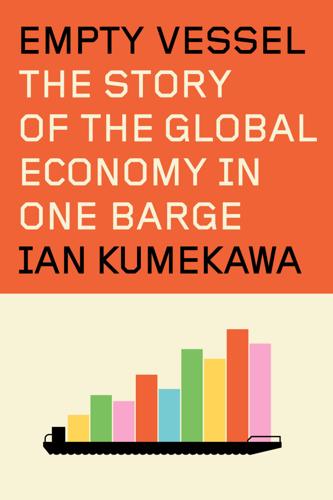
Empty Vessel: The Story of the Global Economy in One Barge
by
Ian Kumekawa
Published 6 May 2025
Just two miles from Pier 36 on the East River, in New York’s financial district, the same globalizing forces that hollowed out the Lower East Side had driven a very different transformation built not on physical goods but on financial abstraction. The year that the first prison barge opened in the city, 1987, was when Gordon Gekko, the corporate raider villain of the Hollywood blockbuster Wall Street played by Michael Douglas, famously declared greed to be good. The film’s plot revolved around insider trading and skullduggery; Gekko’s plan was to buy a productive airline and then gut it, firing all its employees, in a play to access its pension fund.
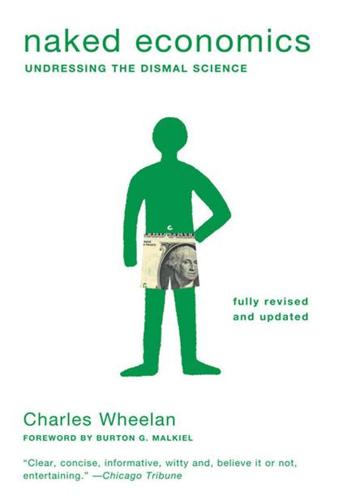
Naked Economics: Undressing the Dismal Science (Fully Revised and Updated)
by
Charles Wheelan
Published 18 Apr 2010
Assuming a 3 percent commission, your agent can make $8,400 for doing virtually nothing or $9,600 for doing many weeks of work. Which would you choose? On the buy side or the sell side, your agent’s most powerful incentive is to get a deal done, whether it is at a price favorable to you or not. Economics teaches us how to get the incentives right. As Gordon Gekko told us in the movie Wall Street, greed is good, so make sure that you have it working on your side. Yet Mr. Gekko was not entirely correct. Greed can be bad—even for people who are entirely selfish. Indeed, some of the most interesting problems in economics involve situations in which rational individuals acting in their own best interest do things that make themselves worse off.
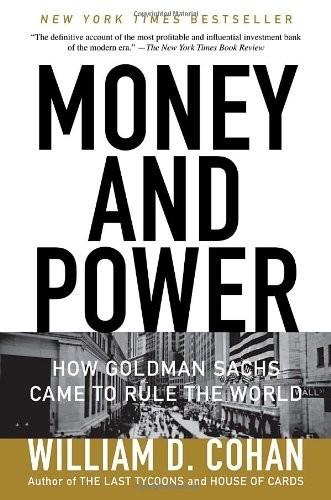
Money and Power: How Goldman Sachs Came to Rule the World
by
William D. Cohan
Published 11 Apr 2011
Hour and after hour passed without the partner who had told them all to be there showing up. By 8:30, three of natives were getting restless. “What’s up?” one of them said. “Where is this jerk? I have plans in the Hamptons and want to get going.” After another half hour, the three rebels left. “They were MBAs from top grad schools,” Scaramucci observed. “They were the future Gordon Gekkos.” The rest of the group waited around. At 10:00 p.m., the partner appeared, passed around a sheet of paper, and asked everyone there to sign his or her name on it. With that minor bit of bookkeeping completed—and taking a page from the nineteenth-century French writer, Stendhal, in Lucien Leuwen—he said, “So, today’s lesson is about waiting patiently for those who are more important than you.
…
The author has also reviewed numerous documents related to the cases and interviewed Gary Moskowitz and Lew Eisenberg. 9. “This worked because”: Robert E. Rubin, In an Uncertain World (New York: Random House, 2003), p. 99. 10. “Over the years”: Ibid., p. 100. 11. “There was a lot”: Author interview with Steve Friedman. 12. “No mercy for the yuppies”: Anthony Scaramucci, Goodbye Gordon Gekko: How to Find Your Fortune Without Losing Your Soul (New York: Wiley, 2010), p. 141. The entire incident is described well in Scaramucci’s book. 13. “masses of people”: Janet Hanson, More Than 85 Broads: Women Making Career Choices, Taking Risks, and Defining Success on Their Own Terms (New York: McGraw-Hill, 2006), p. 24. 14.
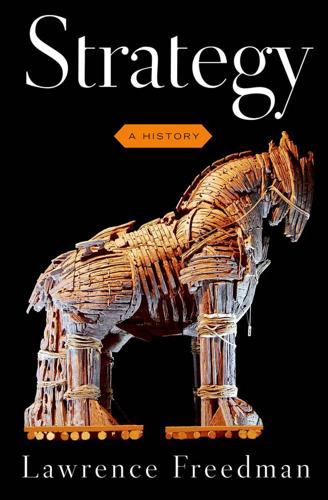
Strategy: A History
by
Lawrence Freedman
Published 31 Oct 2013
In the movie Wall Street, the villainous Gordon Gekko advises Bud Fox: “I don’t throw darts at a board. I bet on sure things. Read Sun Tzu, THE ART OF WAR. Every battle is won before it is ever fought.” Fox later used Sun Tzu to prevail over Gekko: “If your enemy is superior, evade him. If angry, irritate him. If equally matched, fight, and if not, split and re-evaluate.” Wall Street was a morality tale involving junior stockbroker Bud Fox caught between his blue-collar father, a foreman and trade unionist who represented the virtues of hard and honest labor, and the ruthless, cynical Gordon Gekko, a corporate raider whose motto was “greed is good.”
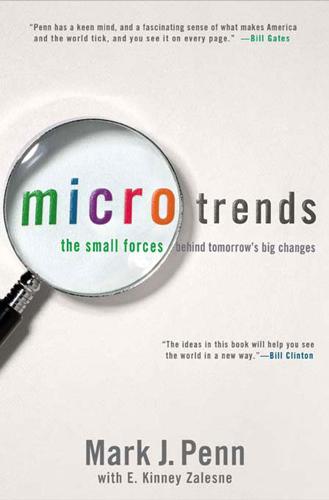
Microtrends: The Small Forces Behind Tomorrow's Big Changes
by
Mark Penn
and
E. Kinney Zalesne
Published 5 Sep 2007
It is the antithesis of what they believe in. Even the limo companies have had to shift to SUVs. According to a 2003 survey and analysis by Harris Interactive, there are actually six different kinds of millionaires—and the biggest group is the quietest one. Here are the six: 1. “Deal Masters” (think Gordon Gekko of the movie Wall Street) 2. “Altruistic Achievers” (think Bruce Wayne, the public face of Batman) 3. “Secret Succeeders” (like “Citizen” Charles Foster Kane) 4. “Status Chasers” (Scarlett O’Hara) 5. “Satisfied Savers” (Oliver Wendell Douglas of Green Acres), and 6. “Disengaged Inheritors” (Dudley Moore’s Arthur) While the cliché of the Really Rich is that they are either ambitious and domineering (like Gekko) or petty and spoiled (like Arthur)—it turns out that those two kinds of millionaires actually represent the smallest groups, together making up less than a quarter of all American rich people.
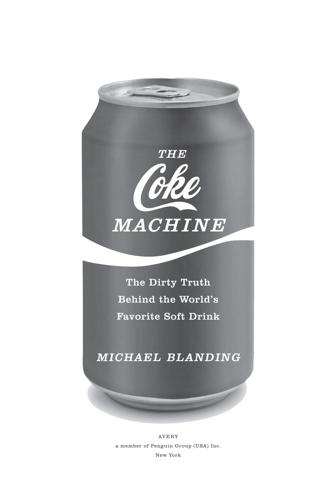
The Coke Machine: The Dirty Truth Behind the World's Favorite Soft Drink
by
Michael Blanding
Published 14 Jun 2010
Meanwhile, in 1919, in the wake of Candler’s slight, Dobbs became head of the Atlanta Chamber of Commerce, where he got to meet many members of the city’s business elite. Just as Robinson had persuaded Candler to buy up the company decades earlier, Dobbs would persuade one of them, Trust Com pany president Ernest Woodruff, to take over the company now. As a business tycoon, Ernest Woodruff was almost a caricature—a cross between Gordon Gekko and the Monopoly Man. His occupation was to make money, mostly through the takeover, restructuring, and sale of real estate and transportation companies. He had a reputation for play ing dirty, not above breaking into a rival’s office late at night to steal files. And he was even more of a skinflint than Candler, once supposedly strap ping $2 million in bonds to himself and his secretary on a train from Cleveland in order to save $200 in shipping costs.
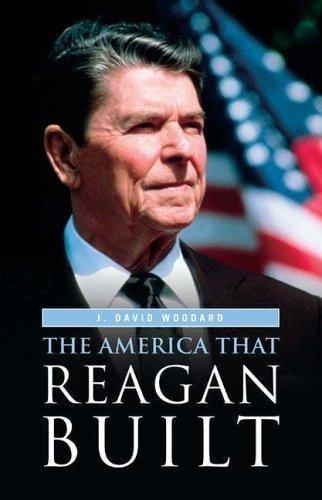
The America That Reagan Built
by
J. David Woodard
Published 15 Mar 2006
Of course there were critics, and for them the era was never that splendid; it was derided for its inbred conformity, flatulent excesses, and materialistic binges. The ‘‘me’’ decade of the 1970s turned into the ‘‘my’’ decade of the 1980s. The faultfinders saw the surge of abundance as a joyless vulgarity. In 1987, filmmaker Oliver Stone released the movie Wall Street. The story involved a young stockbroker, Bud Fox, who becomes involved with his hero, Gordon Gekko, an extremely successful, but corrupt, stock trader. In the most memorable scene of the movie, Gekko makes a speech to the shareholders of a company he was planning to take over. Stone used the scene to give Gekko, and by extension corporate America at the time, the characteristic trait of economic success.5 Gekko: Teldar Paper, Mr.
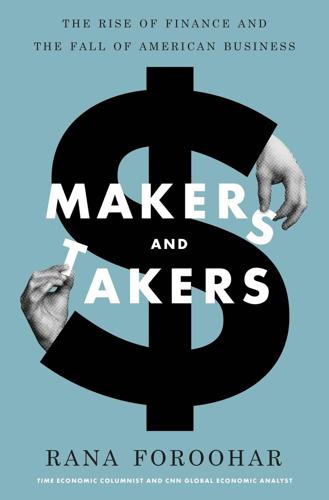
Makers and Takers: The Rise of Finance and the Fall of American Business
by
Rana Foroohar
Published 16 May 2016
Bush tried to institutionalize the transition to an “ownership society” by trying to privatize Social Security (thankfully, that plan was unsuccessful) and increase home ownership by lowering lending standards, which was of course one of the factors that precipitated the housing market collapse in 2007. And throughout the entire period, public obsession with the markets grew. The financial media burgeoned. Traders became stars, shareholder value became the guiding force for corporate America, and, as Gordon Gekko put it so famously in the 1987 movie Wall Street, greed was good. Our economic orbit has been realigned. TOO BIG TO FAIL It was a revolution that benefited financiers the most. Even though Wriston’s blunders in the emerging markets haunted Citi balance sheets for years, requiring the sort of government interventions that Wriston deplored for other industries,65 he retired on a high note in 1984.
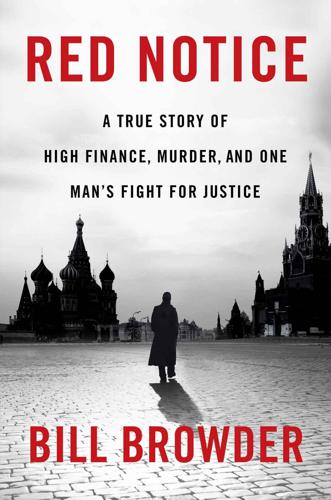
Red Notice: A True Story of High Finance, Murder, and One Man's Fight for Justice
by
Bill Browder
Published 3 Feb 2015
It was Leonid Rozhetskin, a thirty-one-year-old Russian-born, Ivy League–educated lawyer whom I’d met on a few occasions (and who would, a decade later, be murdered in Jurmula, Latvia, after a spectacular falling-out with various people he did business with). Leonid, who’d clearly watched the film Wall Street one too many times, had slicked-back, Gordon Gekko–styled hair and sported red suspenders over a custom, monogrammed, button-down shirt. He took the chair at the head of the table and laced his fingers over one knee. “I’m sorry Boris couldn’t make it,” he said in lightly accented English. “He’s busy.” “I am too.” “I’m sure you are. What brings you here today?”
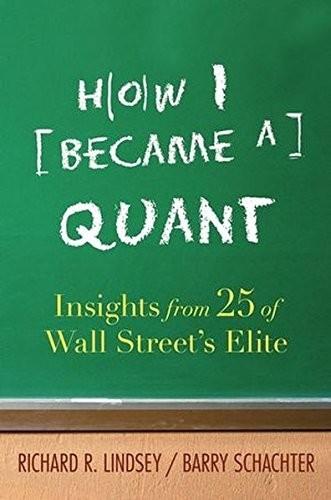
How I Became a Quant: Insights From 25 of Wall Street's Elite
by
Richard R. Lindsey
and
Barry Schachter
Published 30 Jun 2007
Don worked some kind of deal with Quotron,6 then the major market data vendor and conveniently located down the street, that allowed us to use actual market data to try out our wacky ideas. This might have been one of the first times anyone actually tied the consolidated feed to an expert system. Our modest efforts at a prototype were immodestly called the ART Quotron Universal Investment Reasoning Engine—AQUIRE, which had a nice Gordon Gekko feel to it (even though the actual Gordon from Wall Street was a year away, in 1987). As it turned out, the “Universal Investment Reasoning” demonstrated in AQUIRE consisted of variations JWPR007-Lindsey 20 May 7, 2007 16:12 h ow i b e cam e a quant on crossover rules—comparisons of moving averages.
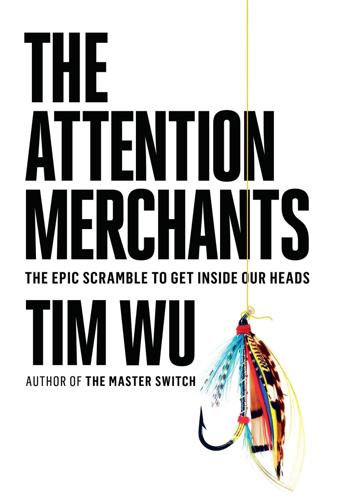
The Attention Merchants: The Epic Scramble to Get Inside Our Heads
by
Tim Wu
Published 14 May 2016
After years of building the AOL brand and attracting millions of customers, it was now time to “leverage the asset,” or, in Pittman’s alternative terminology, time to “harvest.” To sell the advertising, AOL tapped an experienced New York adman, Myer Berlow, who like Pittman had no experience with anything computer-related. But arriving in the suburban cubicle-land of AOL in black Armani suits and silver ties, with his hair slicked back à la Gordon Gekko, Berlow did bring with him the culture of Madison Avenue in its more lurid manifestations. Already wealthy, he might fly in the off hours to Las Vegas and park himself at a blackjack table to relax. Consequently, his tenure at AOL, amidst the khaki-clad geeks, had the makings of a fish-out-of-water story television writers used to love.
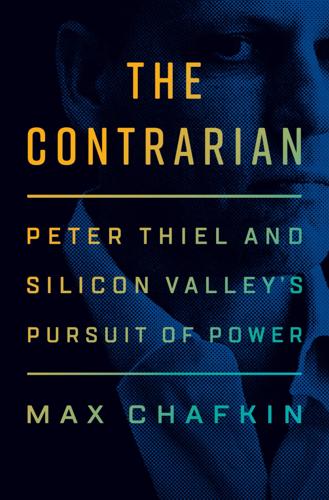
The Contrarian: Peter Thiel and Silicon Valley's Pursuit of Power
by
Max Chafkin
Published 14 Sep 2021
In “PC to Employment” he’d complained that only one in four Stanford alumni were millionaires, a class he praised—in the great tradition of Stanford conservatism going back to David Starr Jordan and Herbert Hoover—as morally superior to the liberal hordes. “These are the people who pay for the bulk of this country’s government transfer programs, and who have helped endow universities like our own,” he wrote. Greed wasn’t exactly good, as Michael Douglas’s Gordon Gekko had boasted in Wall Street, Thiel said, but it was “preferable to envy,” the prevailing sentiment of the liberals he knew. It was greed, rather than envy, he said, that had allowed the United States to defeat the USSR in the Cold War. “Like the Soviet Union, PC will eventually self-destruct,” he predicted.
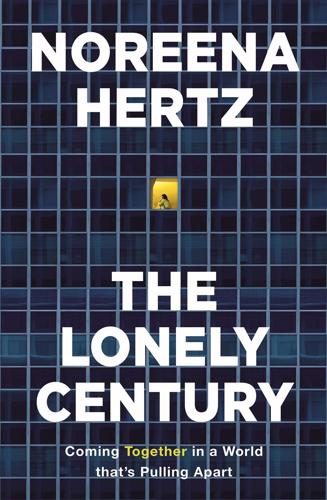
The Lonely Century: How Isolation Imperils Our Future
by
Noreena Hertz
Published 13 May 2020
For it fundamentally changed how we saw each other and the obligations to each other that we felt, with its valorising of qualities such as hyper-competitiveness and the pursuit of self-interest, regardless of the wider consequences. It is not that humans are essentially selfish – research in evolutionary biology makes clear that we are not.52 But with politicians actively championing a self-seeking, dog-eat-dog mindset, and ‘greed is good’ (the maxim Gordon Gekko famously uttered in the 1987 movie Wall Street) serving as neoliberalism’s bumper sticker, qualities such as solidarity, kindness and caring for each other were not only undervalued, but deemed irrelevant human traits. Under neoliberalism we were reduced to homo economicus, rational humans consumed only by our own self-interest.
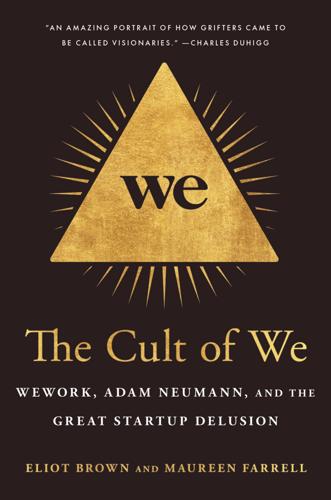
The Cult of We: WeWork, Adam Neumann, and the Great Startup Delusion
by
Eliot Brown
and
Maureen Farrell
Published 19 Jul 2021
It signed a large lease for more than 120,000 square feet at 222 Broadway, where its own offices would sit alongside space rented by members. The boxy lower Manhattan building was where Oliver Stone’s film Wall Street—the 1980s critique of corporate avarice—was filmed. (Neumann’s office was down the hall from where Gordon Gekko proclaimed that “greed is good.”) Growing bigger meant the company was burning through the Benchmark cash. Neumann had left the task of additional fund-raising until perilously late in the process. By this time, WeWork had one or two months of cash—at most—left in its accounts. Fund-raising is always a high-wire act for money-losing startups, and Neumann was habitually late to lots of things, so this wasn’t terribly out of character.
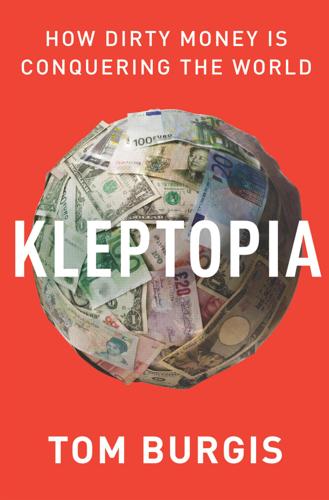
Kleptopia: How Dirty Money Is Conquering the World
by
Tom Burgis
Published 7 Sep 2020
Felix himself was not short of material from which to compose the autobiography he would place before the judge. After public school in Brooklyn he had put himself through college at Pace University on Manhattan, studying accounting. A few blocks south of the campus lay Wall Street. This was the 1980s, the Wall Street of Gordon Gekko. Greed was good. Felix qualified as a broker and was soon making money at Bear Stearns, then at Lehman Brothers. He was still only twenty-five when, one night in 1991, as men of Wall Street do, he went out to a bar in Midtown – El Rio Grande – and drank too much. A fellow drinker got into an argument with Felix about a woman.
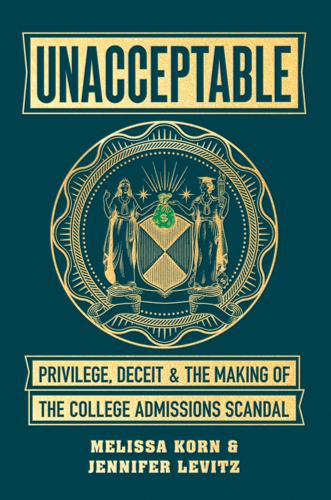
Unacceptable: Privilege, Deceit & the Making of the College Admissions Scandal
by
Melissa Korn
and
Jennifer Levitz
Published 20 Jul 2020
* * * • • • LATE MORNING JUNE 15, Singer took a call from a potential client, a bigwig from New York. A third person on the call—the guy who connected Singer and the prospect—primed the pump a bit, introducing Singer as “the Godfather” as he patched them all together. Singer’s opening line fell flat. “Is this Gordon Gekko of Wall Street?” “No,” came the reply. “It’s Gordon Caplan, how are you?” Caplan wasn’t in a joking mood. He apologized to Singer for being so direct, but he wanted to talk about college and his daughter, a ranked tennis player who wanted to keep up the sport in college, maybe even at a Division I program.
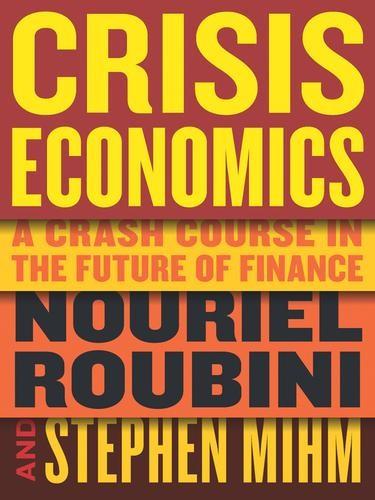
Crisis Economics: A Crash Course in the Future of Finance
by
Nouriel Roubini
and
Stephen Mihm
Published 10 May 2010
While the recent crisis shared much in common with past crises, many of its causes were unique, or at the very least, they played a bigger role in the twenty-first-century global financial system than they did in the past. Take the most obvious, tired explanation of the crisis: greed. When the financial levees first broke, countless commentators claimed that Wall Street’s unbridled lust for money had wrecked the financial system. That implausibly assumed that the financiers of 2007 were greedier than the Gordon Gekkos of a generation ago. In fact, what made a difference was not the magnitude of greed but new structures of incentives and compensation that channeled greed in new and dangerous directions. Over the previous two decades, bankers and traders had increasingly been rewarded with bonuses tied to short-term profits, giving them an incentive to take excessive risks, leverage up their investments, and bet the entire bank on astonishingly reckless investment strategies.
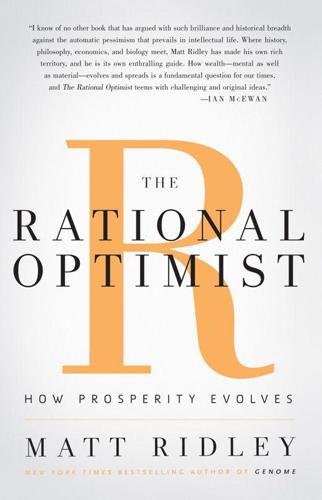
The Rational Optimist: How Prosperity Evolves
by
Matt Ridley
Published 17 May 2010
Mercantilism said that exports made you rich and imports made you poor, a fallacy mocked by Adam Smith when he pointed out that Britain selling durable hardware to France in exchange for perishable wine was a missed opportunity to achieve the ‘incredible aug mentation of the pots and pans of the country’. Marxism said that capitalists got rich because workers got poor, another fallacy. In the film Wall Street, the fictional Gordon Gekko not only says that greed is good; he also adds that it’s a zero-sum game where somebody wins and somebody loses. He is not necessarily wrong about some speculative markets in capital and in assets, but he is about markets in goods and services. The notion of synergy, of both sides benefiting, just does not seem to come naturally to people.
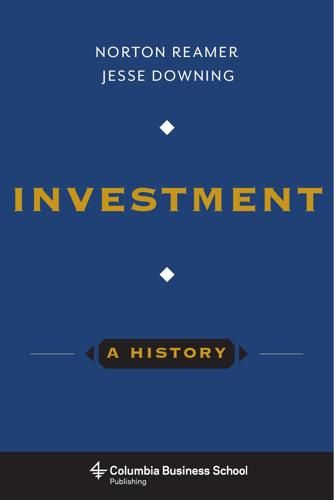
Investment: A History
by
Norton Reamer
and
Jesse Downing
Published 19 Feb 2016
This chapter concludes by exploring cases of insider information, where individuals quietly attempt to exploit knowledge of corporate events, earnings, mergers and acquisition activity, or other material and nonpublic knowledge to get ahead. Ivan Boesky We begin with Ivan Boesky, the man whose likeness was caricatured as Gordon Gekko in the acclaimed film Wall Street.126 He was the man who famously proclaimed, “Greed is all right, by the way. I want you to know that. I think greed is healthy. You can be greedy and still feel good about yourself.” The comment was met with some chuckling and an ovation when Boesky made it at the University of California, Berkeley, School of Business Administration in 1986.127 Looking back, however, it is difficult to see precisely what “good” Ivan Boesky’s greed has done society.
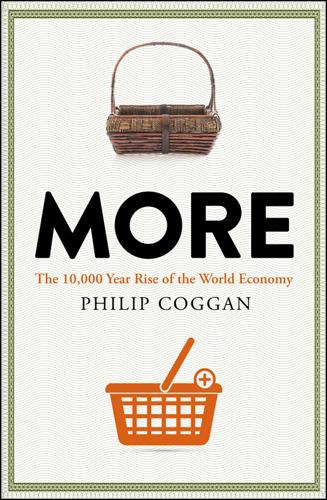
More: The 10,000-Year Rise of the World Economy
by
Philip Coggan
Published 6 Feb 2020
Boone Pickens, Carl Icahn and Ivan Boesky, made headlines by taking significant stakes in businesses in a practice known as “greenmail”; either the existing management would buy them out at a profit, or another predator would use their stake as the basis of a deal. The process was dramatised in the film Wall Street, in which Michael Douglas’s character, Gordon Gekko, proclaims that “Greed is good.” The main function of the takeover wave was to break up conglomerates and force companies to focus on a single industry. (The argument was that conglomerates were inefficient; shareholders could get the benefits of diversification by investing in a wide range of companies.)30 The value of takeover deals in the US in the 1980s was $1.3trn and 28% of the country’s largest 500 companies in 1980 had been bought by the end of the decade.
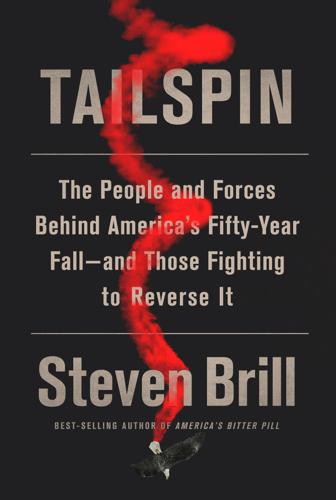
Tailspin: The People and Forces Behind America's Fifty-Year Fall--And Those Fighting to Reverse It
by
Steven Brill
Published 28 May 2018
In April 2017, the conservative National Review—reacting to Polman’s rejection of the Kraft-Heinz takeover, which had caused Unilever stock to fall back after the announcement of the bid had seen it jump 14 percent—channeled Milton Friedman in an article titled “Multinational Boss Fashions Himself King of the World.” “CEOs need not aspire to be Gordon Gekko,” wrote Deroy Murdock. “But they need not strive to be Mahatma Gandhi, either. Polman fancies himself as the latter.” The magazine quoted a shareholder as saying, “I would prefer if Mr. Polman furthered his societal ambitions using his own rather than his shareholders’ money,” adding, “Paul Polman could satisfy many people, not least himself, by standing down as Unilever CEO and announcing his candidacy for secretary general of the United Nations.”
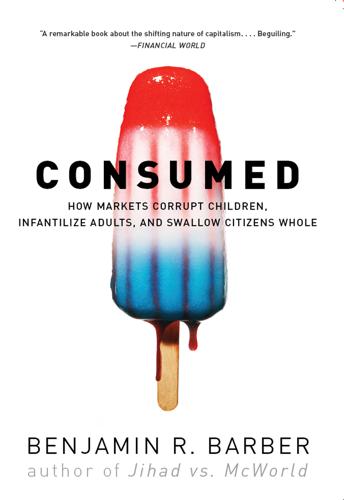
Consumed: How Markets Corrupt Children, Infantilize Adults, and Swallow Citizens Whole
by
Benjamin R. Barber
Published 1 Jan 2007
Ayn Rand’s great libertarian egoist Howard Roark, who in The Fountainhead famously declared “I came here today to say that I do not recognize anyone’s right to one minute of my life…that I am a man who does not exist for others,”24 is a rather mild solipsist compared with the moralizing egotists of the new capitalism. A towering example is Oliver Stone’s character Gordon Gekko (played by Michael Douglas in Stone’s 1987 film Wall Street) preaching lustily to a choir of stockholders: “The point, ladies and gentlemen, is that greed, for lack of a better word, is good. Greed is right. Greed works. Greed clarifies, cuts through, and captures the essence of the evolutionary spirit.”
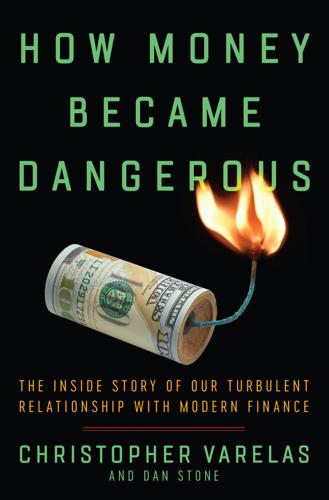
How Money Became Dangerous
by
Christopher Varelas
Published 15 Oct 2019
* * * Managing and refining one’s personal image was another way this desire to control information and perception was manifested. Through the 1980s and into the ’90s, the persona of the “investment banker” became firmly rooted in the public consciousness—spurred on by men real and imagined, like David Wittig and Gordon Gekko; bolstered by books like The Bonfire of the Vanities and Barbarians at the Gate; lionized in the public imagination by their portrayal in films, such as the iconic scene from American Psycho where a bunch of Wall Streeters are sitting around in a conference room trying to one-up one another with the design and quality of their business cards, and the stakes seem murderously high.
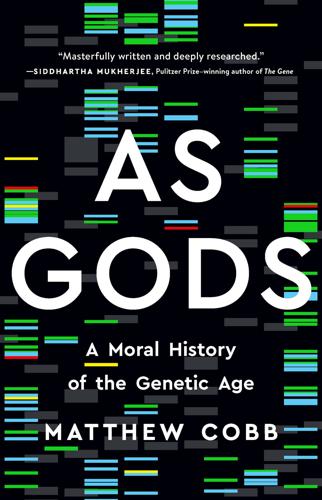
As Gods: A Moral History of the Genetic Age
by
Matthew Cobb
Published 15 Nov 2022
Not too many companies around. Everybody and his brother starts jumping into the pool with ‘me-too’ companies. Competition becomes intense. Company evaluations either decline or level off. The money gusher begins to dry up.36 The business atmosphere of the 1980s could be summed up by the misquoted words of trader Gordon Gekko in the 1987 film Wall Street: ‘Greed is good.’37 But by the end of the decade that attitude was beginning to rankle in certain quarters and even The Economist was bewailing ‘the money-guzzling genius of biotechnology’. By that point, $10 billion had been invested in the field and 150 companies had gone public, but although they raised an additional $4 billion, only Genentech was making a sustained profit and that was ‘disappointingly small’, sniffled the bosses’ magazine.38 The financial excitement in the United States was above all a function of the uniquely American layer of venture capital speculators that appeared after the Second World War and had no true equivalent in other countries.
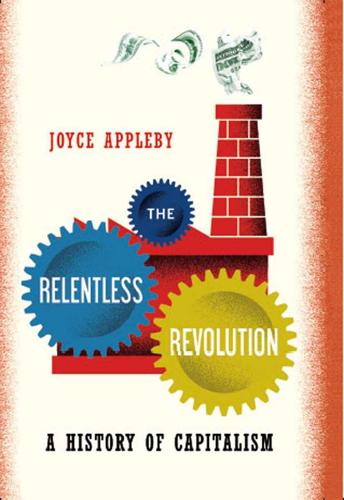
The Relentless Revolution: A History of Capitalism
by
Joyce Appleby
Published 22 Dec 2009
Schumpeter’s “perennial gale creative destruction” blew in with a new generation of ingenious devices. Every economic downturn gives critics a chance to draft obituaries for capitalism, but they underestimate the fecundity of capitalism in promoting ingenuity and turning novel prototypes into great cash cows. Contemporary Capitalism and Its Critics Gordon Gekko, the business antihero in the movie Wall Street, said that “greed, for lack of a better word, is good,” but few agree. Alan Greenspan, for one, pointed to the dangers of an “infectious greed” while speaking to Congress in 1997 as chairman of the Federal Reserve Board. Nor is greed the only thing that people hold against capitalism.
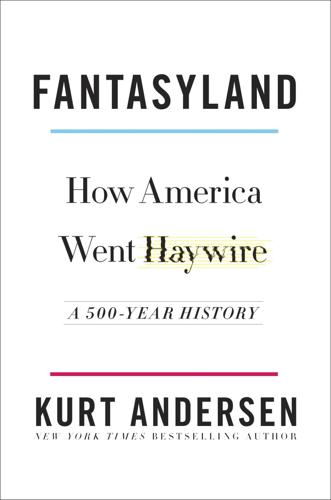
Fantasyland: How America Went Haywire: A 500-Year History
by
Kurt Andersen
Published 4 Sep 2017
For them, the ultraindividualist liberation of the 1960s and ’70s had generated a kind of fundamentalist religious faith in markets, and thus an absolute knee-jerk opposition to any attempts by government to make markets work better or more fairly, and to taxes in general. If the new hypercapitalism was working well for you, even if you had no fervent ideological faith in markets, what had previously come across as simple selfishness could now be cloaked in righteousness. “Greed is good,” the fictional Gordon Gekko declared in 1987, but now real people insisted that their moneymaking lust and skill were not merely useful in the aggregate but made them virtuous individually. The year after Wall Street came out, Reagan was reelected in one of the biggest landslides in history. Oh, Ronald Reagan, lovable, shrewd, twinkly, out-of-it, blithe, brilliant Ronald Reagan.

WTF?: What's the Future and Why It's Up to Us
by
Tim O'Reilly
Published 9 Oct 2017
Yes, the market is increasingly made of complex financial derivatives that no human can truly understand. But the key lesson is one we have seen again and again. The design of a system determines its outcomes. The robots did not force a human-hostile future upon us; we chose it ourselves. The 1980s were the years of “corporate raiders” celebrated by Michael Douglas’s character, Gordon Gekko, in the 1987 movie Wall Street, who so memorably said, “Greed is good.” The theory was that by discovering and rooting out bad managers and finding efficiencies in underperforming businesses, these raiders were actually improving the operation of the capitalist system. It is certainly true that in some cases they played that role.
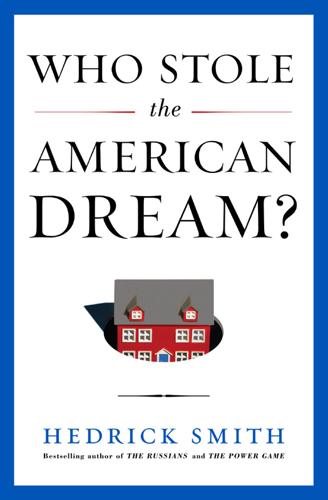
Who Stole the American Dream?
by
Hedrick Smith
Published 10 Sep 2012
“Were everyone to seek to do so …,” Galbraith wrote, “the corporation would be a chaos of competitive avarice.” By the 1980s, competitive avarice was in. Tom Wolfe captured the winner-take-all creed in his book Bonfire of the Vanities, and so did Oliver Stone’s 1987 movie, Wall Street. “Greed, for lack of a better word, is good,” preached Gordon Gekko, the movie’s mogul investor. “Greed is right, greed works…. Greed, in all of its forms … has marked the upward surge of mankind.” It certainly marked the upward surge in CEO pay, which rocketed from forty times the pay of an average company worker in 1980 to nearly four hundred times by 2000. Stakeholder Capitalism Certainly in the 1980s and ’90s, there were CEOs like David Packard of Hewlett-Packard, who practiced stakeholder capitalism, balancing the needs of various corporate stakeholders—employees, customers, and suppliers as well as shareholders and management.
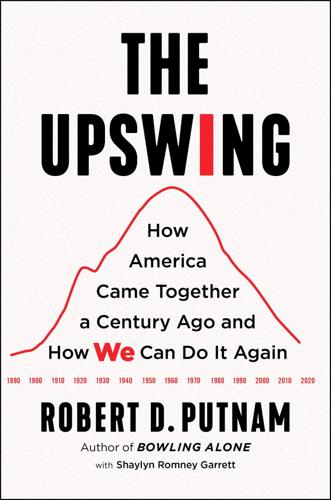
The Upswing: How America Came Together a Century Ago and How We Can Do It Again
by
Robert D. Putnam
Published 12 Oct 2020
Atlas Shrugged is sometimes said to be the most widely read book of the twentieth century, trailing only the Bible.54 Rand had a genius for quotable, controversial aphorisms: “Nobody has ever given a reason why man should be his brother’s keeper” and “Altruism is incompatible with freedom, with capitalism and with individual rights.”55 Gordon Gekko’s “Greed is good” from the 1987 film Wall Street simply echoed Rand. Rand’s libertarianism was so accessible that it became virtually biblical to successive generations of conservative political leaders—from Margaret Thatcher and Ronald Reagan to Alan Greenspan and former speaker of the House of Representatives Paul Ryan.
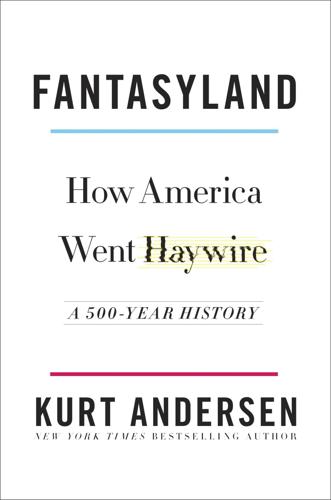
Fantasyland
by
Kurt Andersen
Published 5 Sep 2017
For them, the ultraindividualist liberation of the 1960s and ’70s had generated a kind of fundamentalist religious faith in markets, and thus an absolute knee-jerk opposition to any attempts by government to make markets work better or more fairly, and to taxes in general. If the new hypercapitalism was working well for you, even if you had no fervent ideological faith in markets, what had previously come across as simple selfishness could now be cloaked in righteousness. “Greed is good,” the fictional Gordon Gekko declared in 1987, but now real people insisted that their moneymaking lust and skill were not merely useful in the aggregate but made them virtuous individually. The year after Wall Street came out, Reagan was reelected in one of the biggest landslides in history. Oh, Ronald Reagan, lovable, shrewd, twinkly, out-of-it, blithe, brilliant Ronald Reagan.
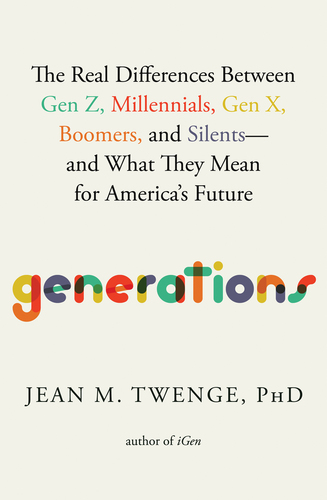
Generations: The Real Differences Between Gen Z, Millennials, Gen X, Boomers, and Silents—and What They Mean for America's Future
by
Jean M. Twenge
Published 25 Apr 2023
A similar though not quite as dramatic shift appears among high school seniors: Fewer Gen X’ers than Boomers valued “finding purpose and meaning in my life,” and more valued “having lots of money,” especially in the late 1980s and early 1990s (see Figure 4.12). Meaning was still important in the 1980s, but the importance of money was surging as income inequality (the gap between the rich and poor) grew during the decade. As Gordon Gekko opined in the 1987 movie Wall Street, “Greed, for lack of a better word, is good.” Gecko’s soliloquy was based on a real-life commencement address given by stock trader Ivan Boesky (b. 1937) at the UC Berkeley School of Business Administration in 1986. That a version of these words was first spoken at Berkeley was perhaps the surest sign that the idealistic ’60s were dead and the materialistic ’80s had arrived.
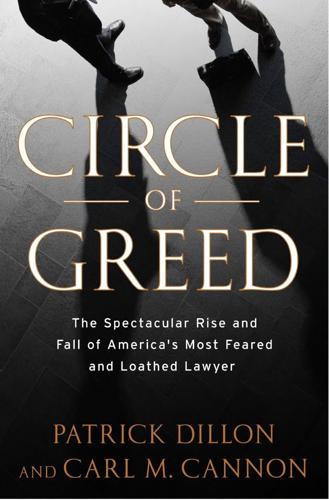
Circle of Greed: The Spectacular Rise and Fall of the Lawyer Who Brought Corporate America to Its Knees
by
Patrick Dillon
and
Carl M. Cannon
Published 2 Mar 2010
Lerach took particular pleasure in Obama’s victory over the Clintons, whom he’d helped financially and who’d turned on him, and then over John McCain, the candidate Lerach had once brought to his knees. On a personal note, Lerach managed to lose twenty pounds and, due to a lack of a barber, began slicking back his always unruly mop of hair, transforming him into what one of his visitors described as “the second coming of Gordon Gekko,” the character based on Ivan Boesky played by Michael Douglas in the movie Wall Street. DEBRA W. YANG RESIGNED as U.S. attorney for the Central District of California on November 11, 2006, lured to Gibson, Dunn & Crutcher by a hefty salary and a $1.5 million signing bonus. Yang’s move came less than one month before seven other U.S. attorneys were dismissed—and in the wake of White House counsel Harriet Miers raising the possibility to one pliant Justice Department political appointee of replacing Yang.
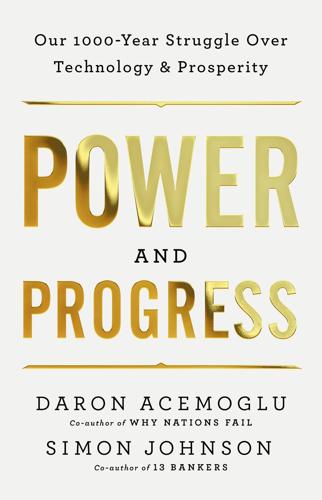
Power and Progress: Our Thousand-Year Struggle Over Technology and Prosperity
by
Daron Acemoglu
and
Simon Johnson
Published 15 May 2023
Keltner’s research suggests that the answer may be related to self-persuasion—about what is and is not acceptable and what is in the common good. The rich and the prominent convince themselves that they are simply taking their just deserts, or even that being greedy is not beyond the pale. As the unscrupulous investor Gordon Gekko in the 1987 movie Wall Street put it, “Greed is right, greed works.” Interestingly, Keltner and his collaborators also saw that other non-rich people can be nudged to behave more like the rich when they are given statements expressing positive attitudes toward greed. We argued above that in the modern world the power to persuade is the most important source of social power.
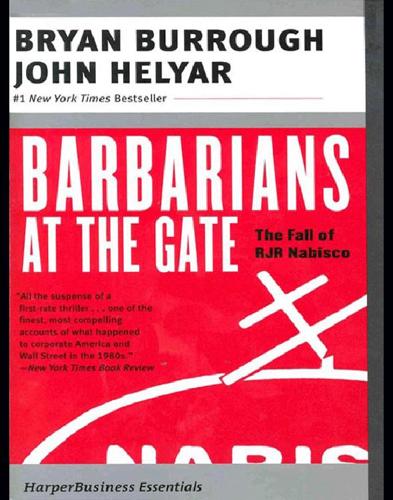
Barbarians at the Gate: The Fall of RJR Nabisco
by
Bryan Burrough
and
John Helyar
Published 1 Jan 1990
If he wasn’t the consummate takeover tactician, Waters’s easygoing manner, forthright attitude, and sincerity—a rarity among his ilk—made him a favorite of Johnson, whom he had known since Standard Brands. J. Tomilson Hill III, Harvard College, Harvard Business School, was the warrior of the pair, a zealot for the Wall Street trenches. To enemies—and he had a few—Tom Hill came across as an oiled-back Gordon Gekko haircut atop five feet, ten inches of icy Protestant reserve. Hill was well tailored and proud of it; “the best-dressed man on Wall Street” a competitor called him, and Hill wore his dark Paul Stuart suits like armor. His office was all cool modern art and Lucite-encased tombstones commemorating past victories.
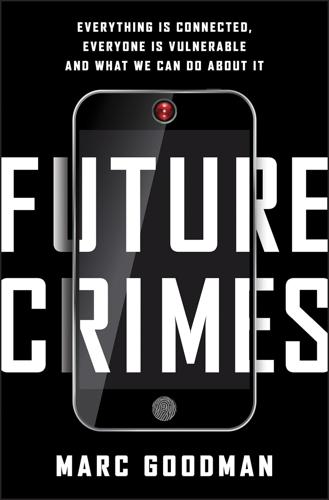
Future Crimes: Everything Is Connected, Everyone Is Vulnerable and What We Can Do About It
by
Marc Goodman
Published 24 Feb 2015
When the news of an explosion at 1600 Pennsylvania Avenue broke, the market suspected a probable terrorist attack and immediately foresaw the profound negative impact it would have; after all, 9/11 was estimated to have cost America $3.3 trillion in economic losses. Traders immediately began dumping their shares, and the exchanges went into free fall. But these traders weren’t the Gordon Gekko, masters-of-the-universe types with slicked-back hair and $10,000 suits of yesteryear. In fact, they weren’t even human. At hedge funds, investment banks, and pension funds across the tristate area and around the world, networks of supercomputers were doing the trading en masse, slaves to their algorithmic programming.
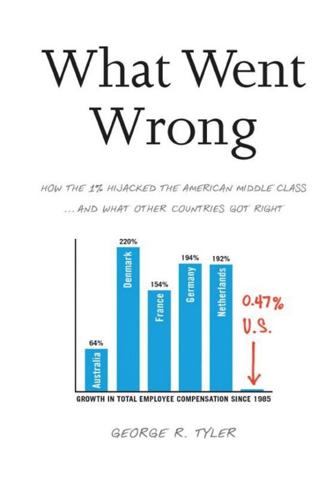
What Went Wrong: How the 1% Hijacked the American Middle Class . . . And What Other Countries Got Right
by
George R. Tyler
Published 15 Jul 2013
Phillips-Fein concludes: “Her work offers a way of making sense of a profoundly unequal society, of making it tolerable, even virtuous.” Ayn Rand’s philosophy spread throughout much of the financial and political elite in the Reagan era. Even many who never heard of Rand came to hear of and embrace her philosophy, as embodied by Gordon Gekko, a character in Oliver Stone’s 1987 film, Wall Street: “The point is, ladies and gentleman, that greed, for lack of a better word, is good. Greed is right, greed works. Greed clarifies, cuts through, and captures the essence of the evolutionary spirit. Greed, in all of its forms; greed for life, for money, for love, knowledge, has marked the upward surge of mankind.
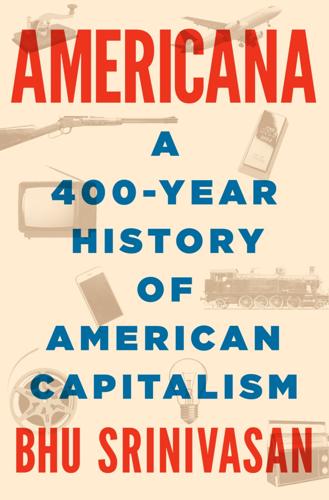
Americana: A 400-Year History of American Capitalism
by
Bhu Srinivasan
Published 25 Sep 2017
Tom Wolfe’s The Bonfire of the Vanities spent several weeks at number one on the New York Times best-seller list in 1988. Its main character was a top-producing bond trader, a “Master of the Universe” in Wolfe’s telling. Oliver Stone’s Wall Street gave American cinema one of its most memorable antiheroes in Gordon Gekko, played by Michael Douglas. The fall of Gekko starts with his attempt to take over an airline, a story line loosely based on Icahn’s efforts at TWA. Douglas would lament the fact that even decades later, men would approach him in restaurants to tell him how inspired they were by his role—to pursue a career on Wall Street.

Americana
by
Bhu Srinivasan
Tom Wolfe’s The Bonfire of the Vanities spent several weeks at number one on the New York Times best-seller list in 1988. Its main character was a top-producing bond trader, a “Master of the Universe” in Wolfe’s telling. Oliver Stone’s Wall Street gave American cinema one of its most memorable antiheroes in Gordon Gekko, played by Michael Douglas. The fall of Gekko starts with his attempt to take over an airline, a story line loosely based on Icahn’s efforts at TWA. Douglas would lament the fact that even decades later, men would approach him in restaurants to tell him how inspired they were by his role—to pursue a career on Wall Street.
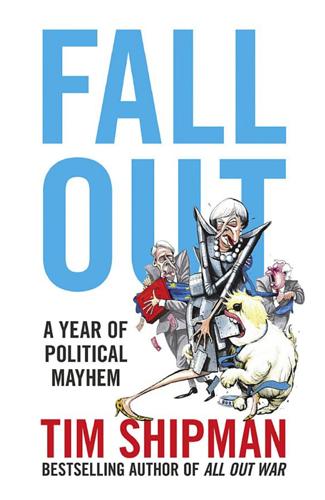
Fall Out: A Year of Political Mayhem
by
Tim Shipman
Published 30 Nov 2017
On a WhatsApp group shared by Eurosceptic MPs, Sir Gerald Howarth wrote with withering sarcasm, ‘A man of his immense ability can surely speak for Cheshire and London before lunch, advise BlackRock over lunch and tender his invaluable advice to the House after lunch before holding a dinner party for the bien pensant remainians of Notting Hill in the evening. Sorted.’ Iain Duncan Smith posted a picture of Michael Douglas’s character from the film Wall Street, the celluloid monument to eighties excess: ‘Hmmm … why do I keep thinking of Gordon Gekko … greed is good.’ Osborne’s reputation for ruthlessness was confirmed when it emerged that he had recommended the political journalist Matthew d’Ancona to Evgeny Lebedev, the owner of the Standard. D’Ancona was on the verge of getting the job when Osborne decided he fancied it himself.1 Seeing the benefit of having a big name in the post, Lebedev was ‘immediately sold on the idea’.
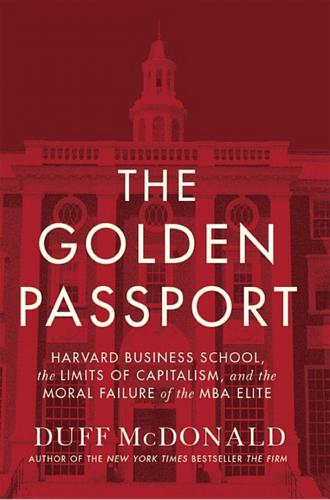
The Golden Passport: Harvard Business School, the Limits of Capitalism, and the Moral Failure of the MBA Elite
by
Duff McDonald
Published 24 Apr 2017
Wall Street was starting to embark on what would prove to be a twenty-year bull market, and the money-seeking missiles that are MBAs were showing their “leadership” in redirecting their job-seeking energies toward investment banking and trading before Michael Douglas had even graced the big screen as Gordon Gekko in 1987. Of the class of 1986, 29.4 percent took jobs on the Street, versus 17.5 percent who went into consulting. The HBS-McKinsey route has produced a number of standouts. A handful of the business world’s most prominent CEOs have made their way to the top right through it. At McKinsey itself, four managing directors have come that way: Marvin Bower, Ron Daniel, Al McDonald, and Rajat Gupta.
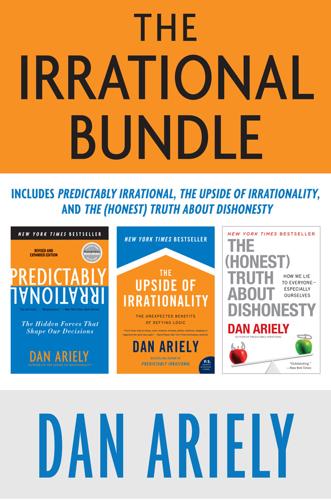
The Irrational Bundle
by
Dan Ariely
Published 3 Apr 2013
The scary thought is that if we did the experiments with nonmonetary currencies that were not as immediately convertible into money as tokens, or with individuals who cared less about their honesty, or with behavior that was not so publicly observable, we would most likely have found even higher levels of dishonesty. In other words, the level of deception we observed here is probably an underestimation of the level of deception we would find across a variety of circumstances and individuals. Now suppose that you have a company or a division of a company led by a Gordon Gekko character who declares that “greed is good.” And suppose he used nonmonetary means of encouraging dishonesty. Can you see how such a swashbuckler could change the mind-set of people who in principle want to be honest and want to see themselves as honest, but also want to hold on to their jobs and get ahead in the world?